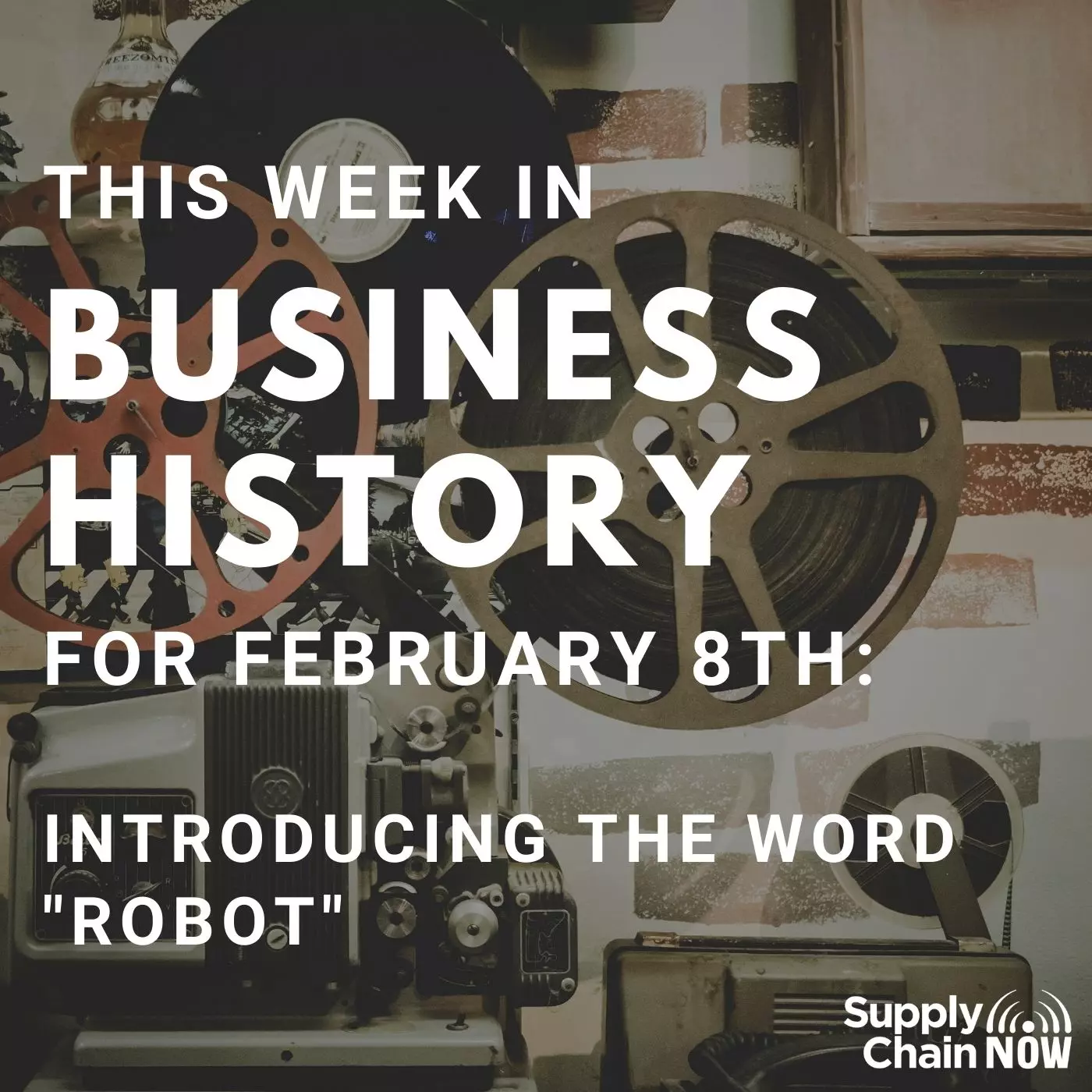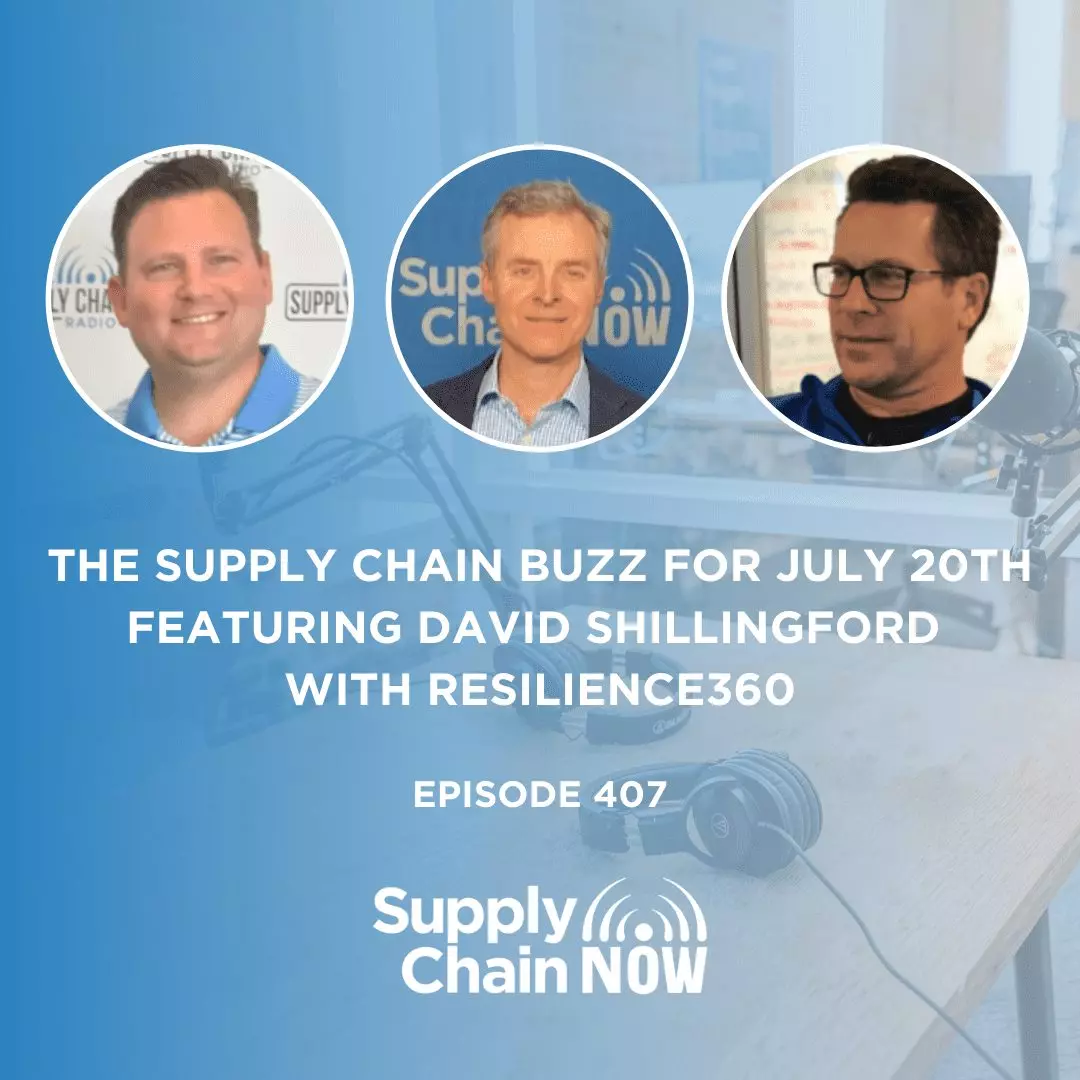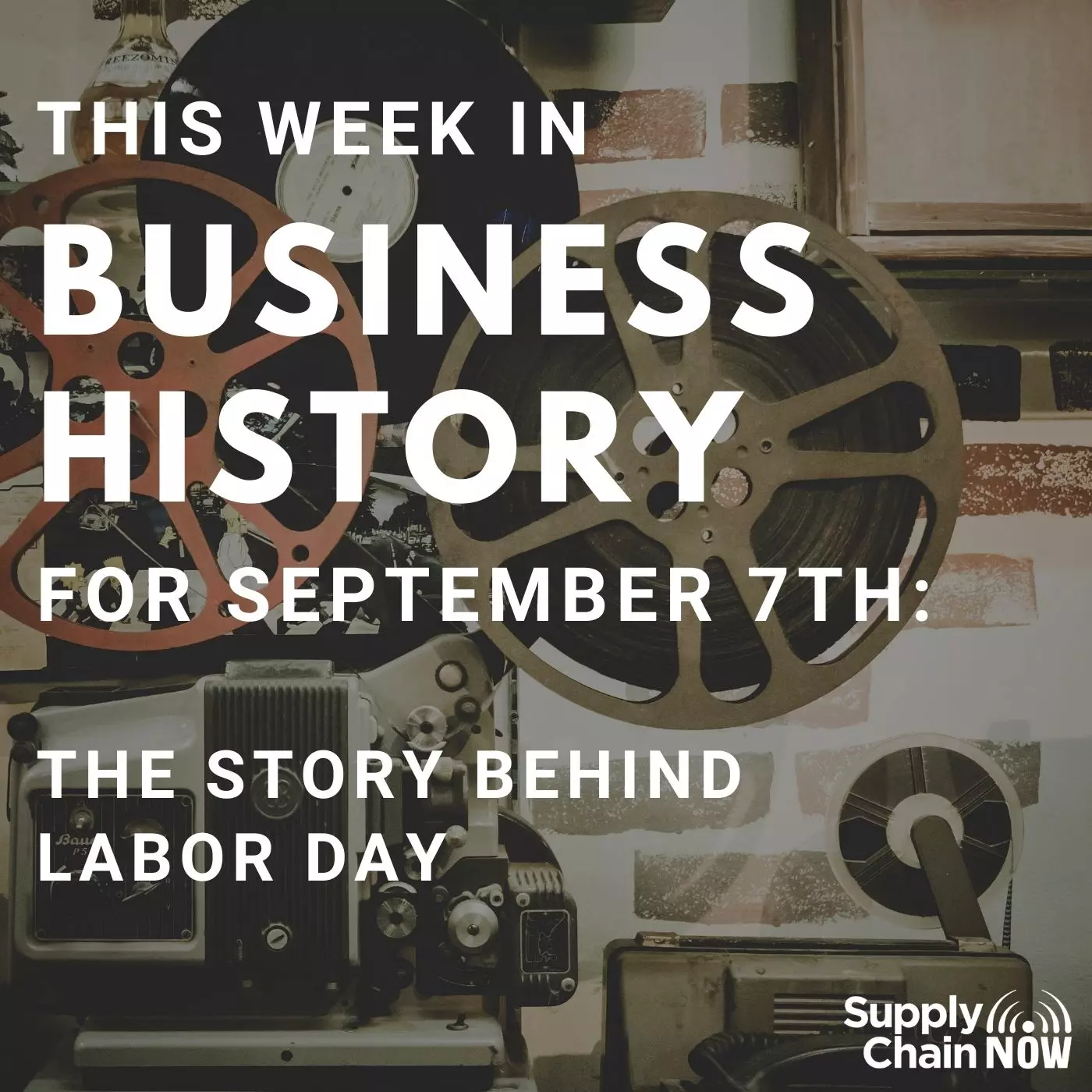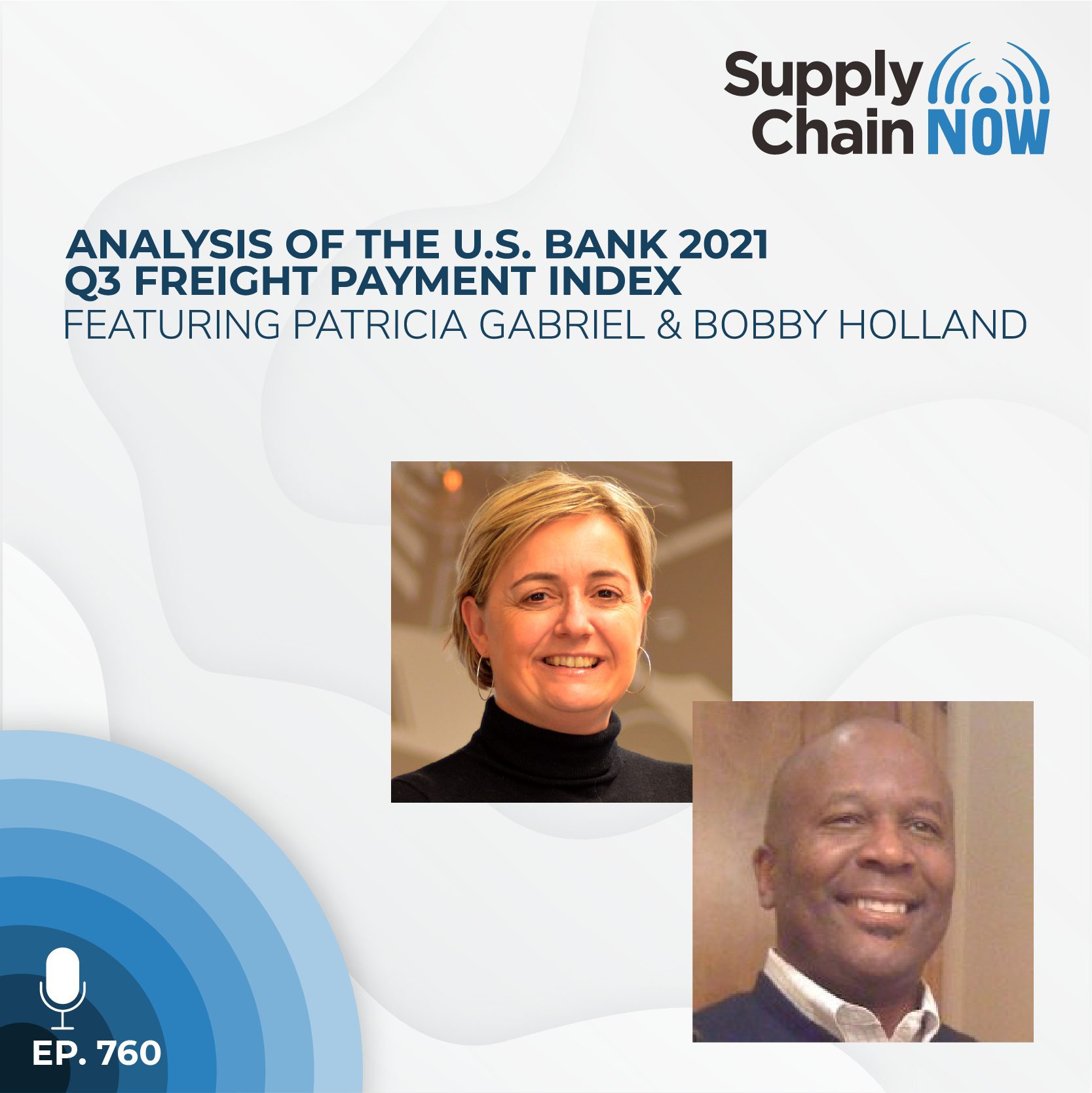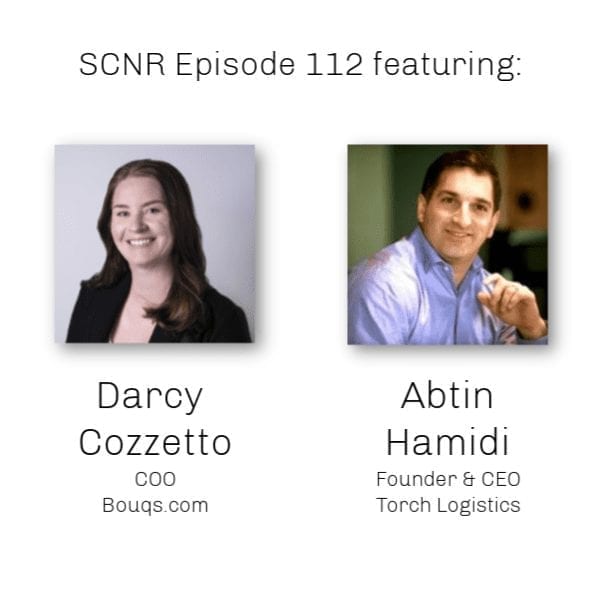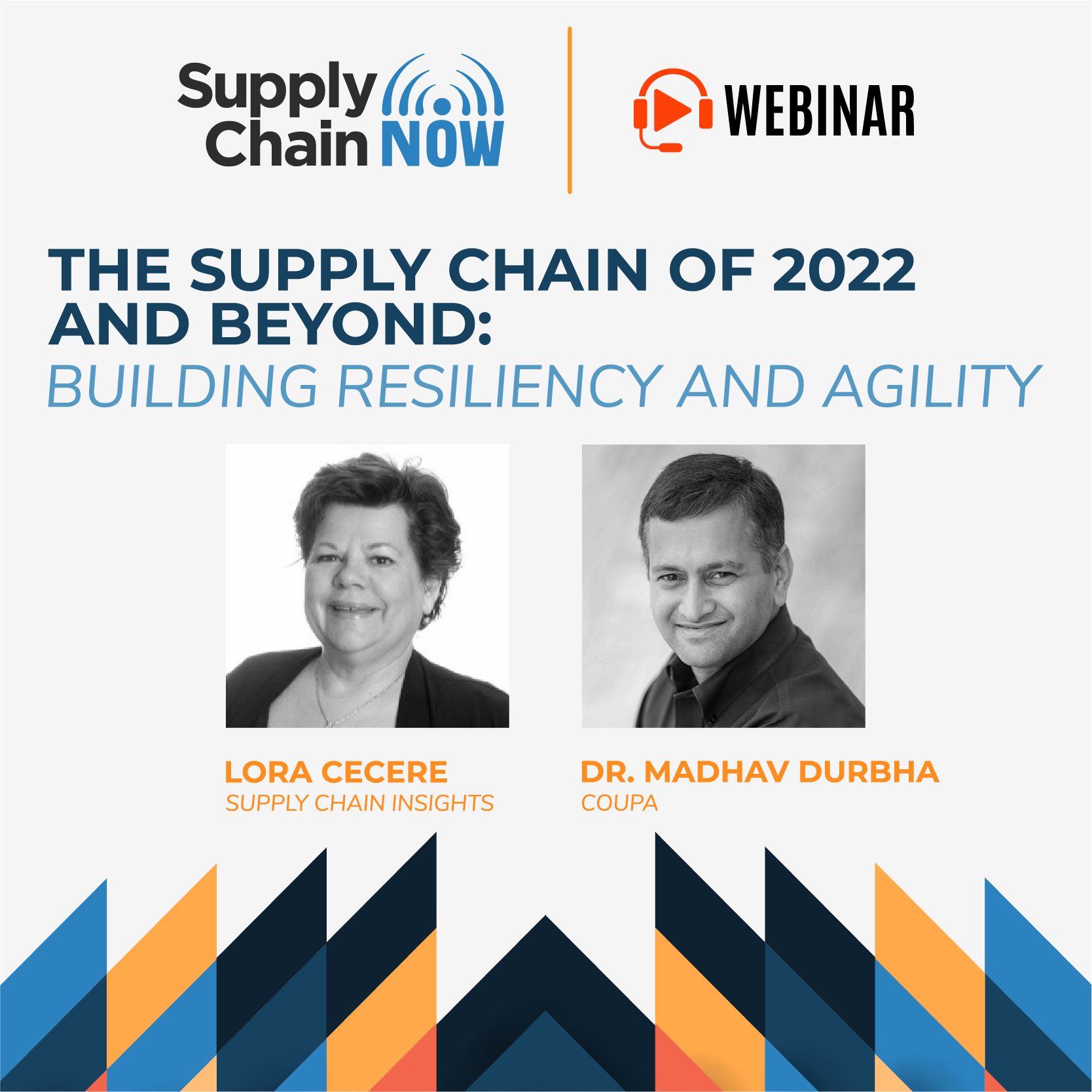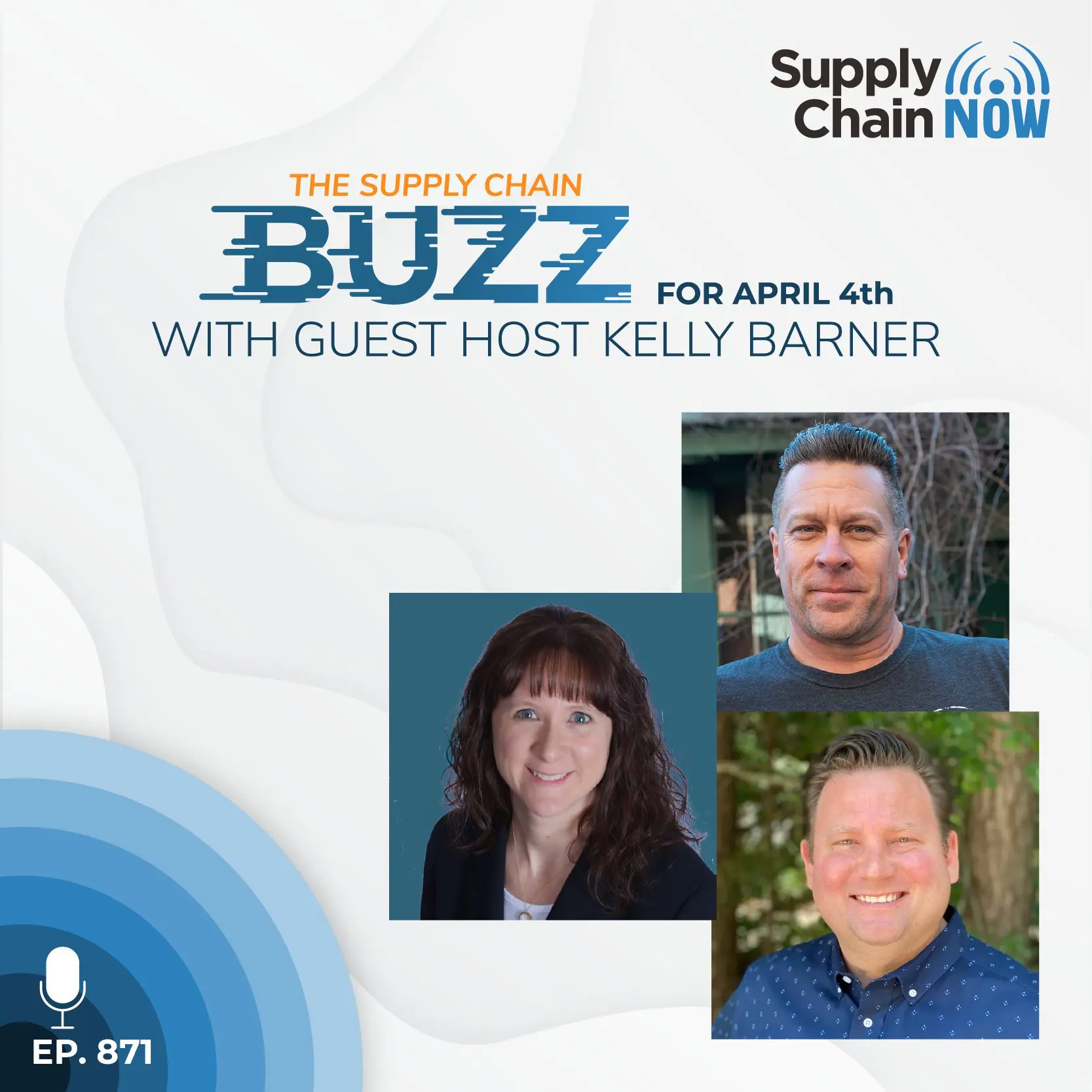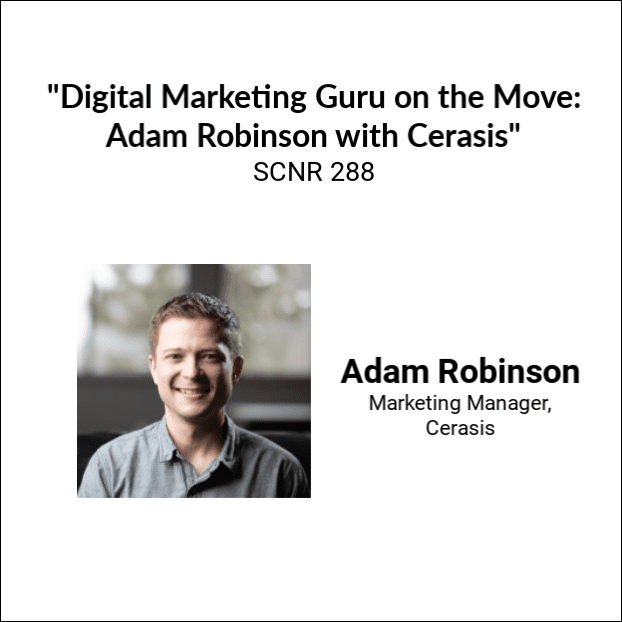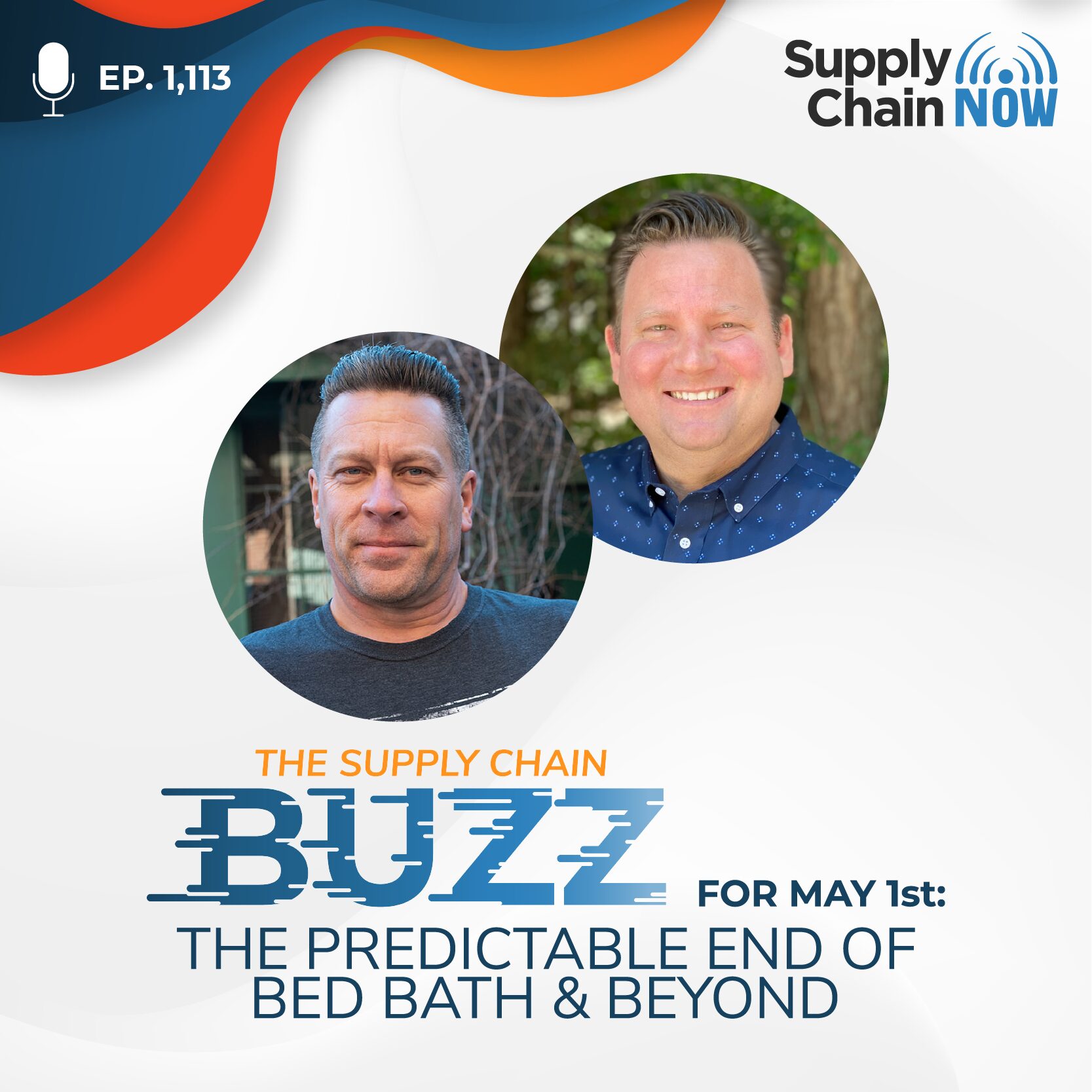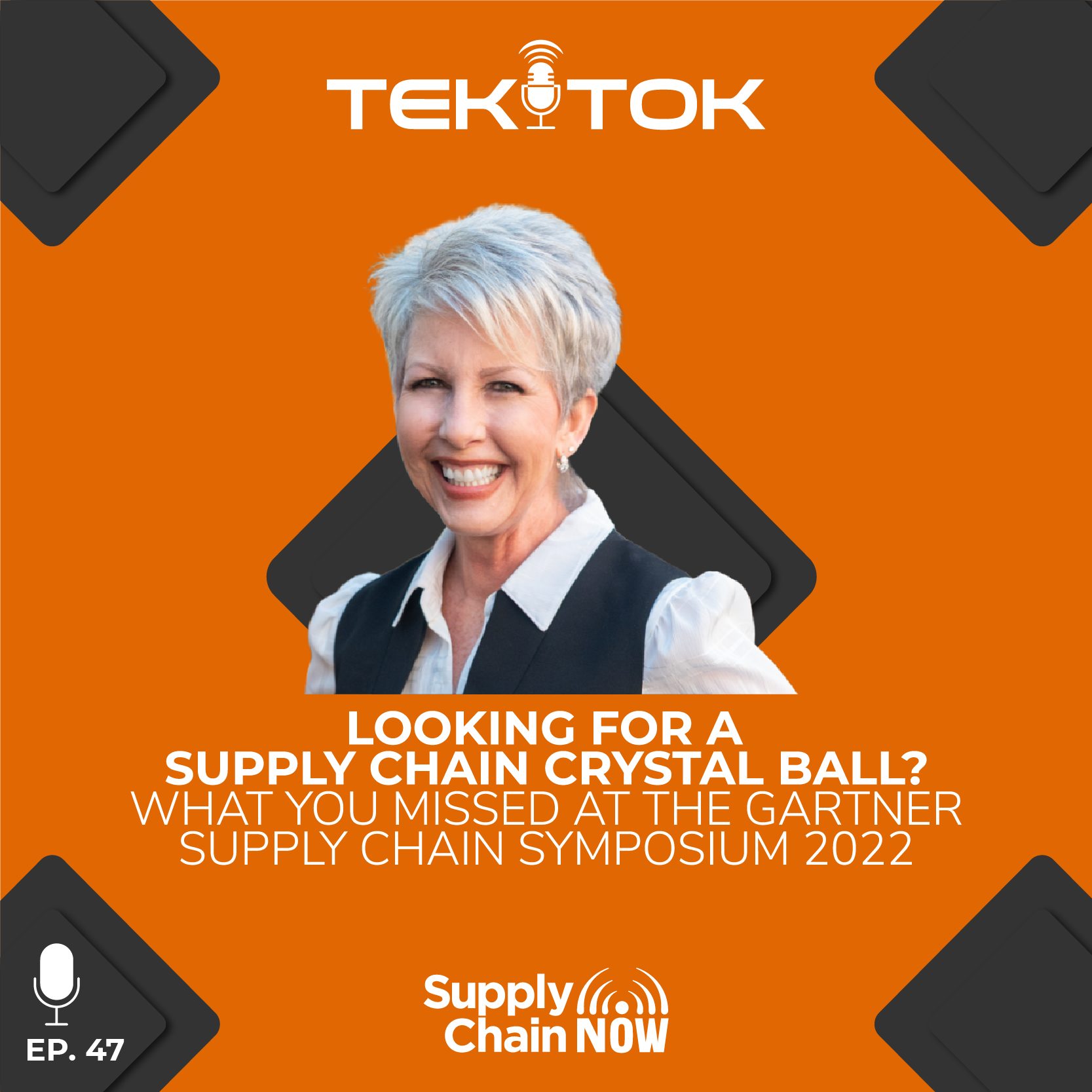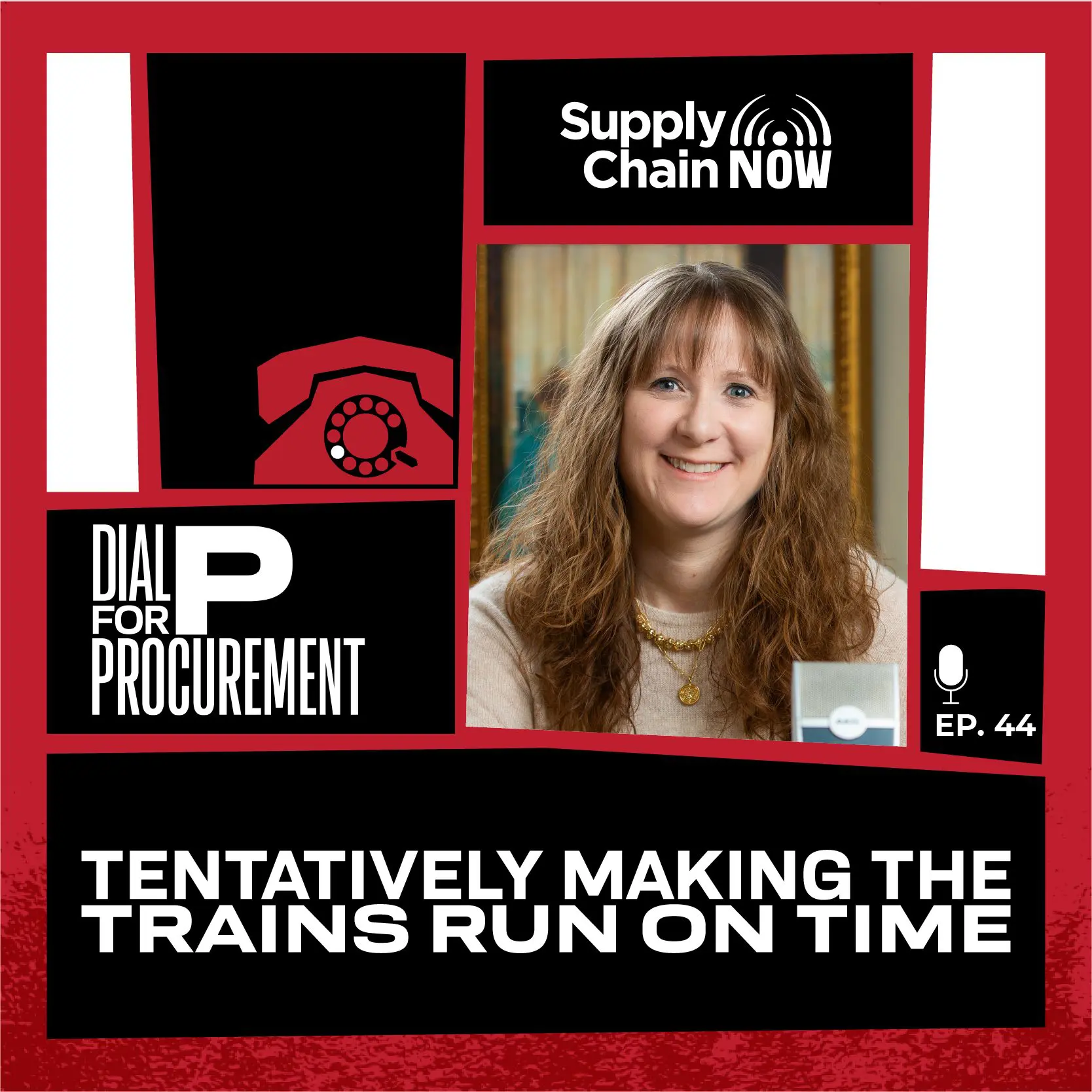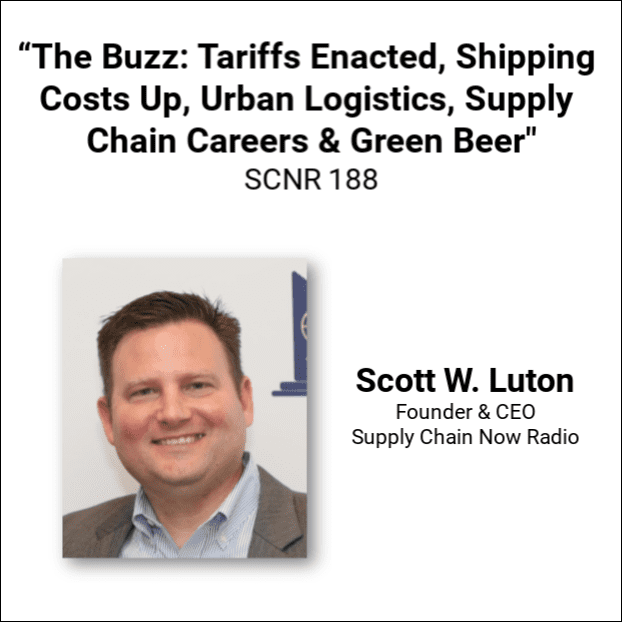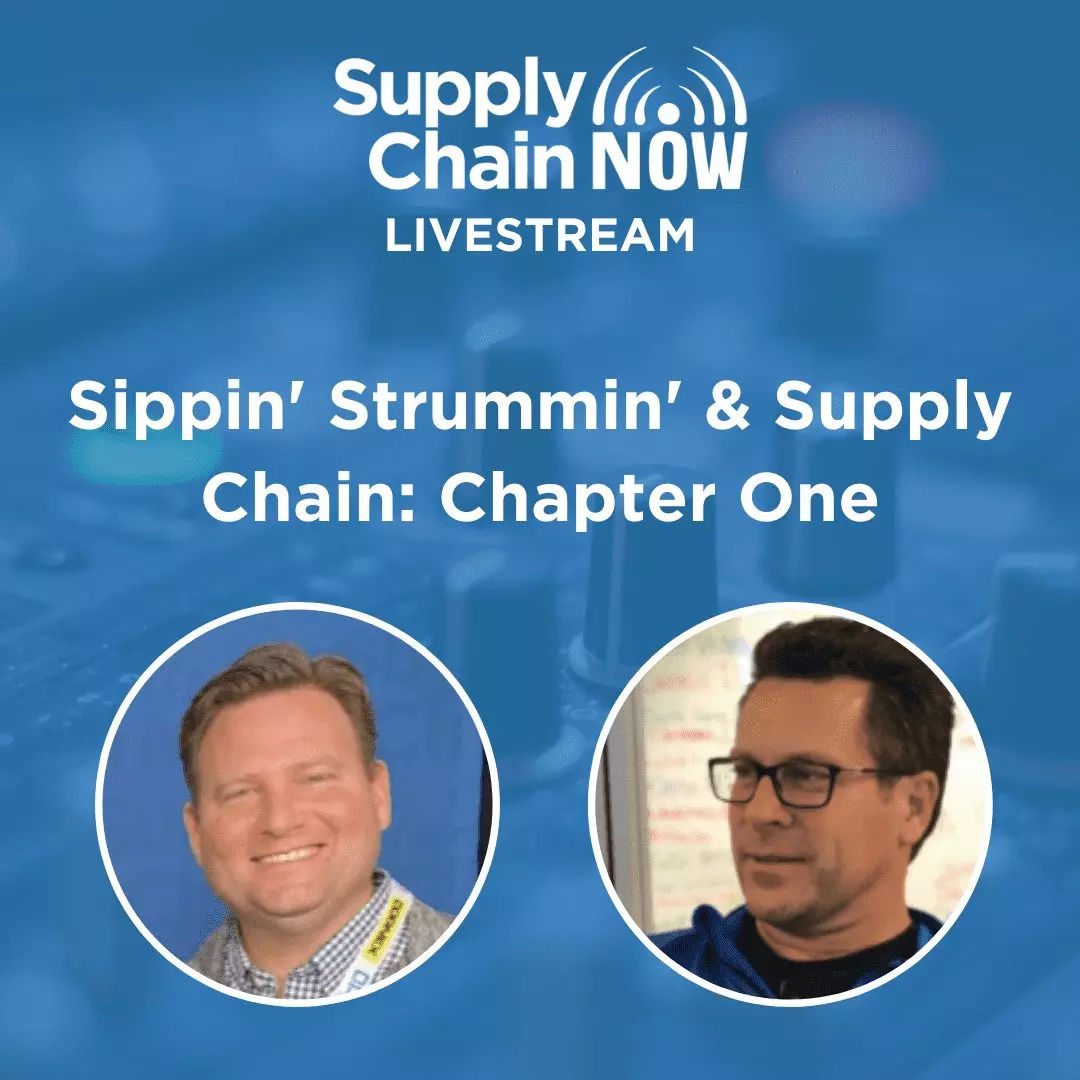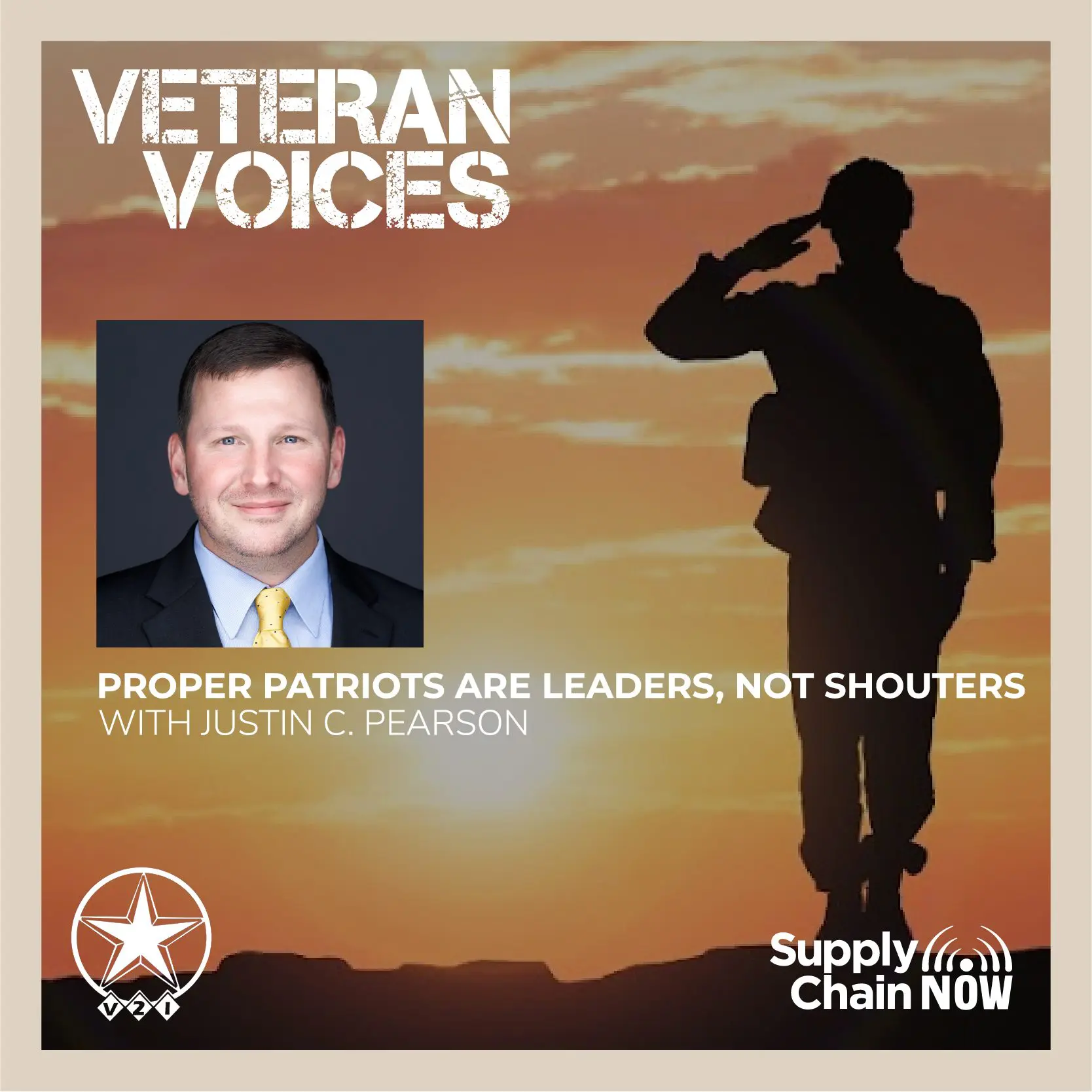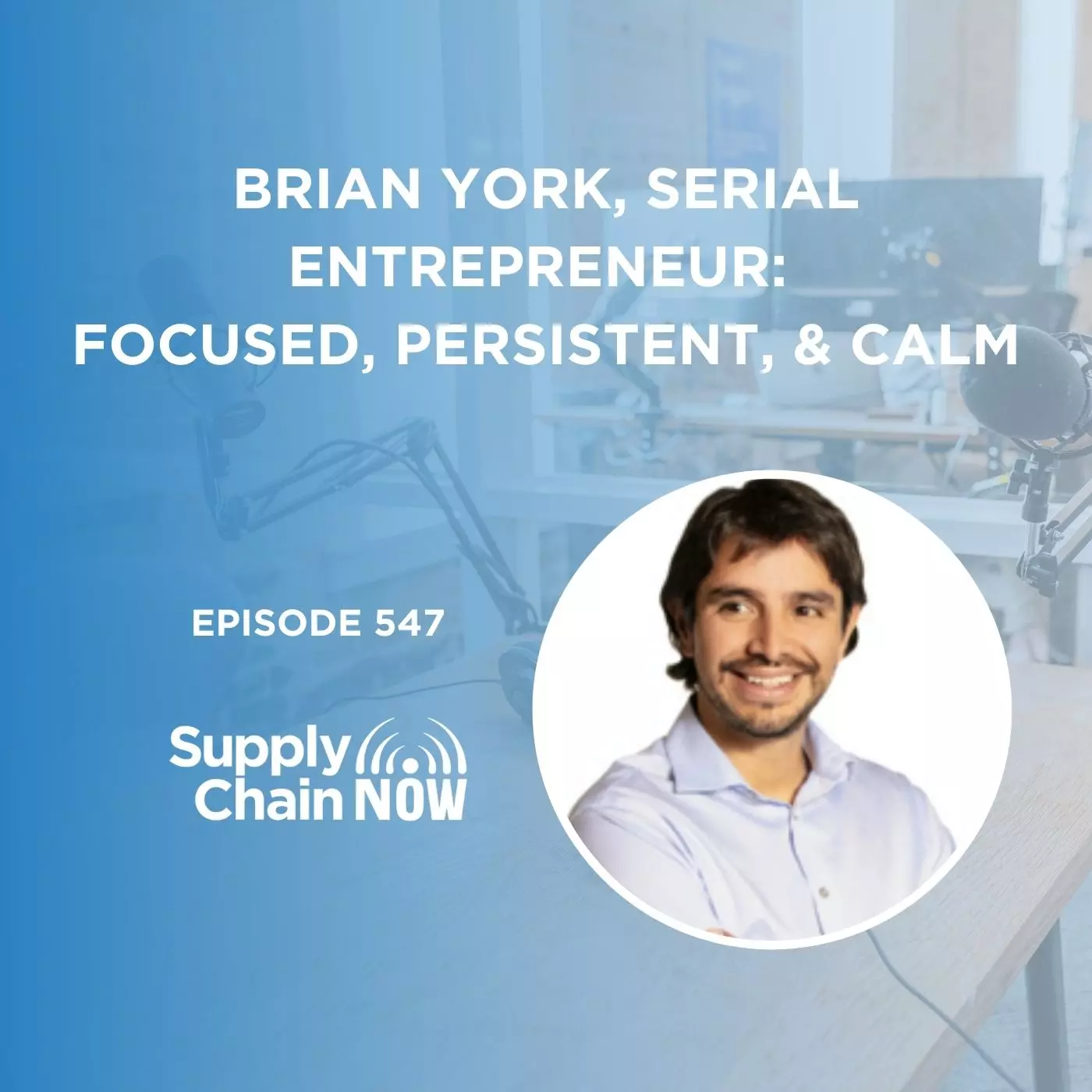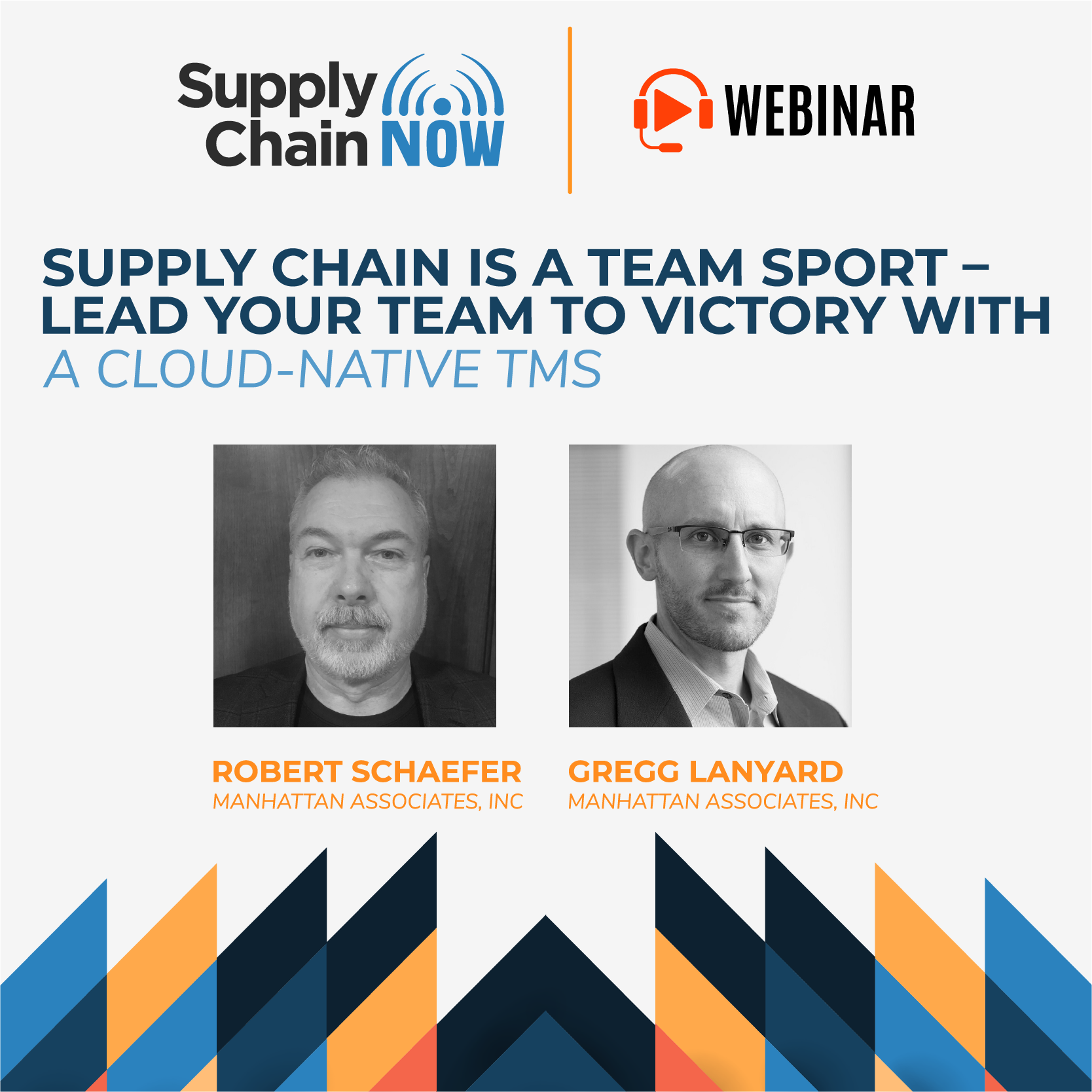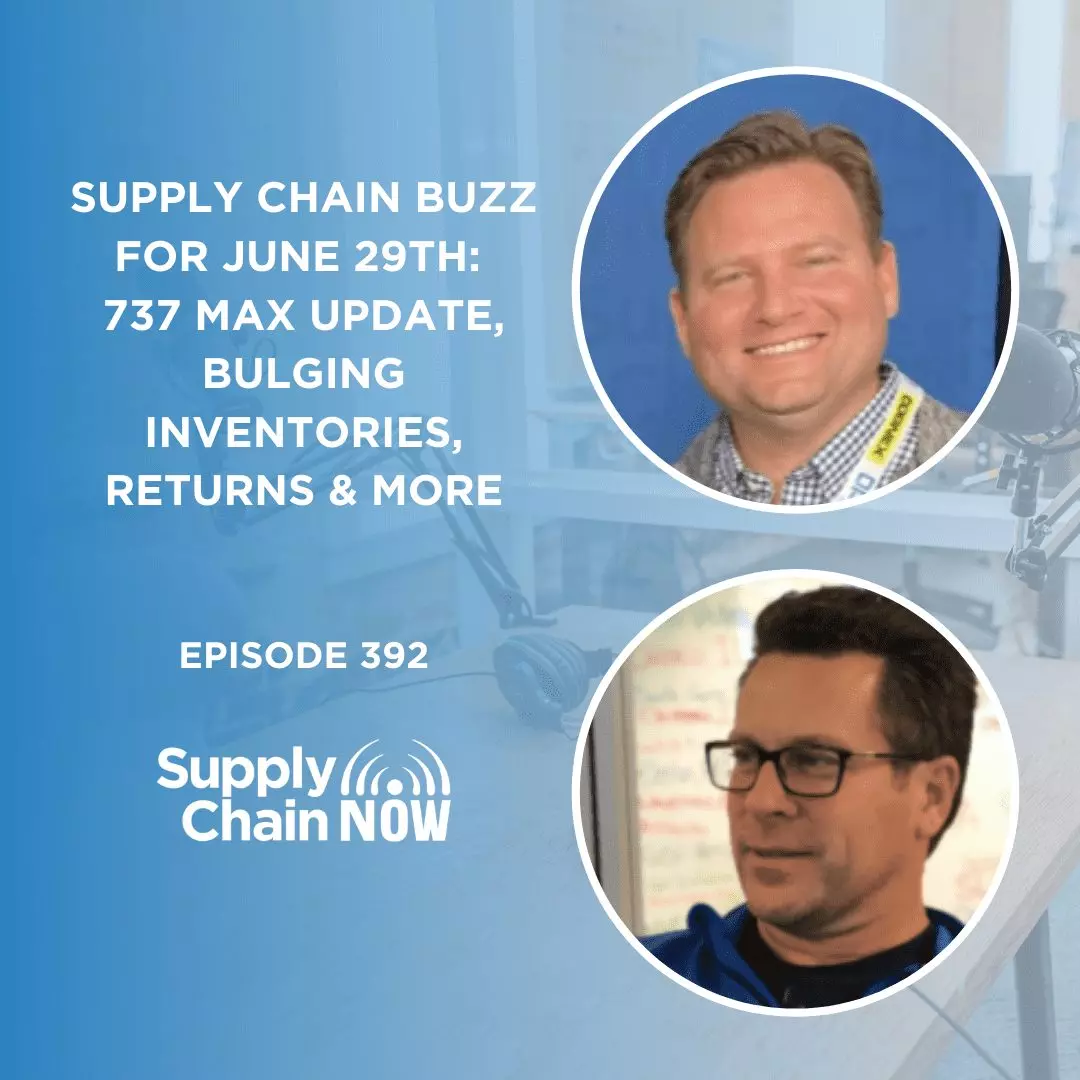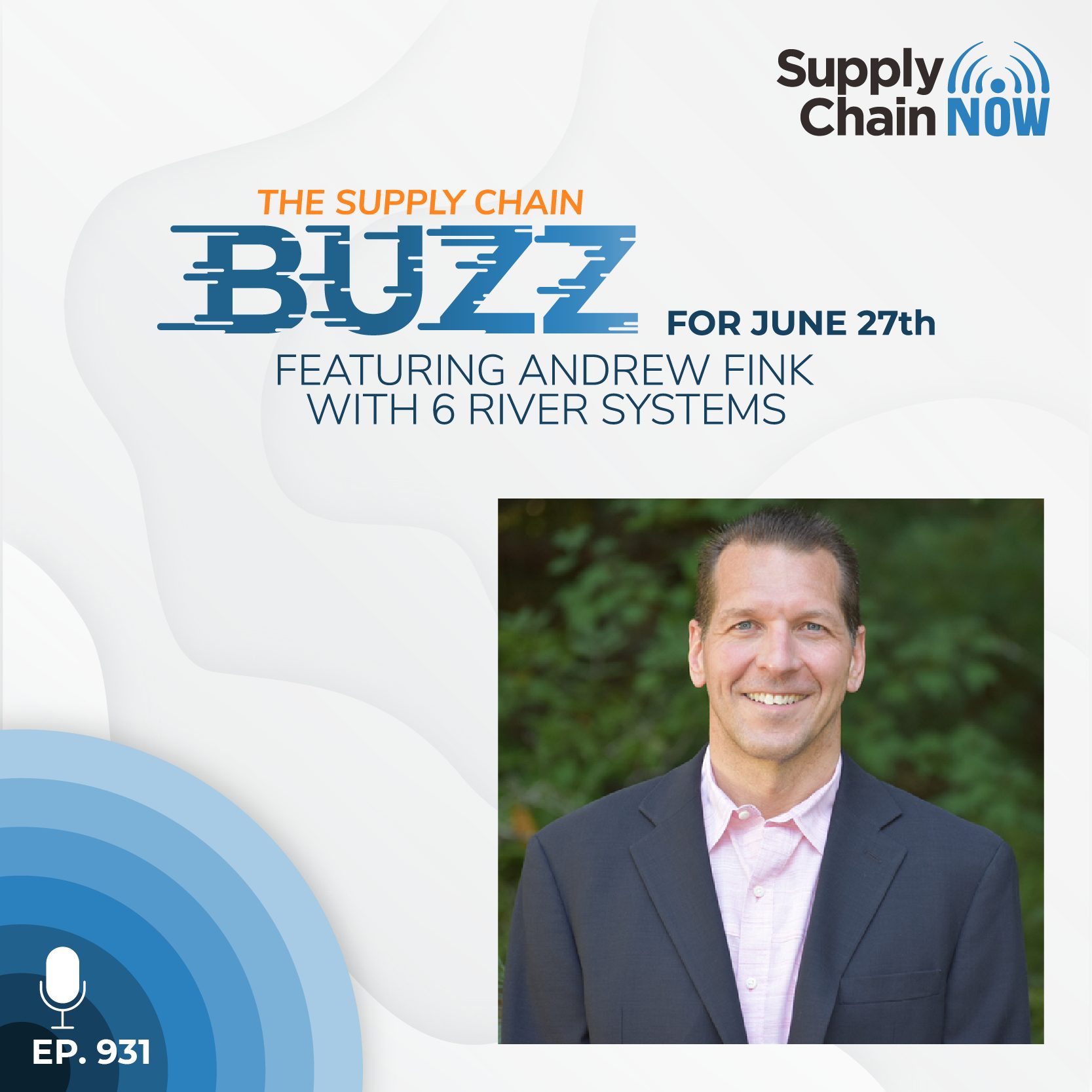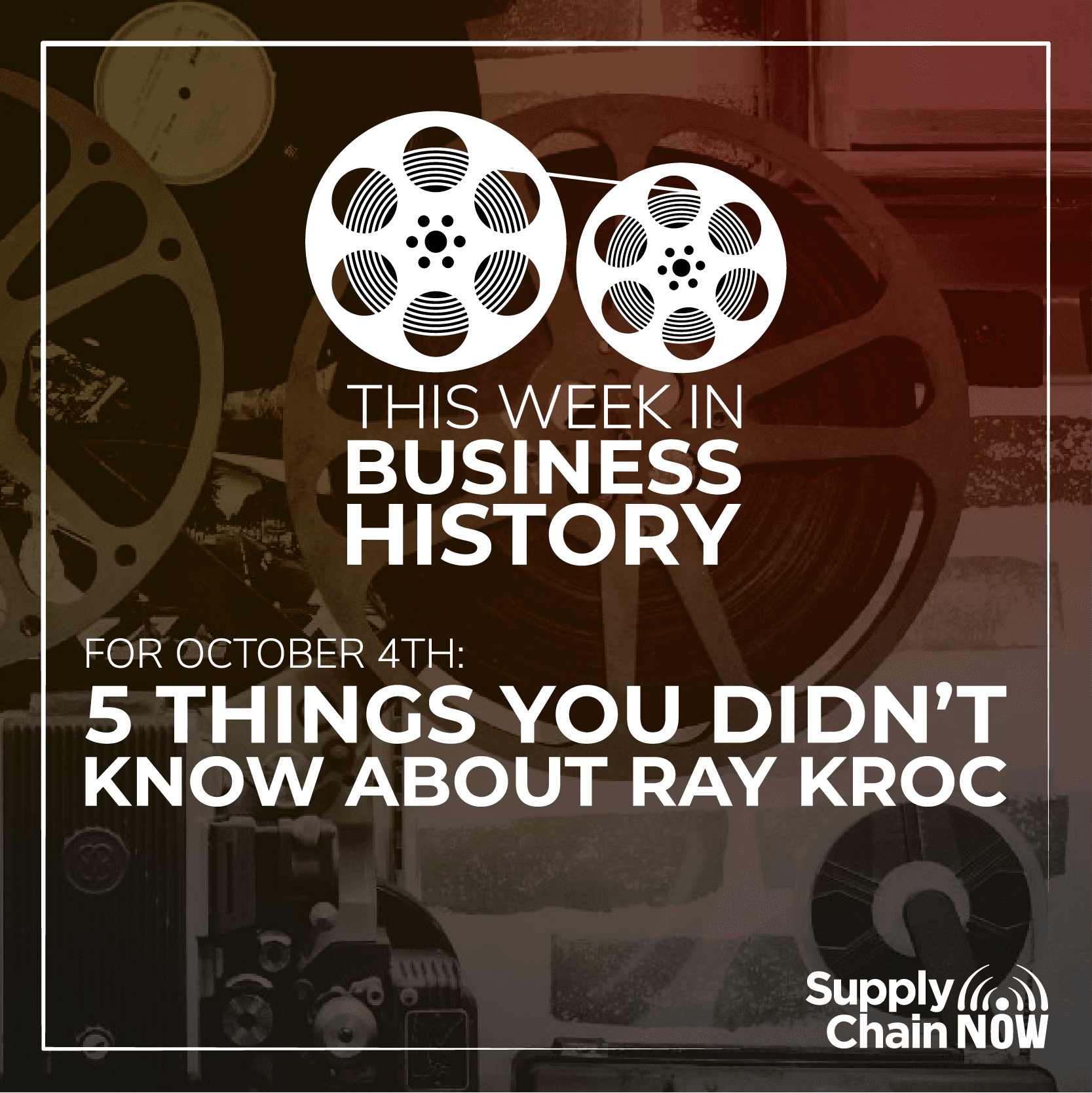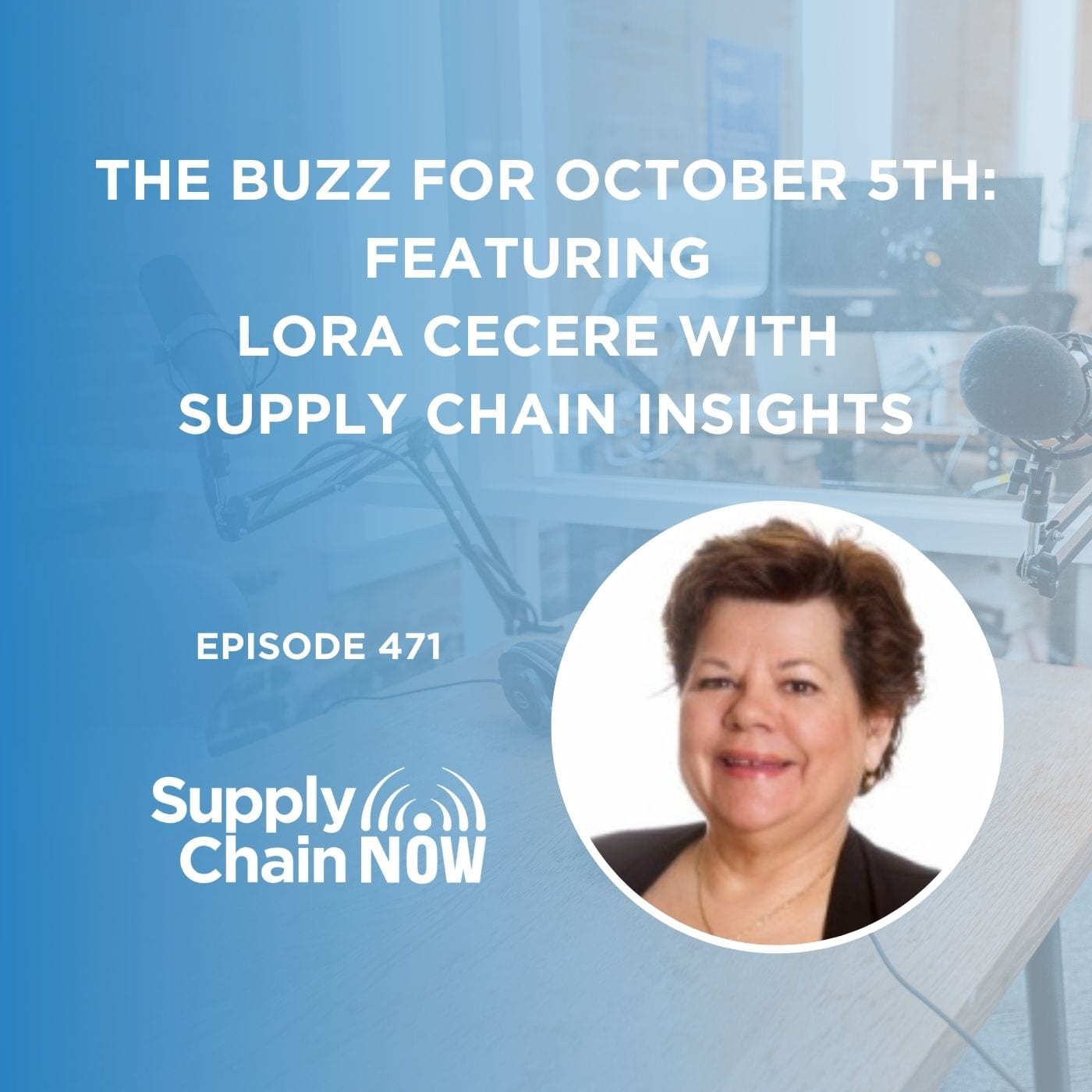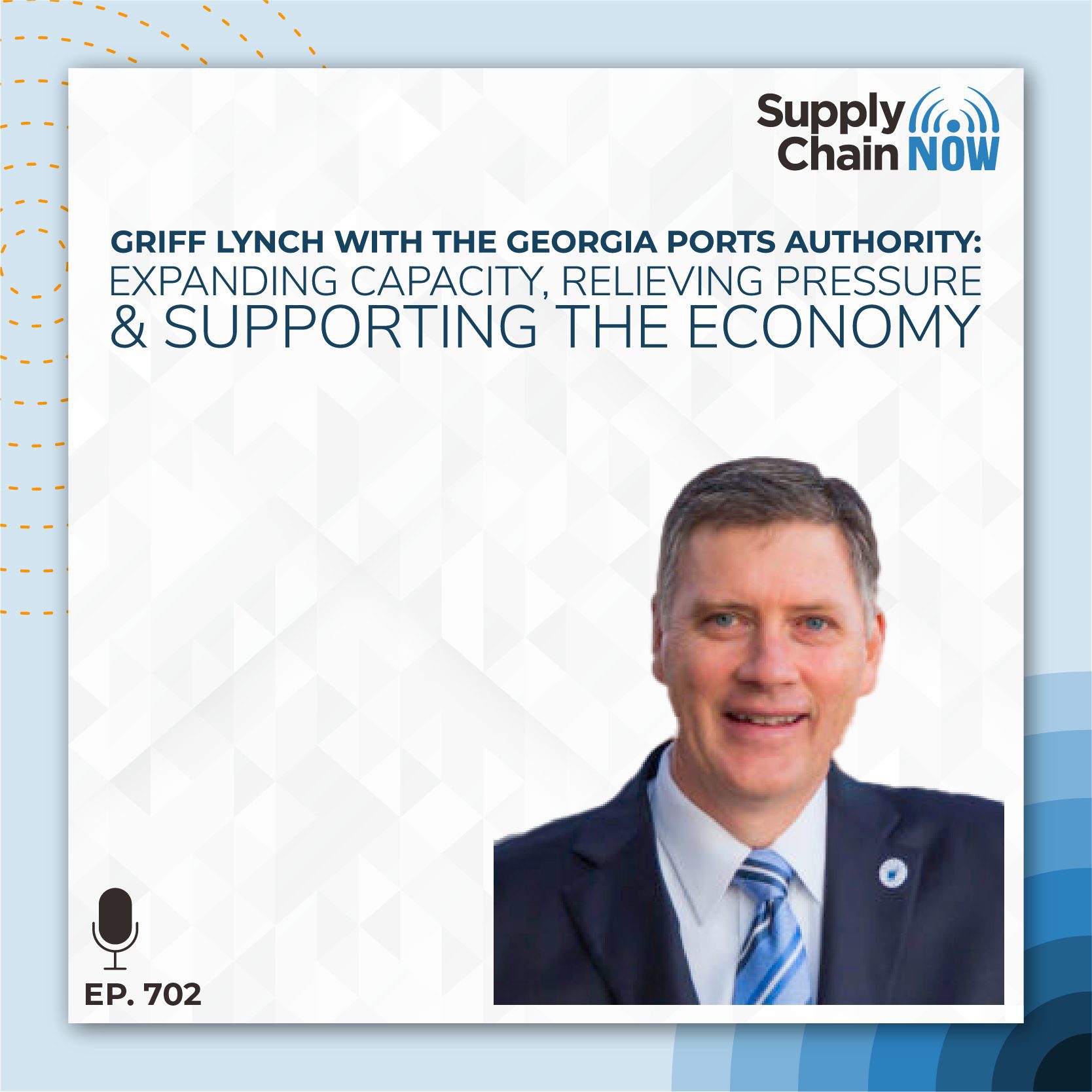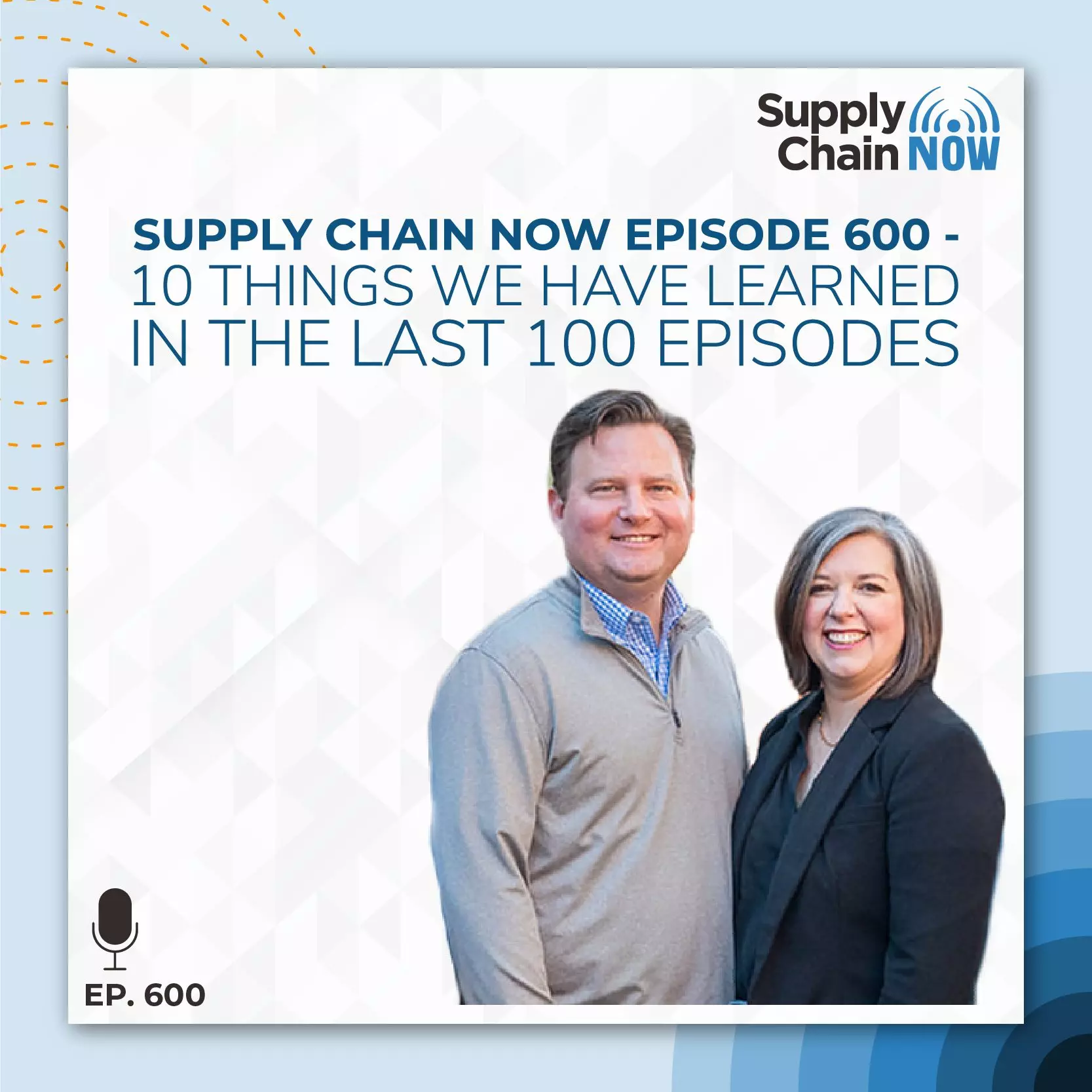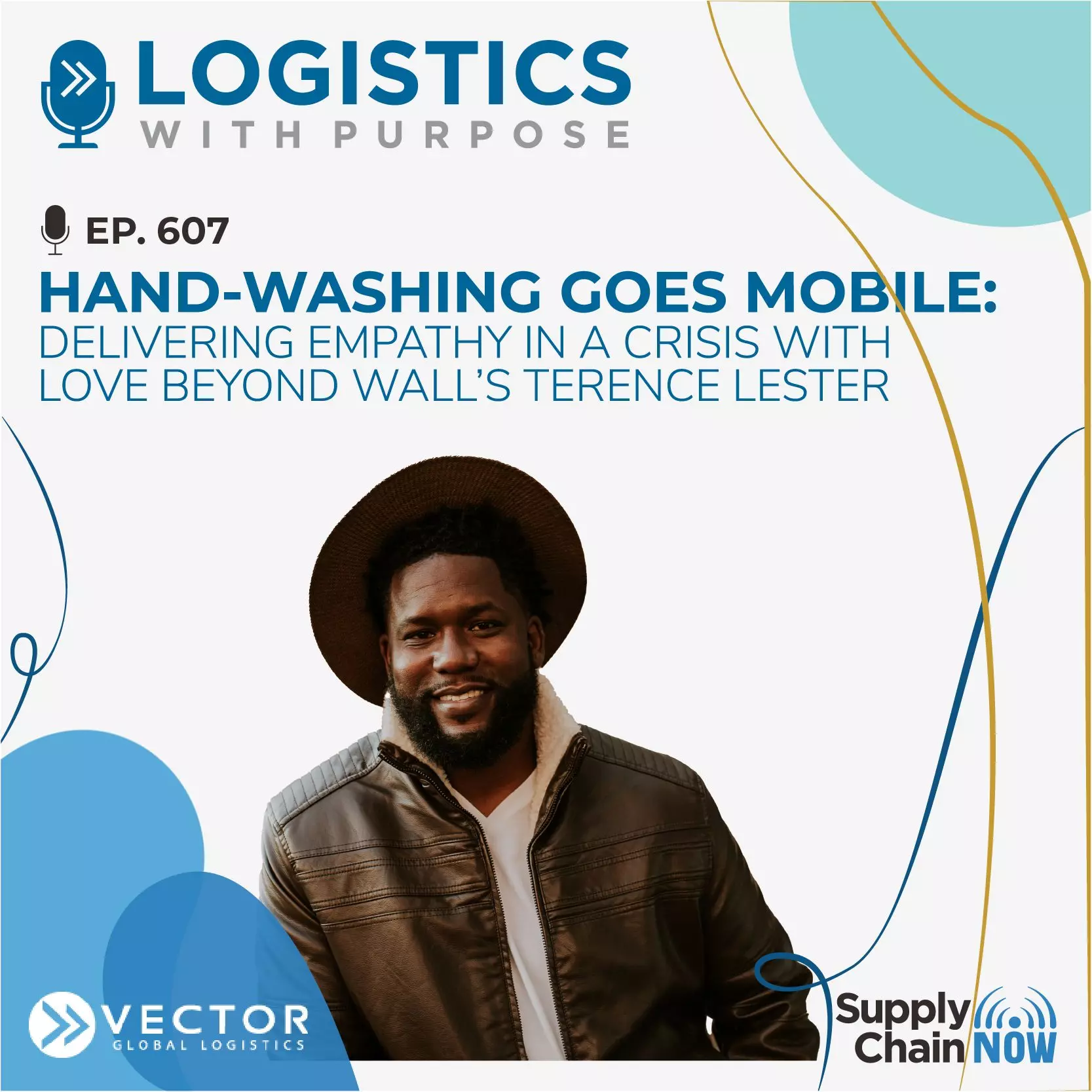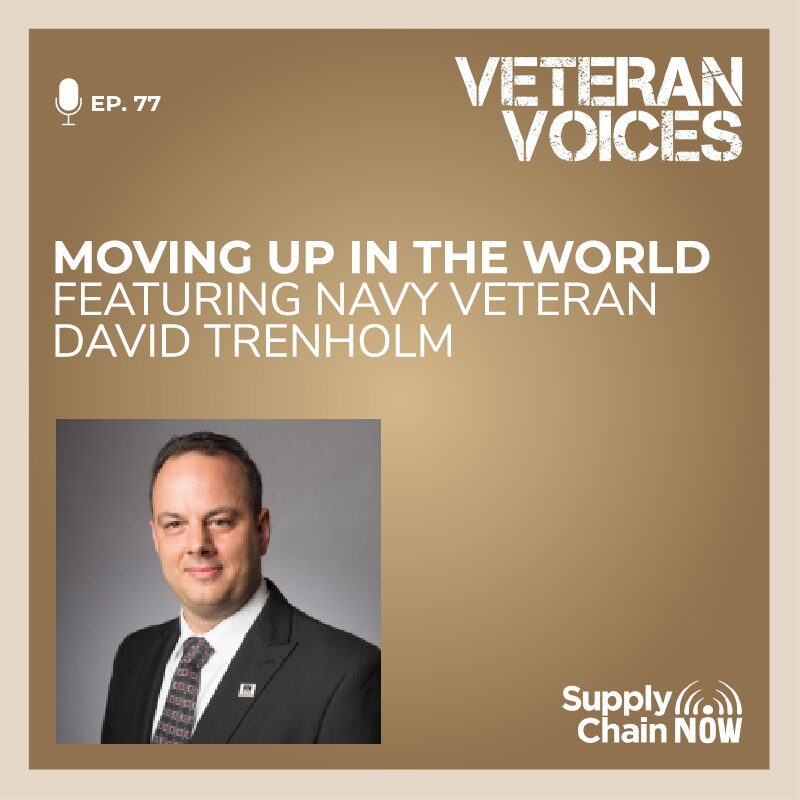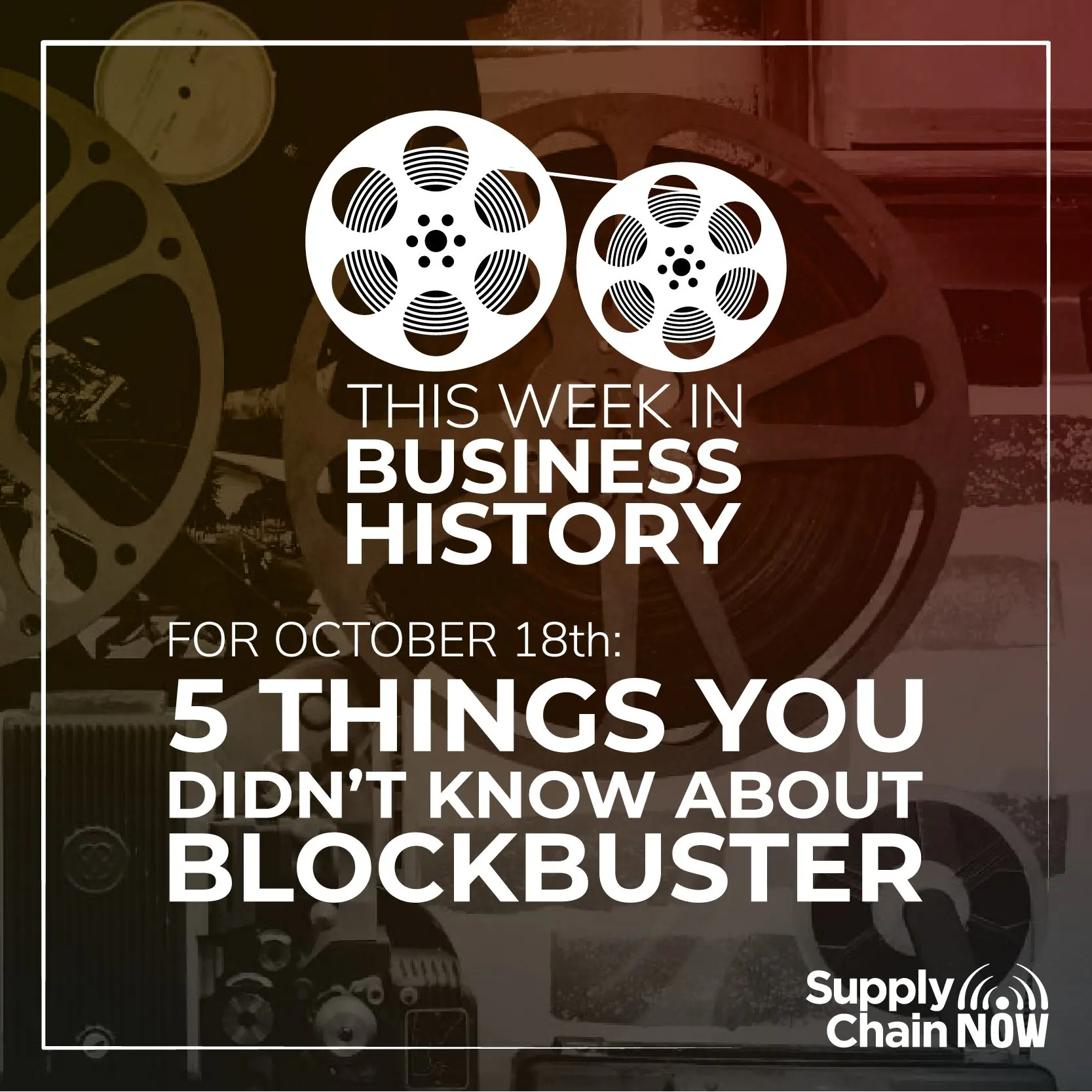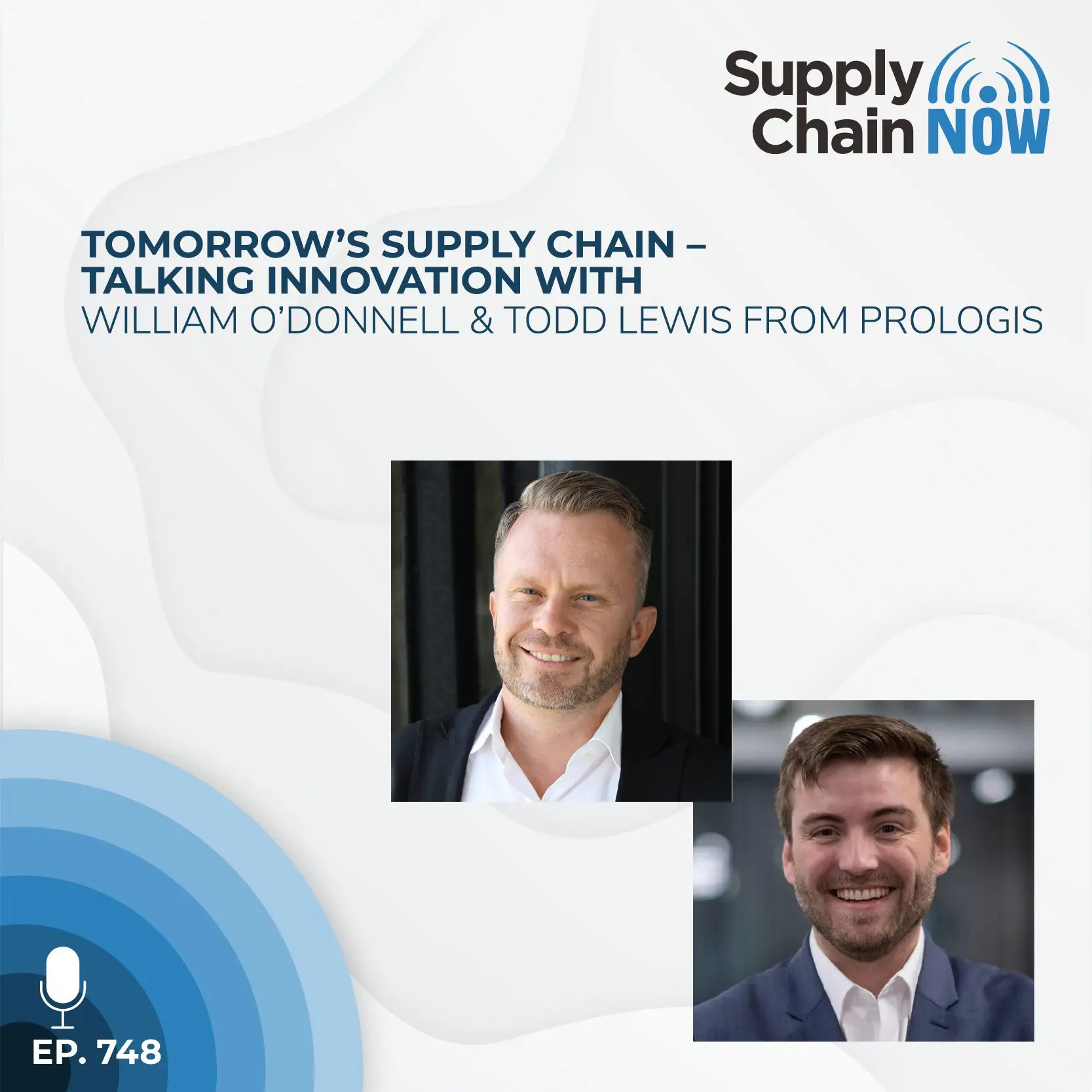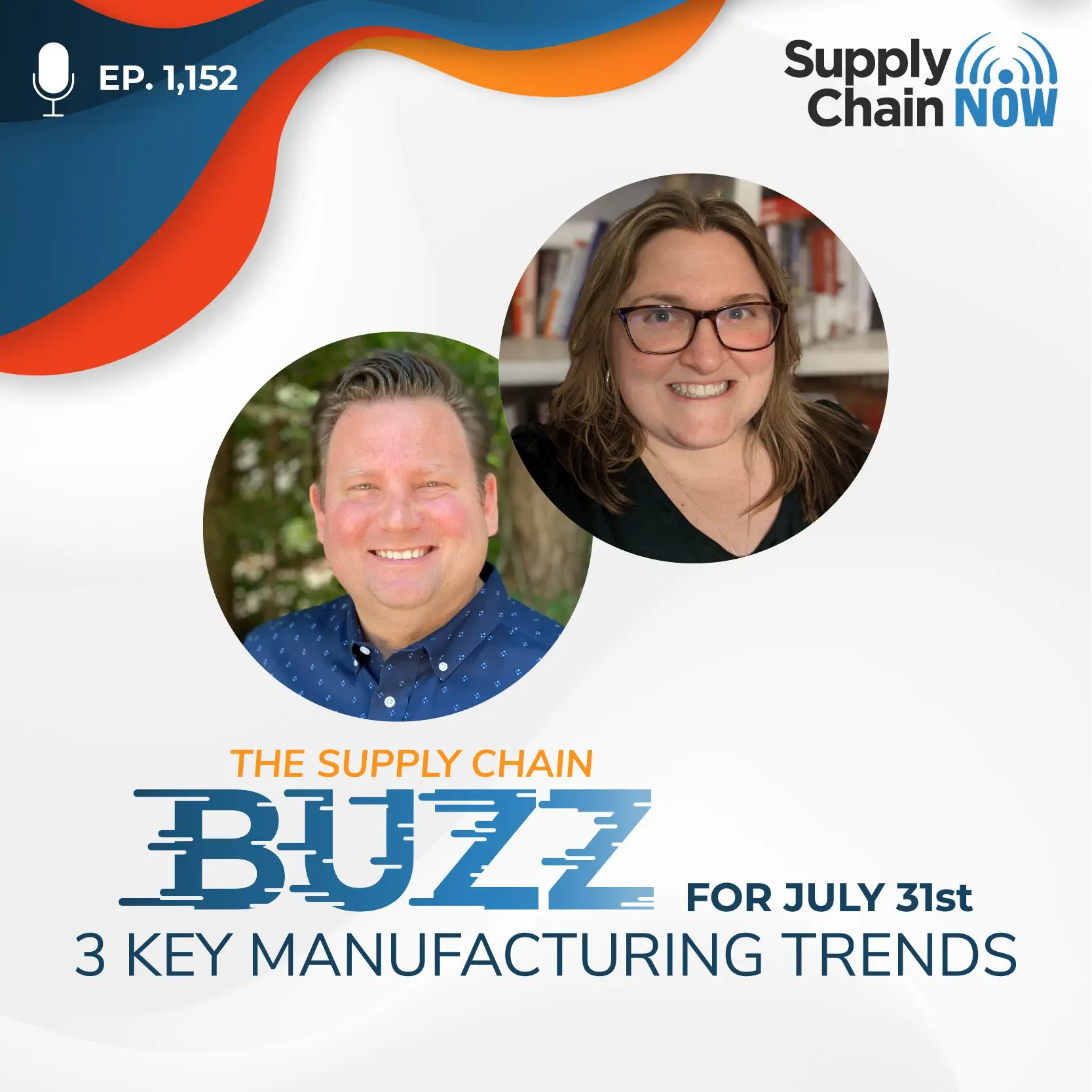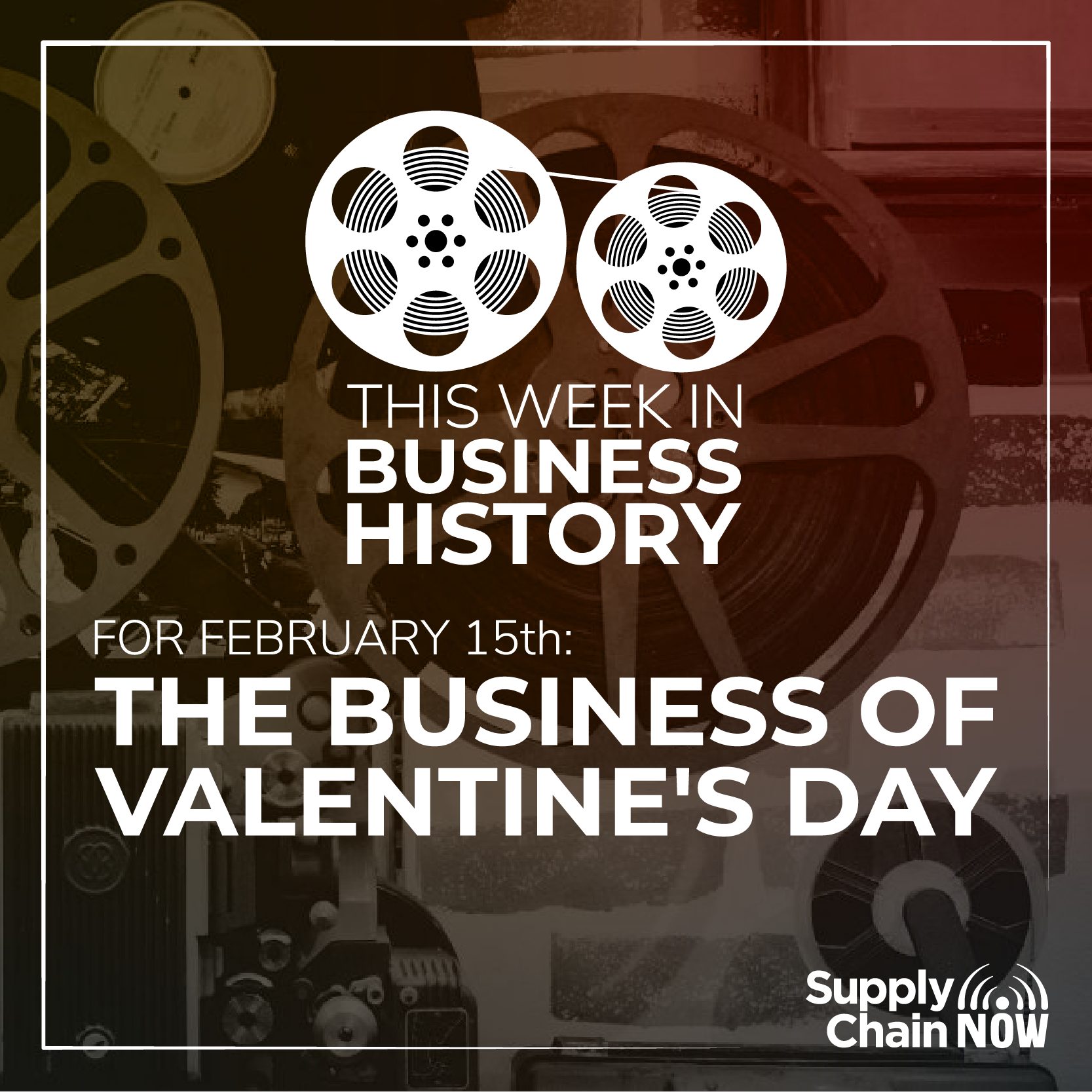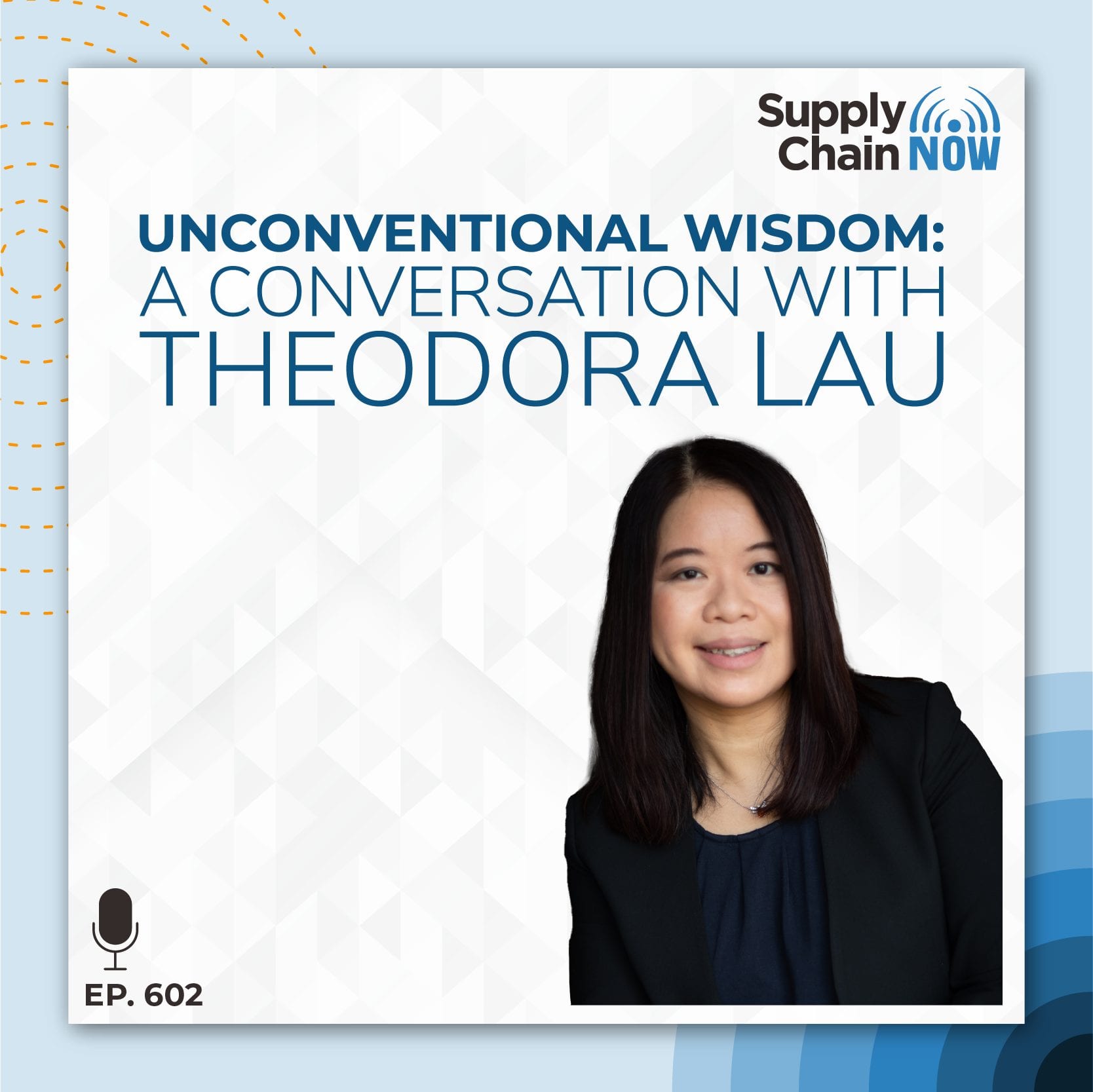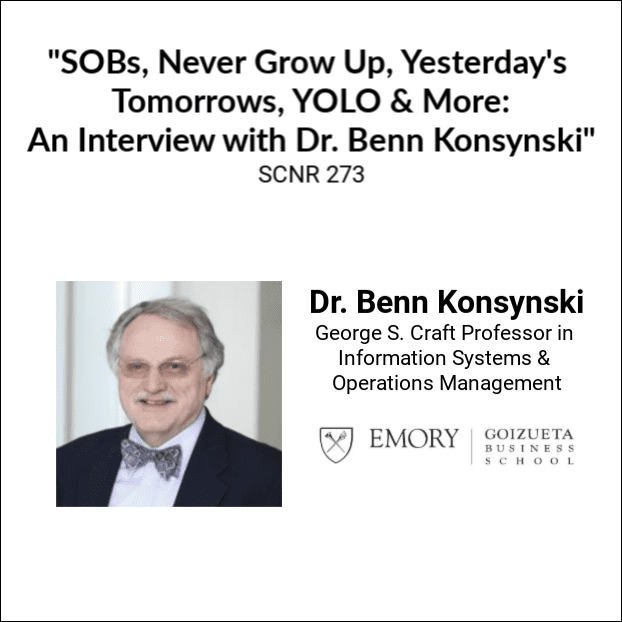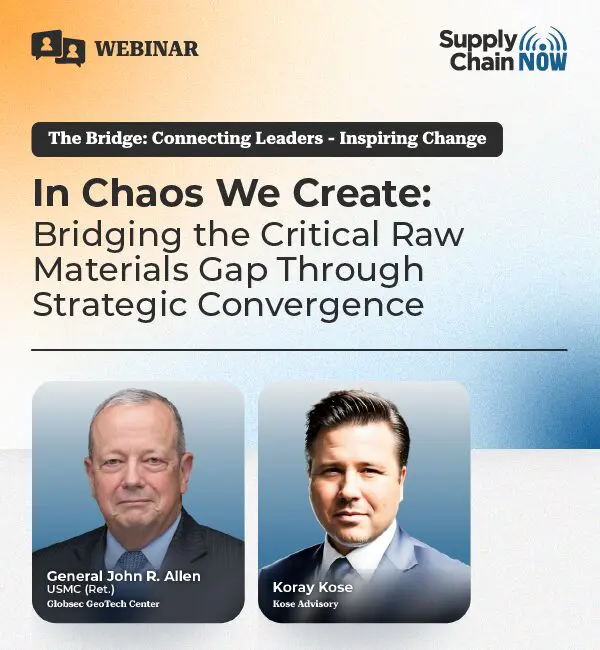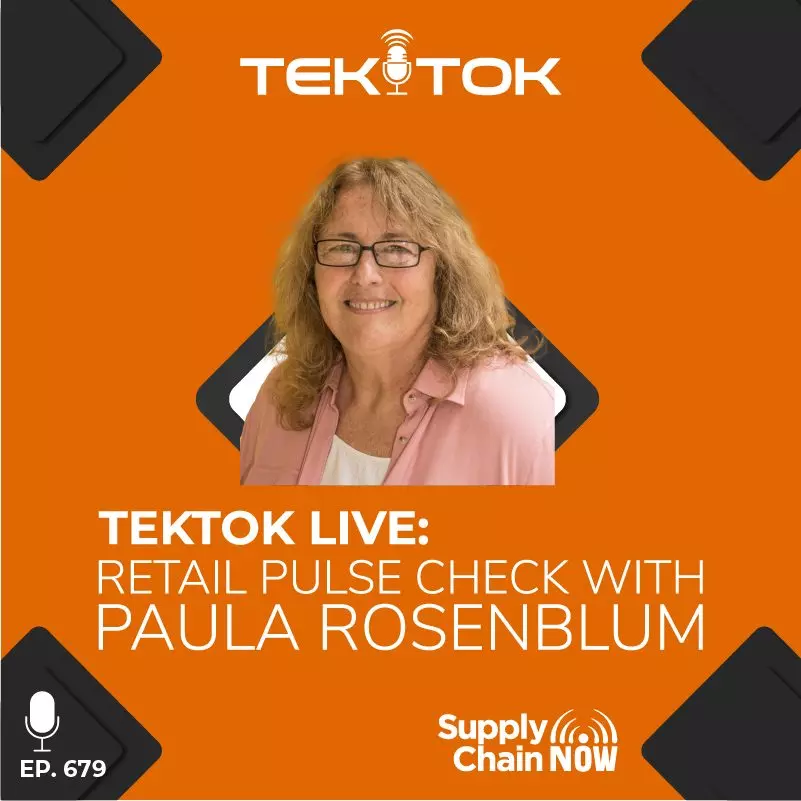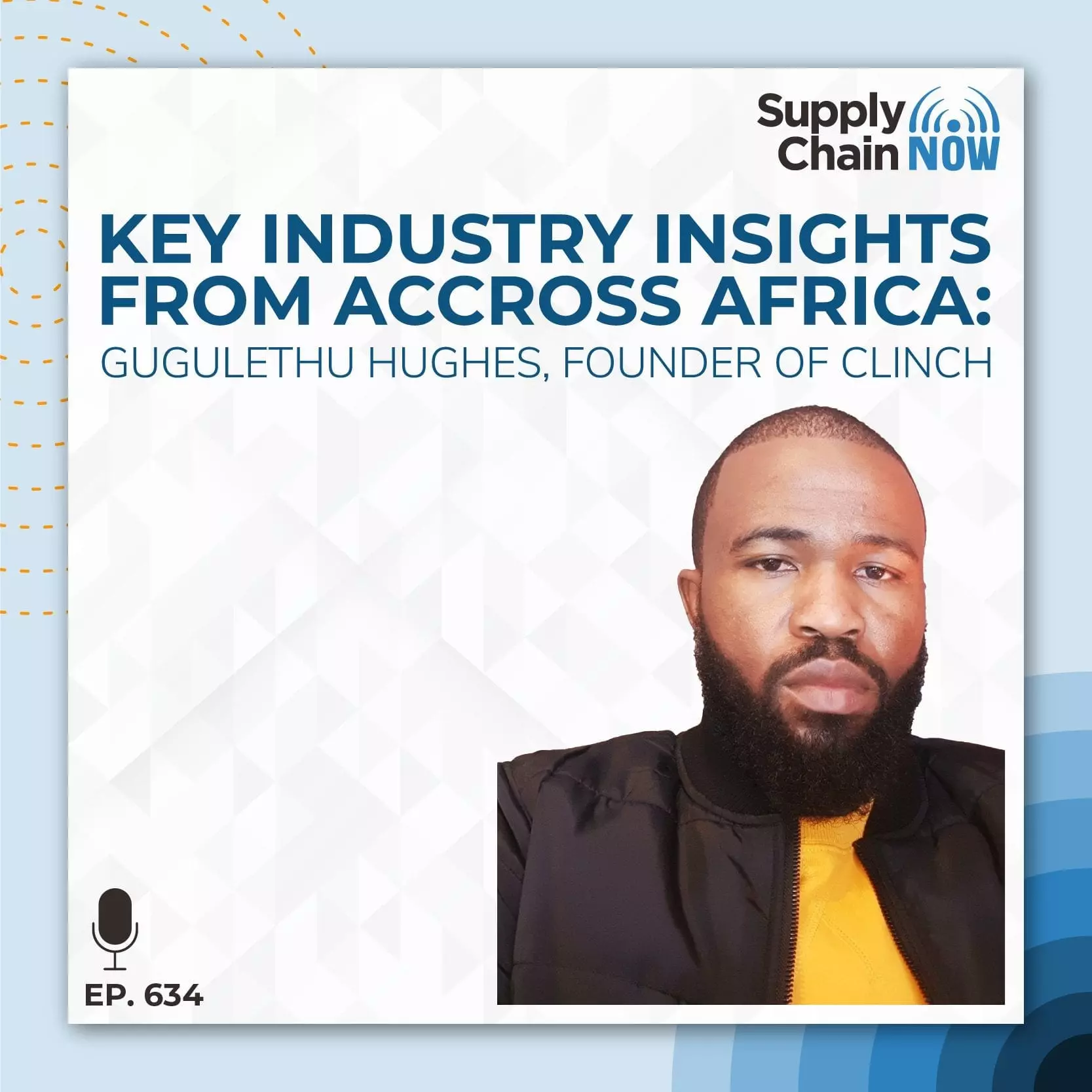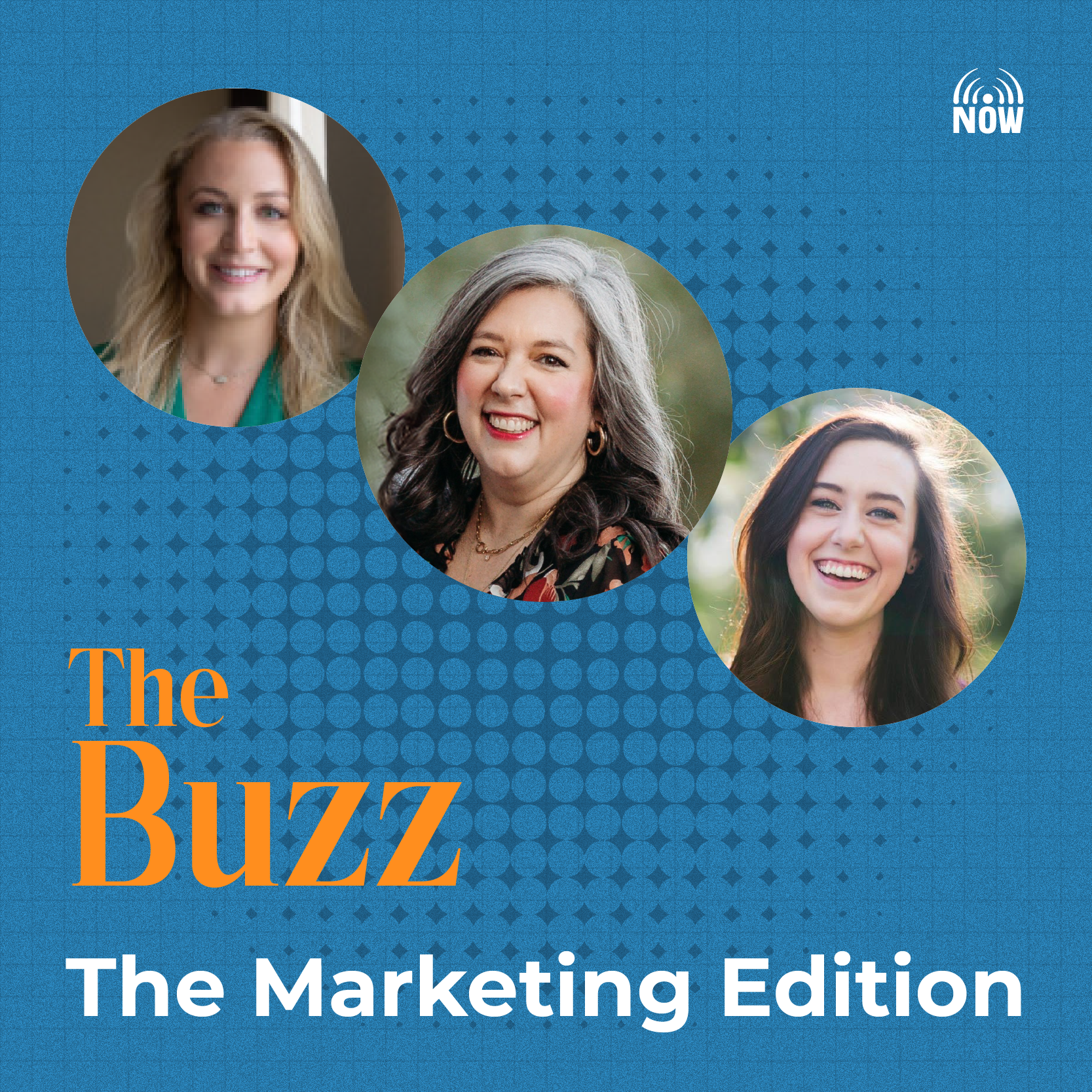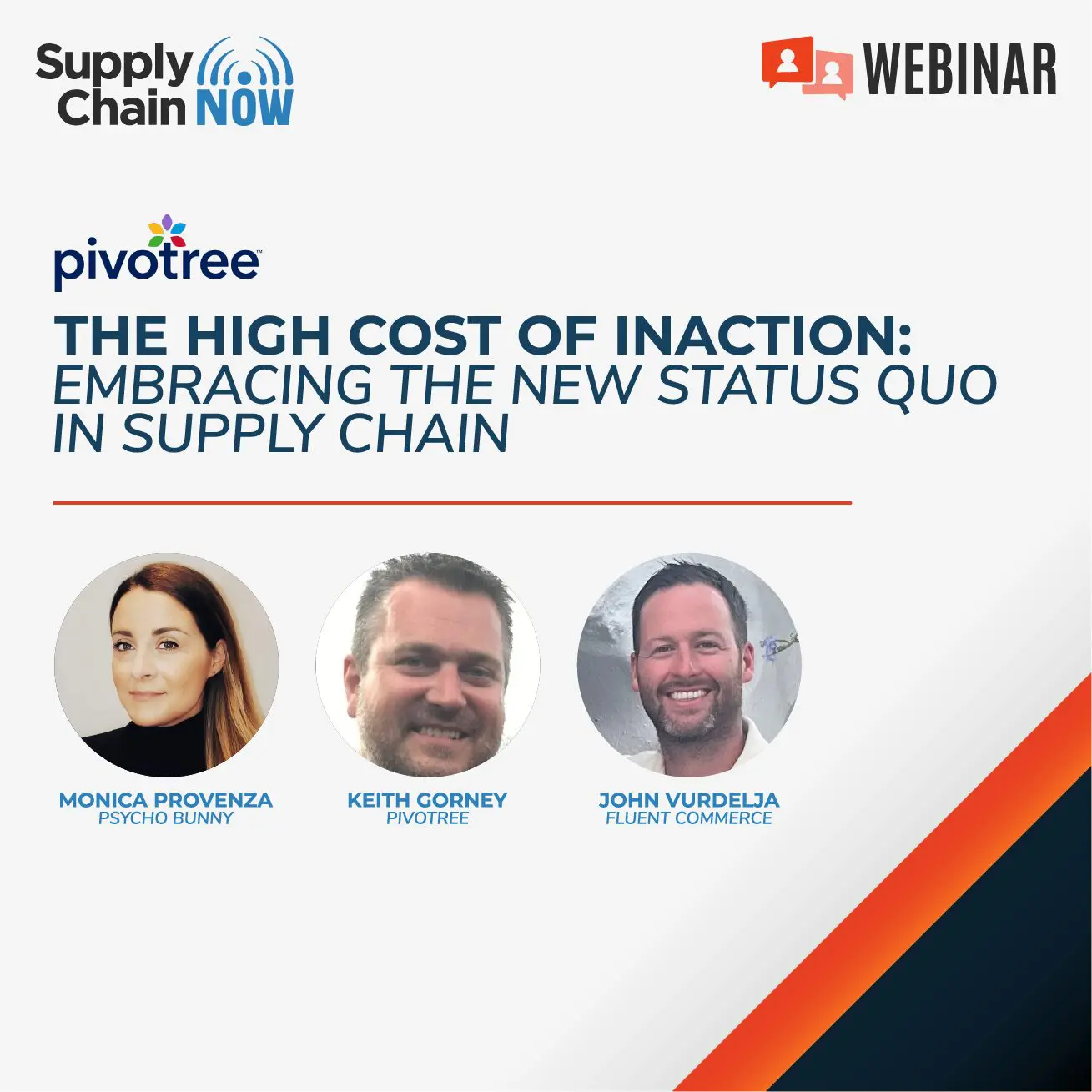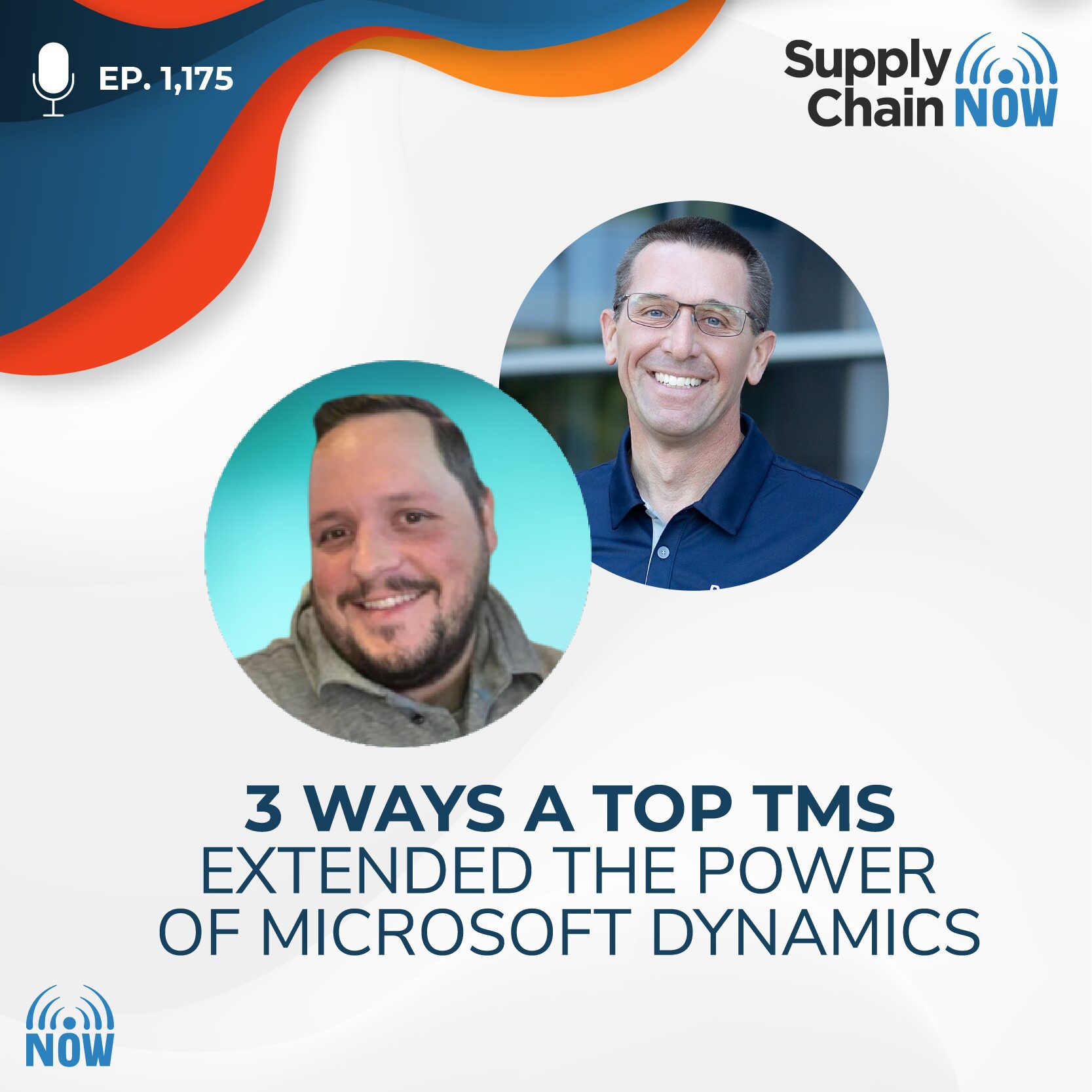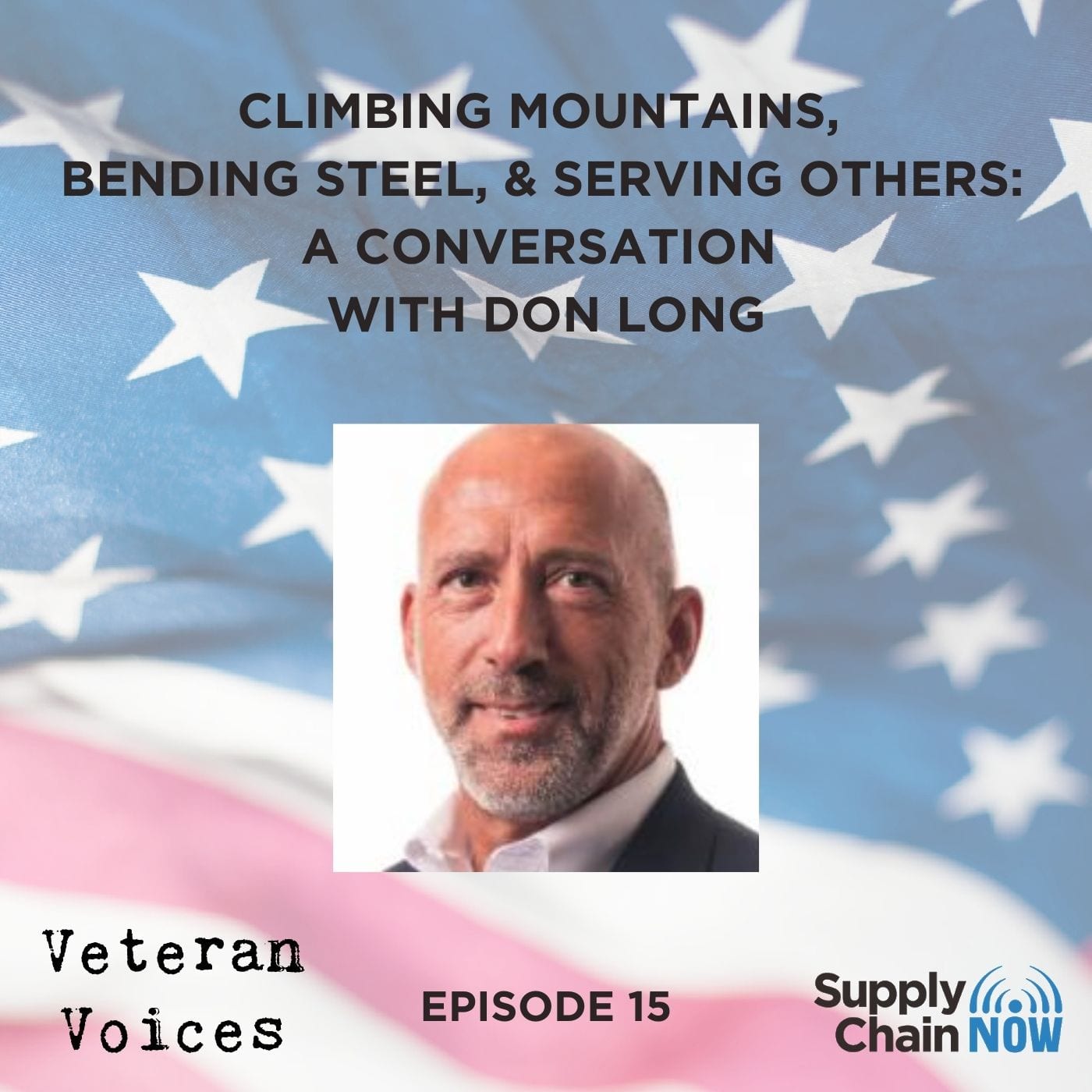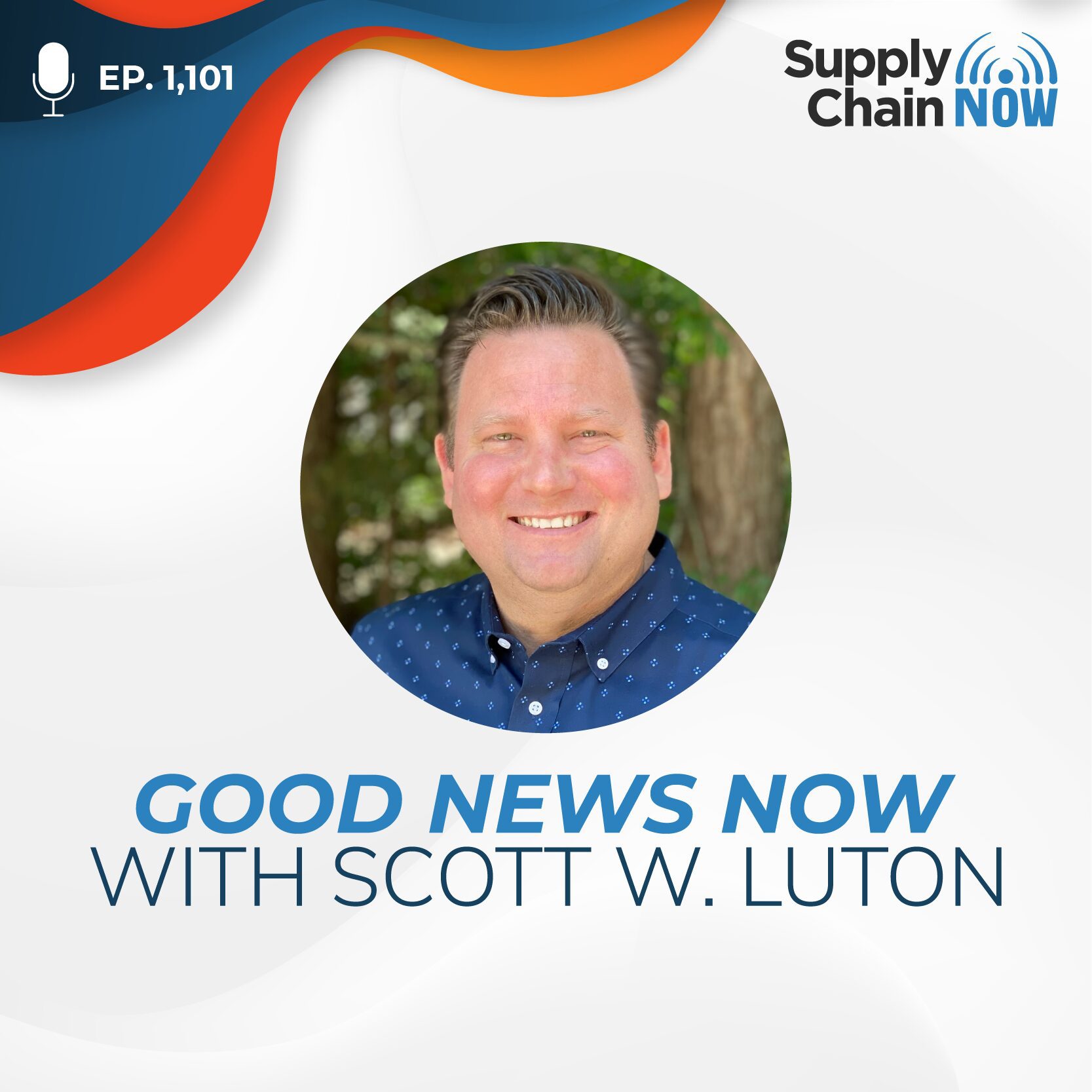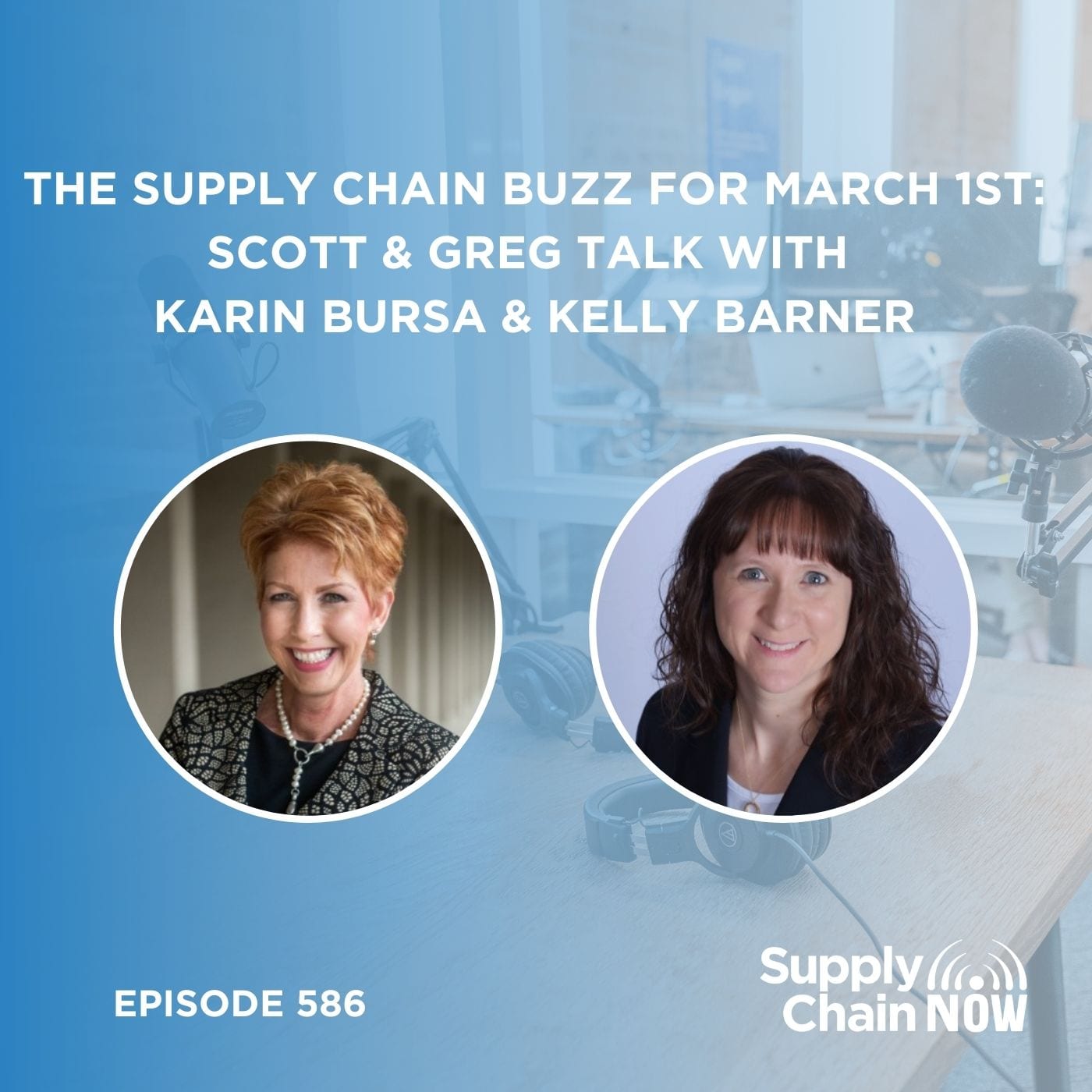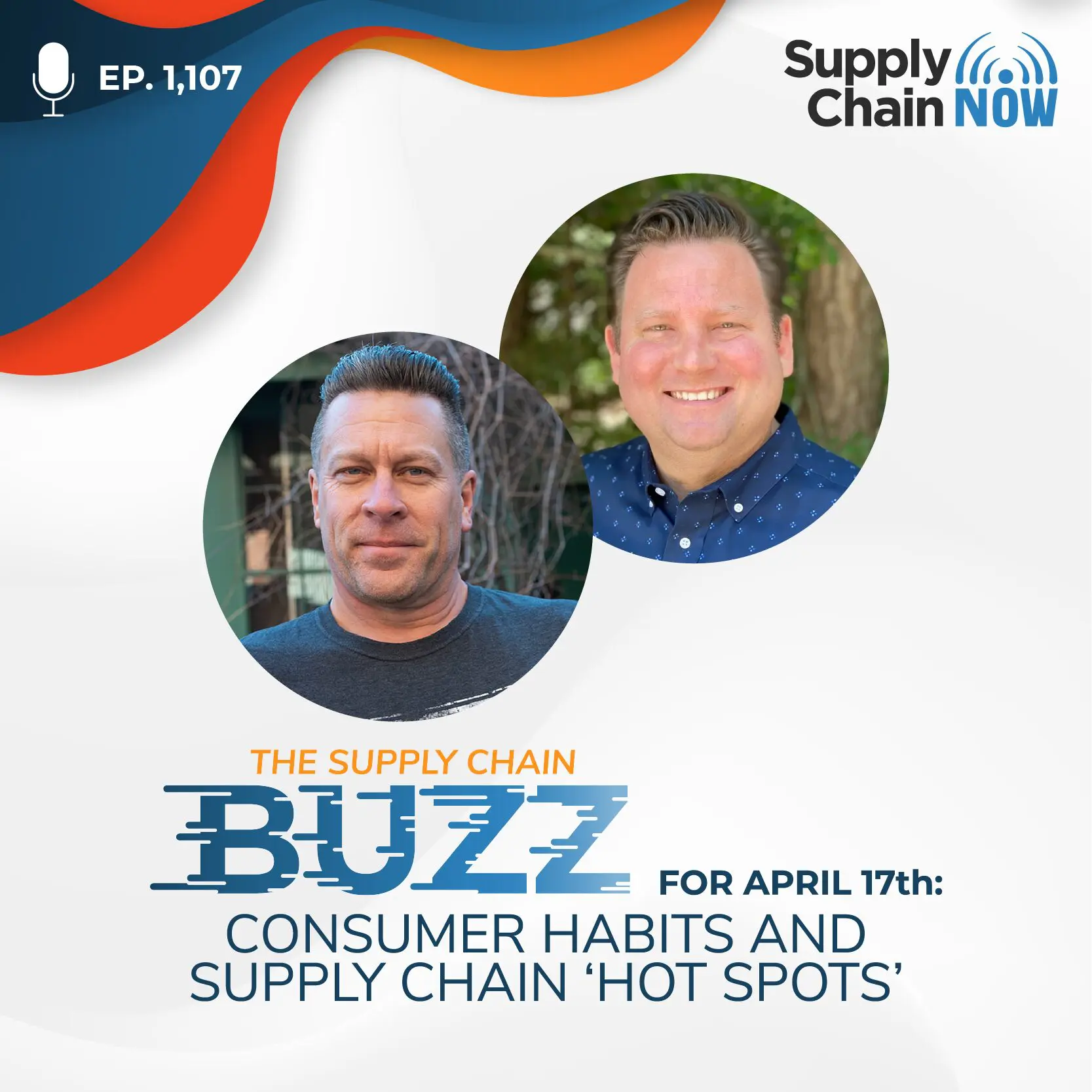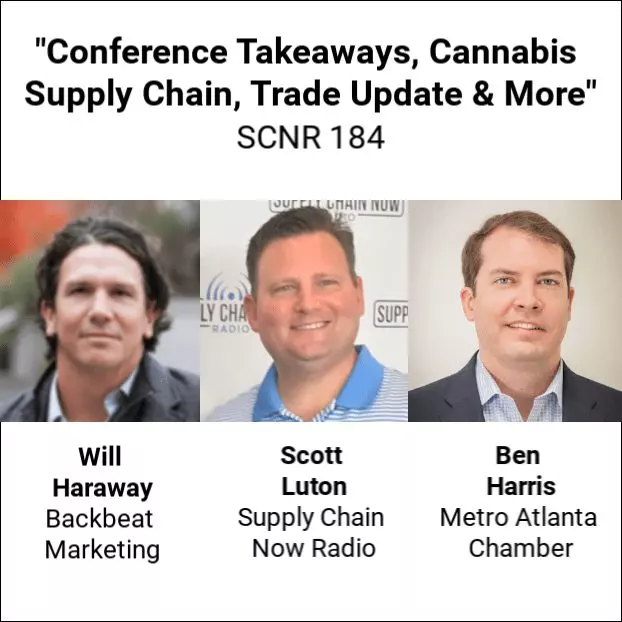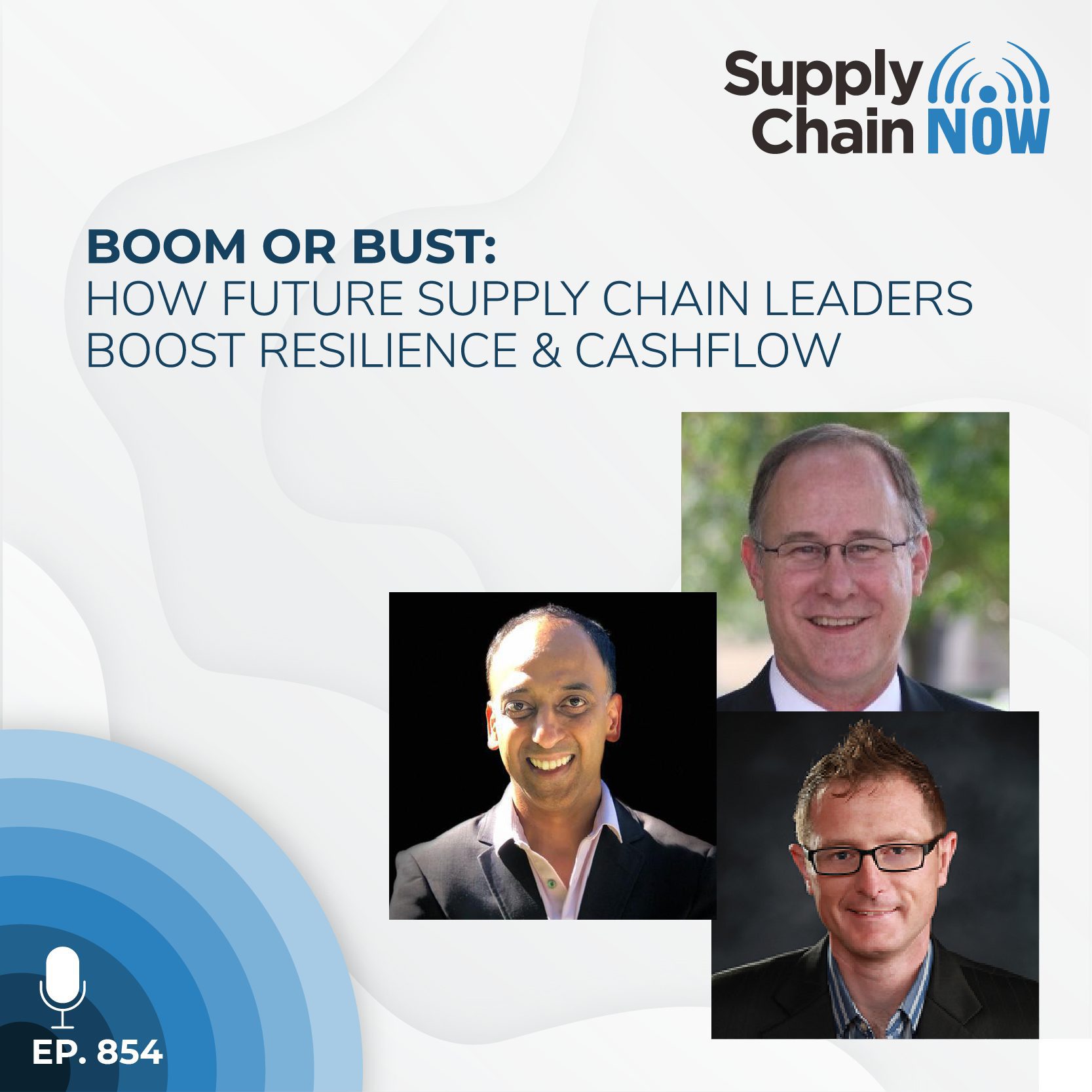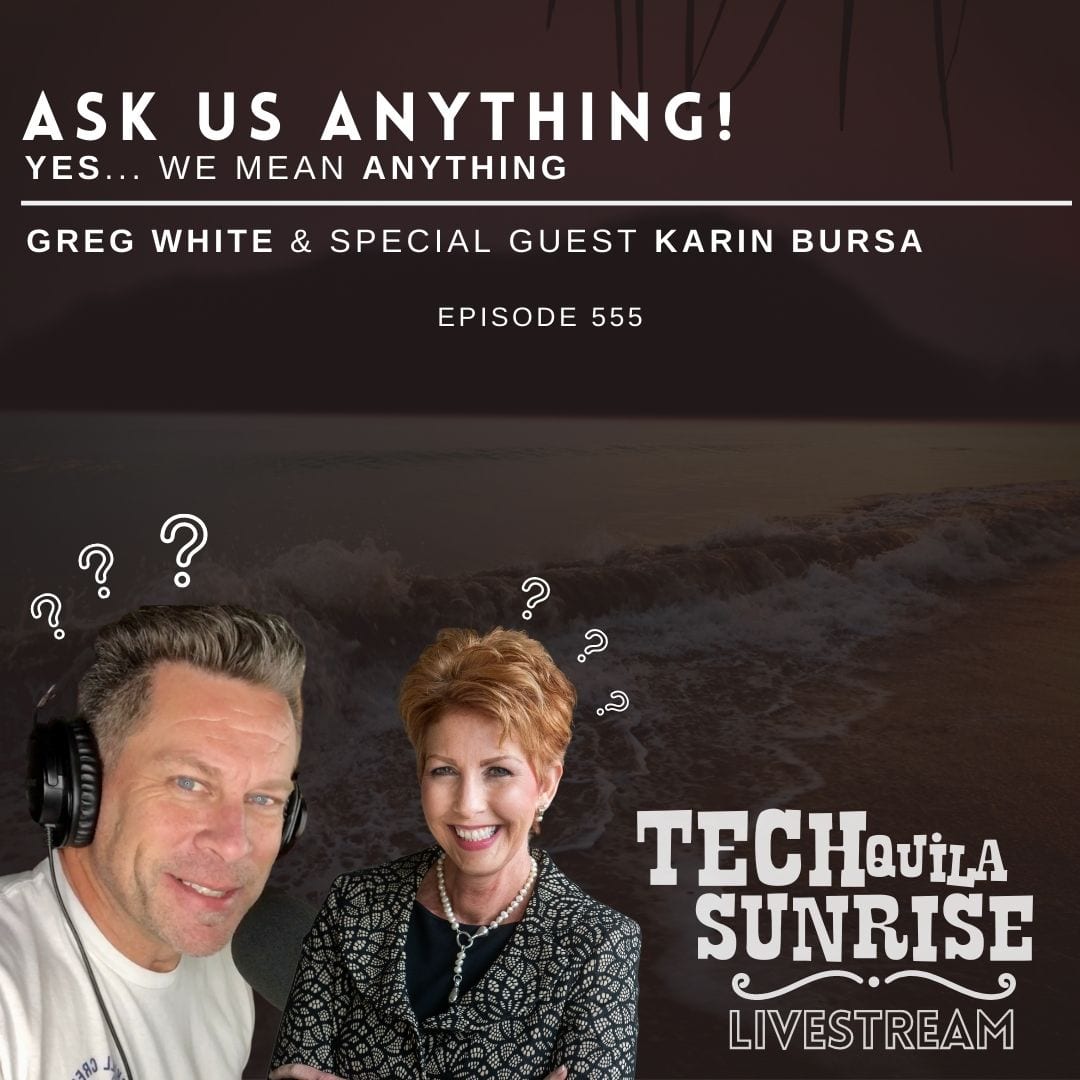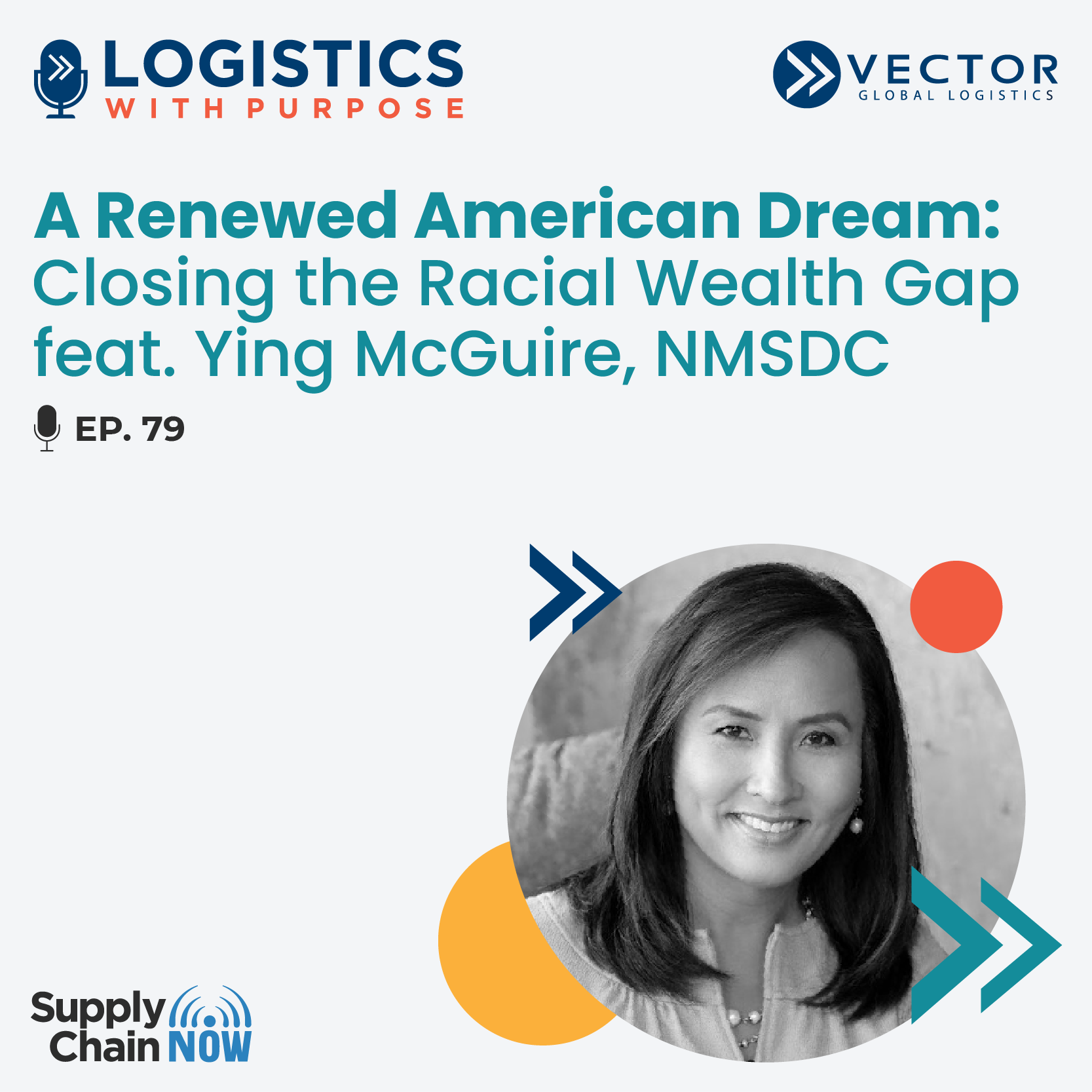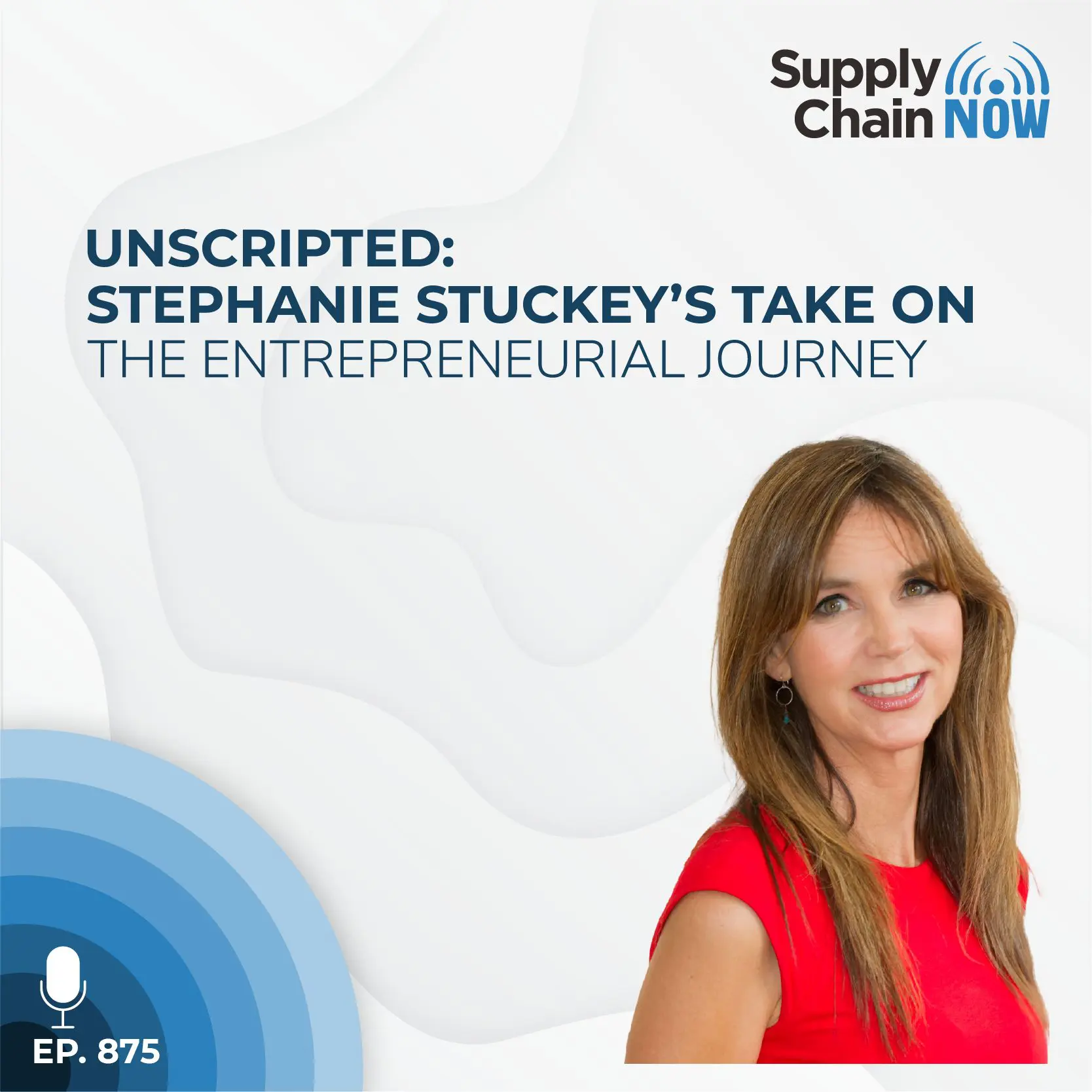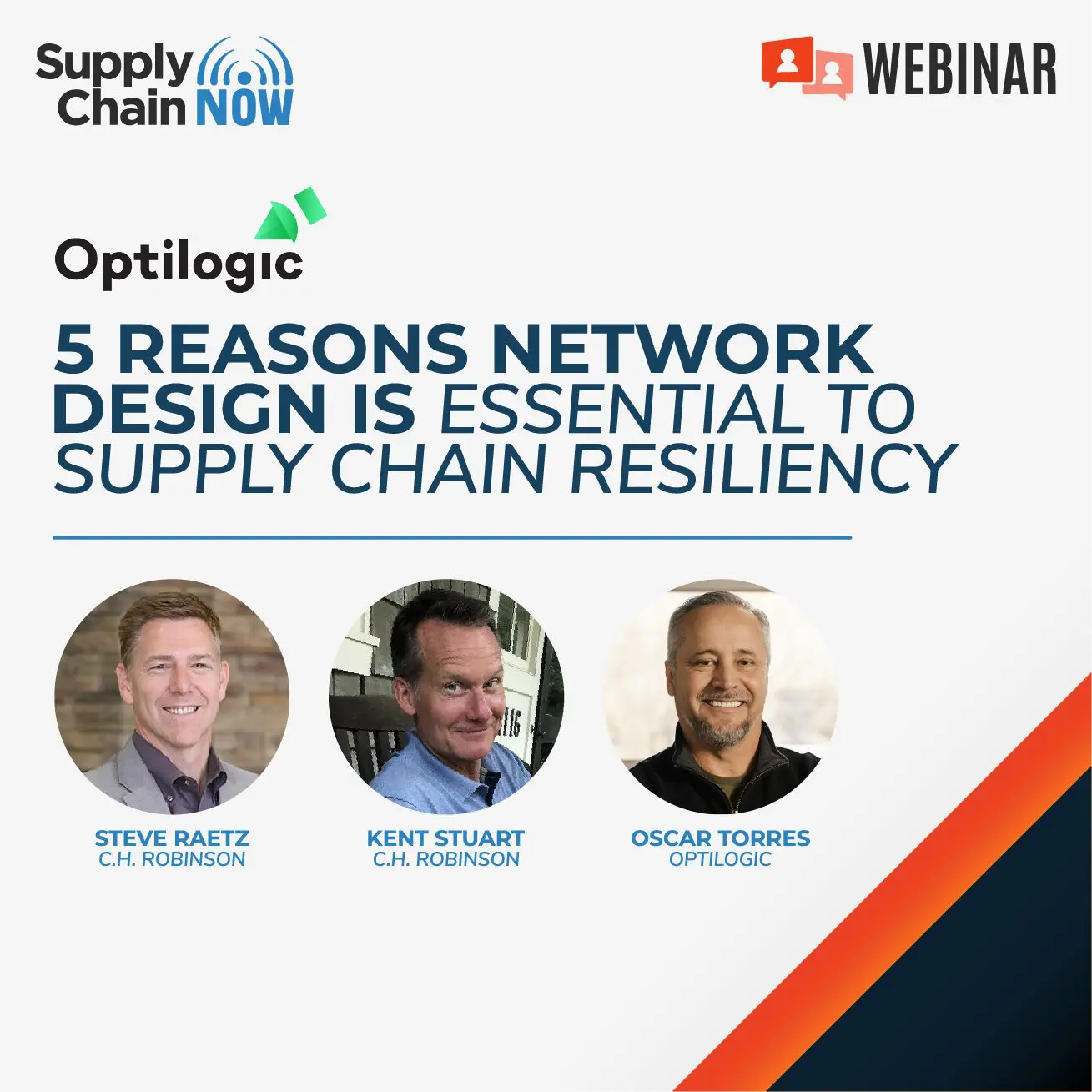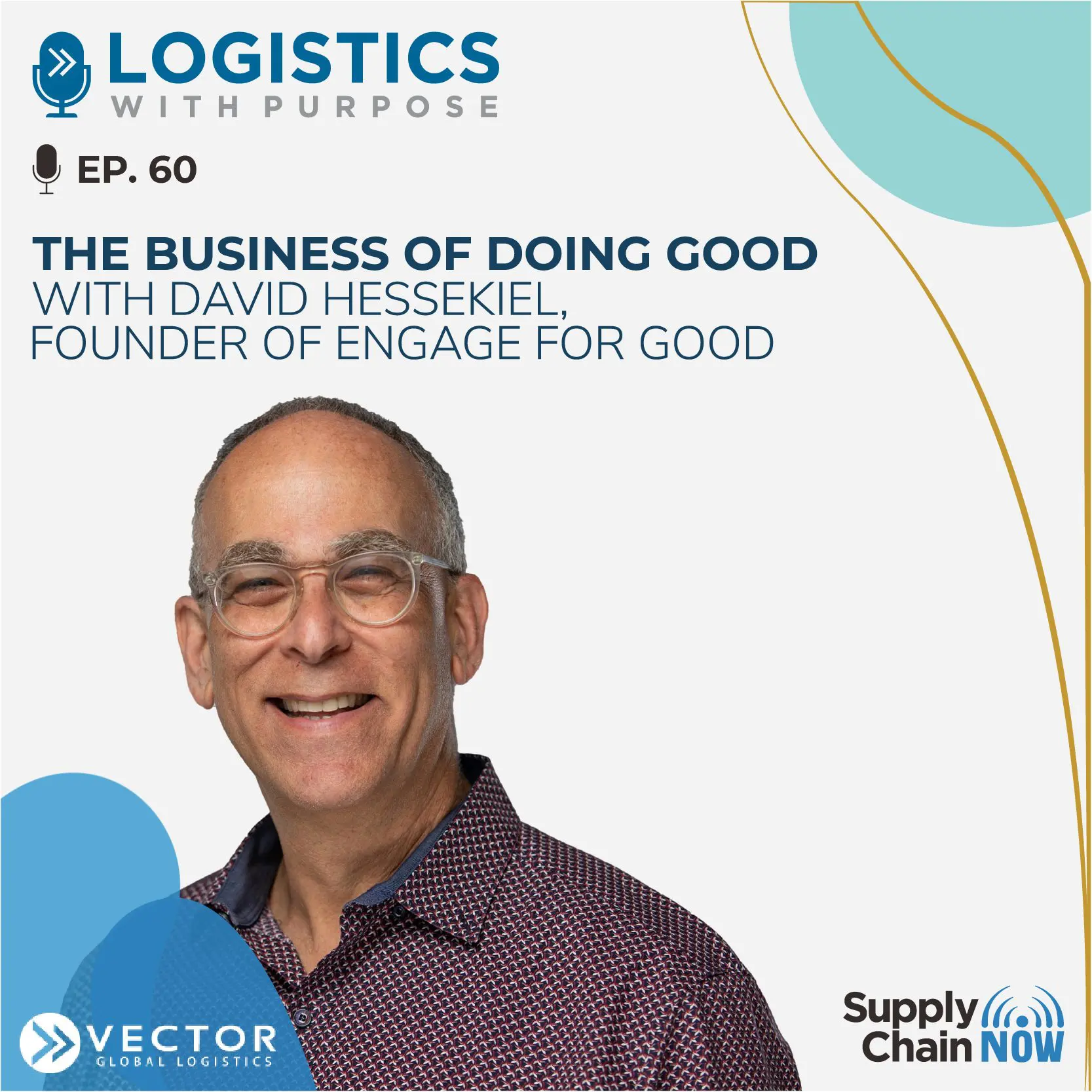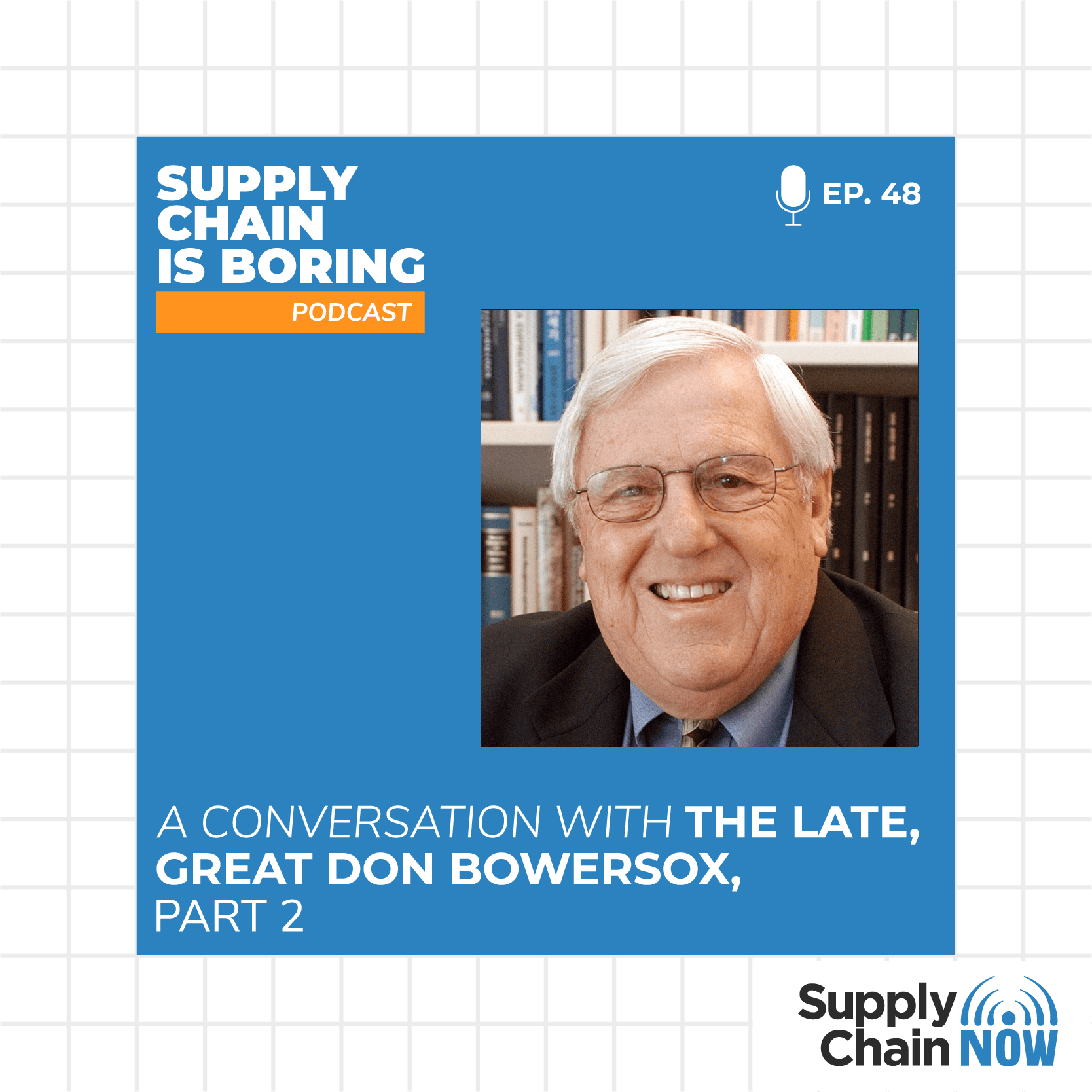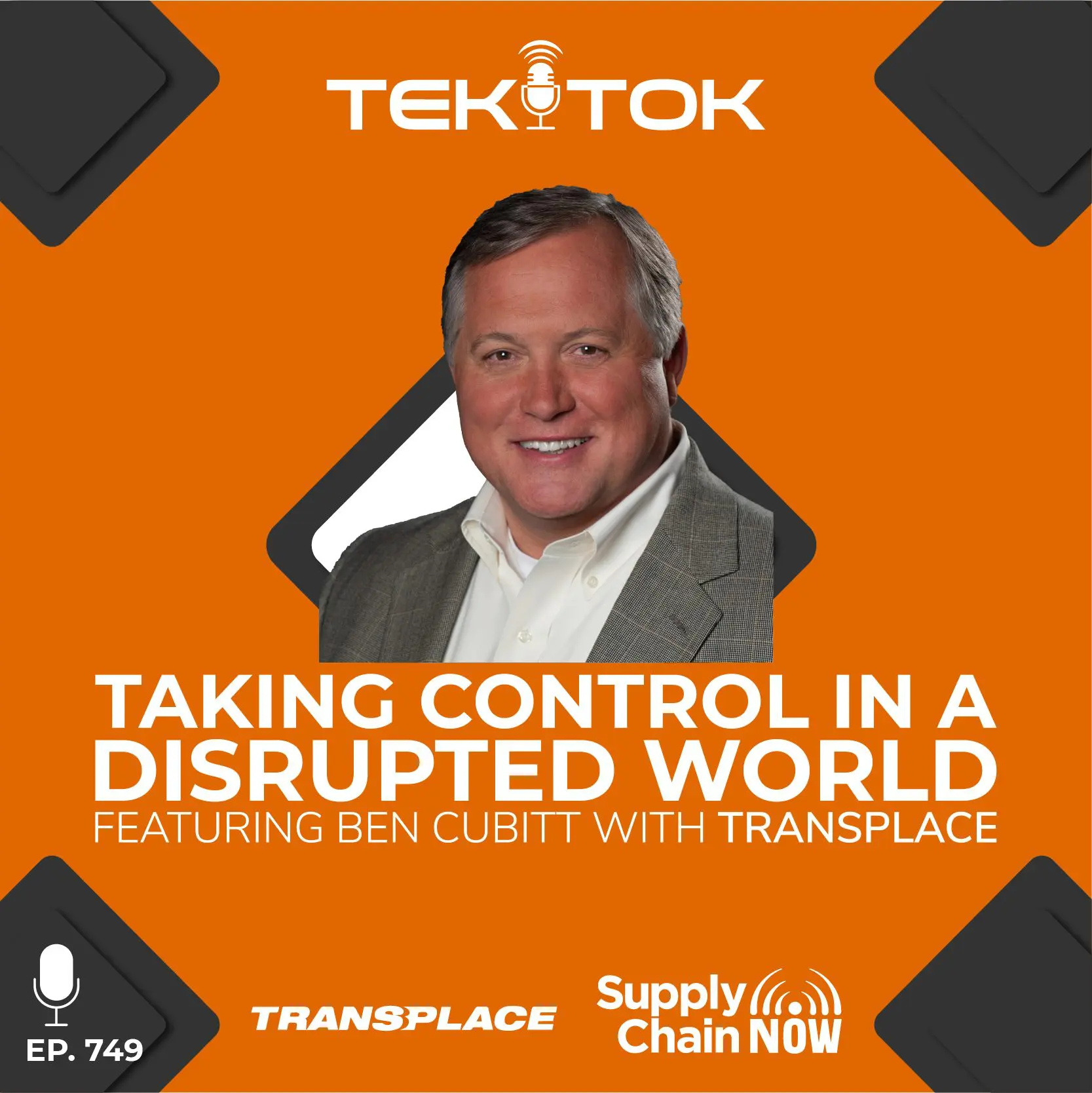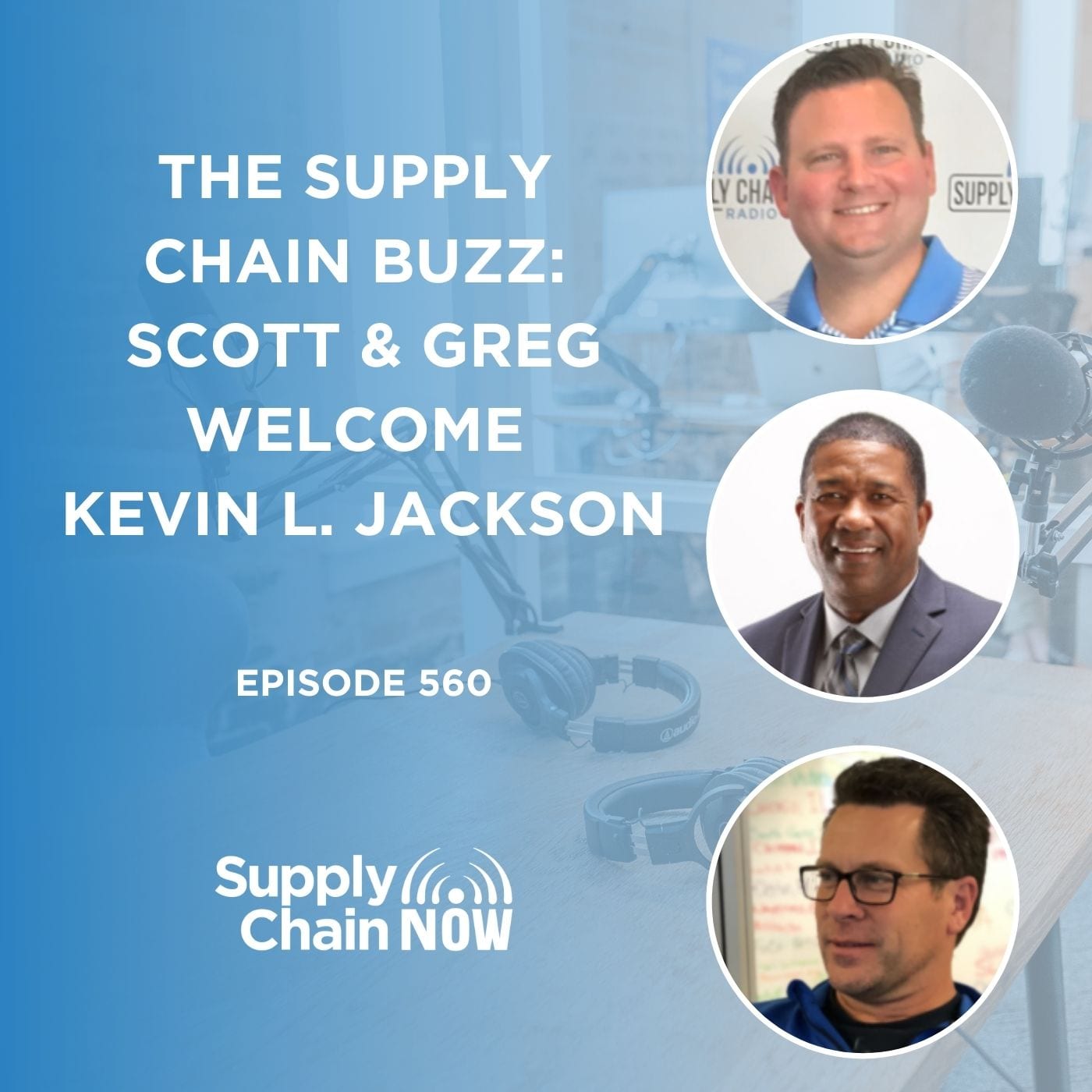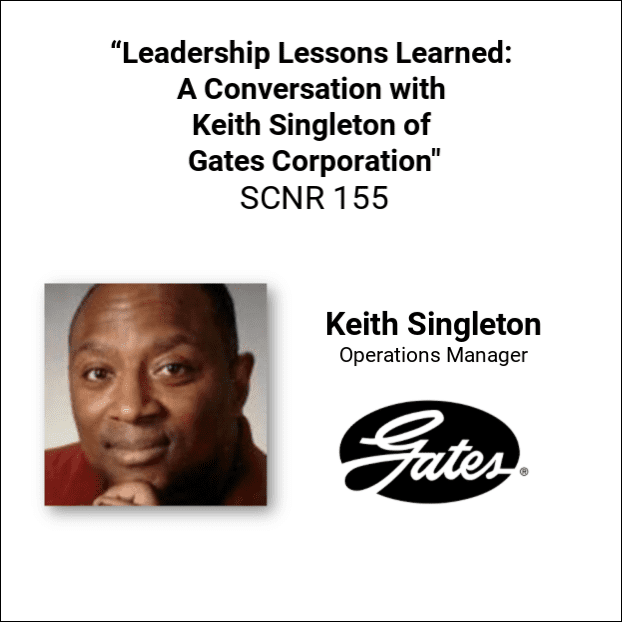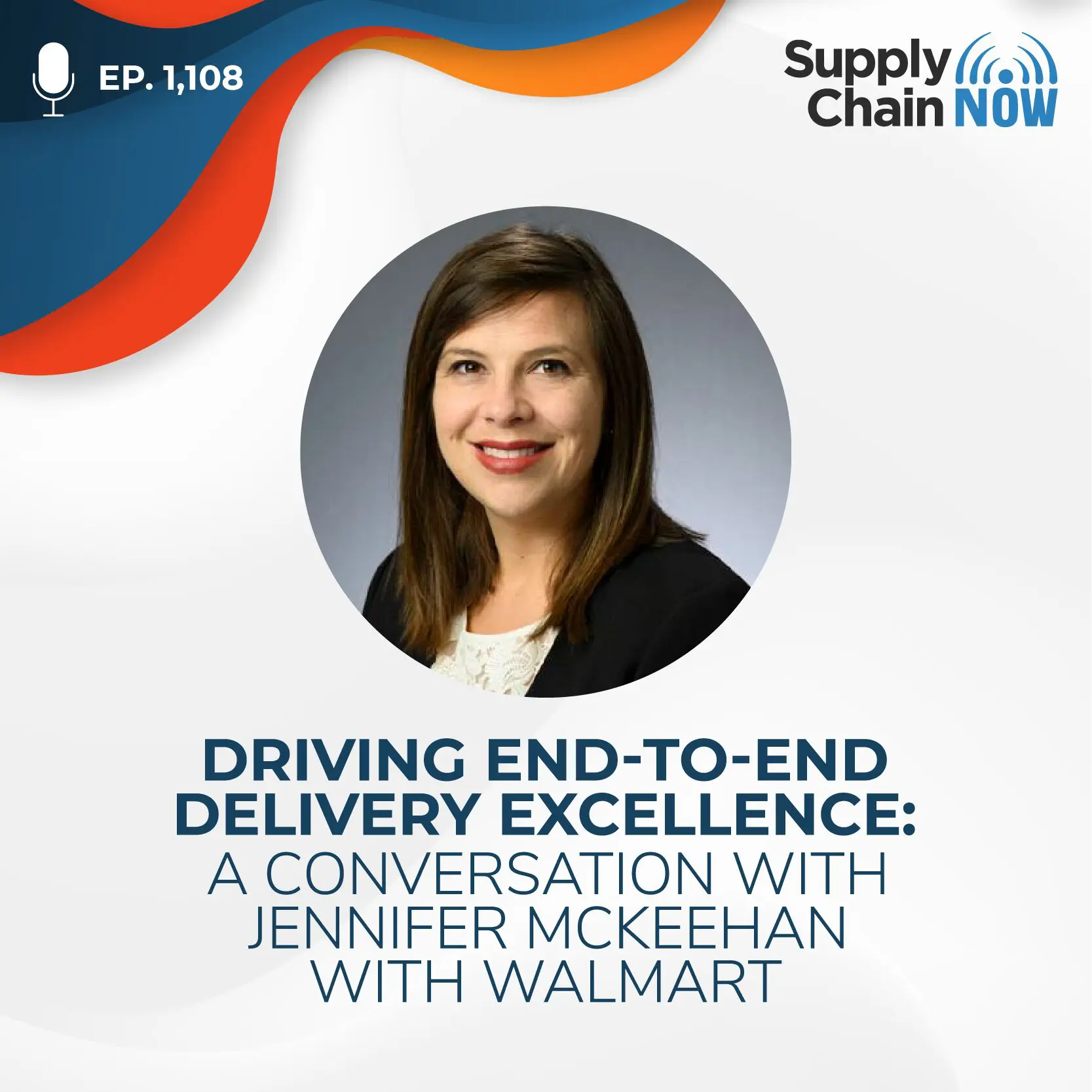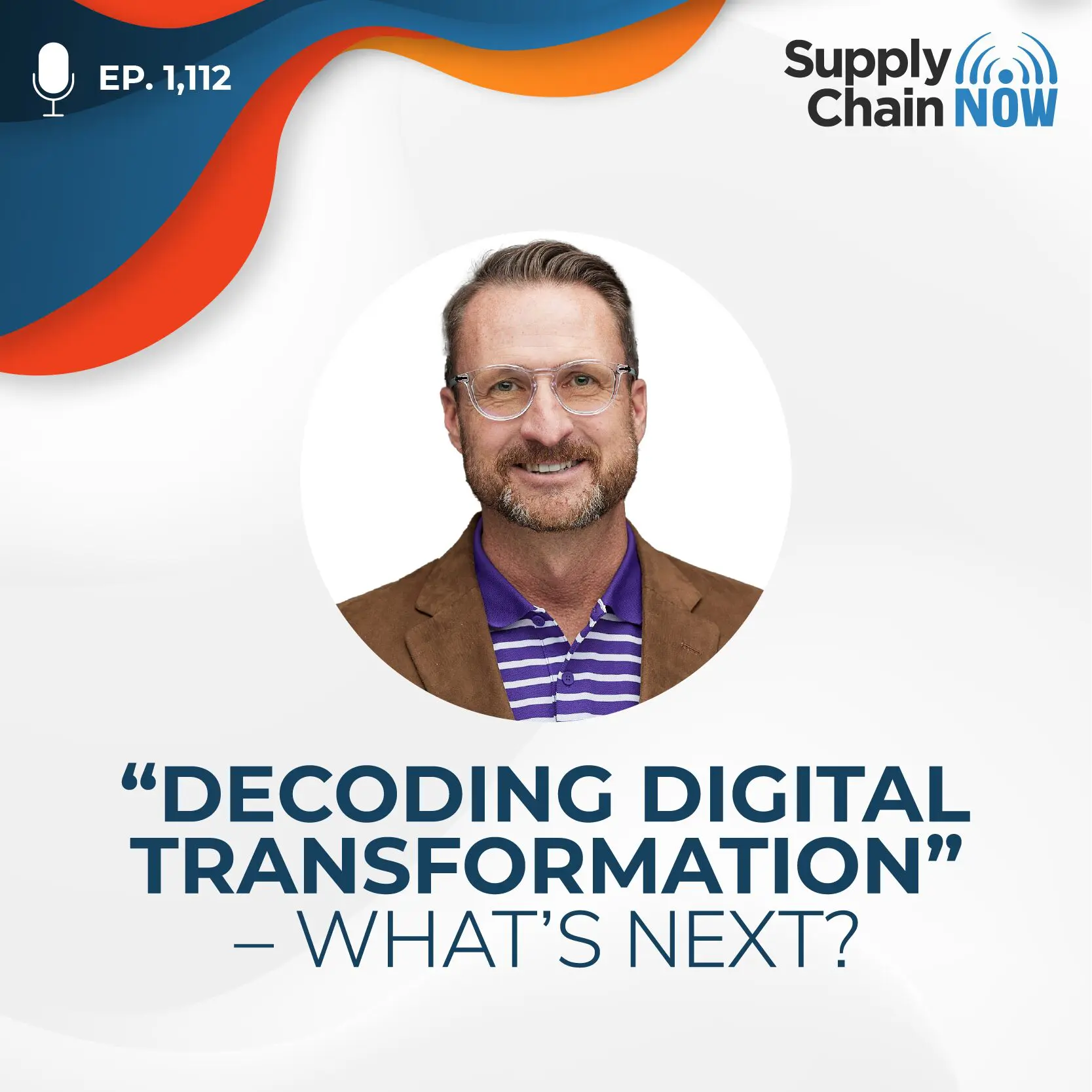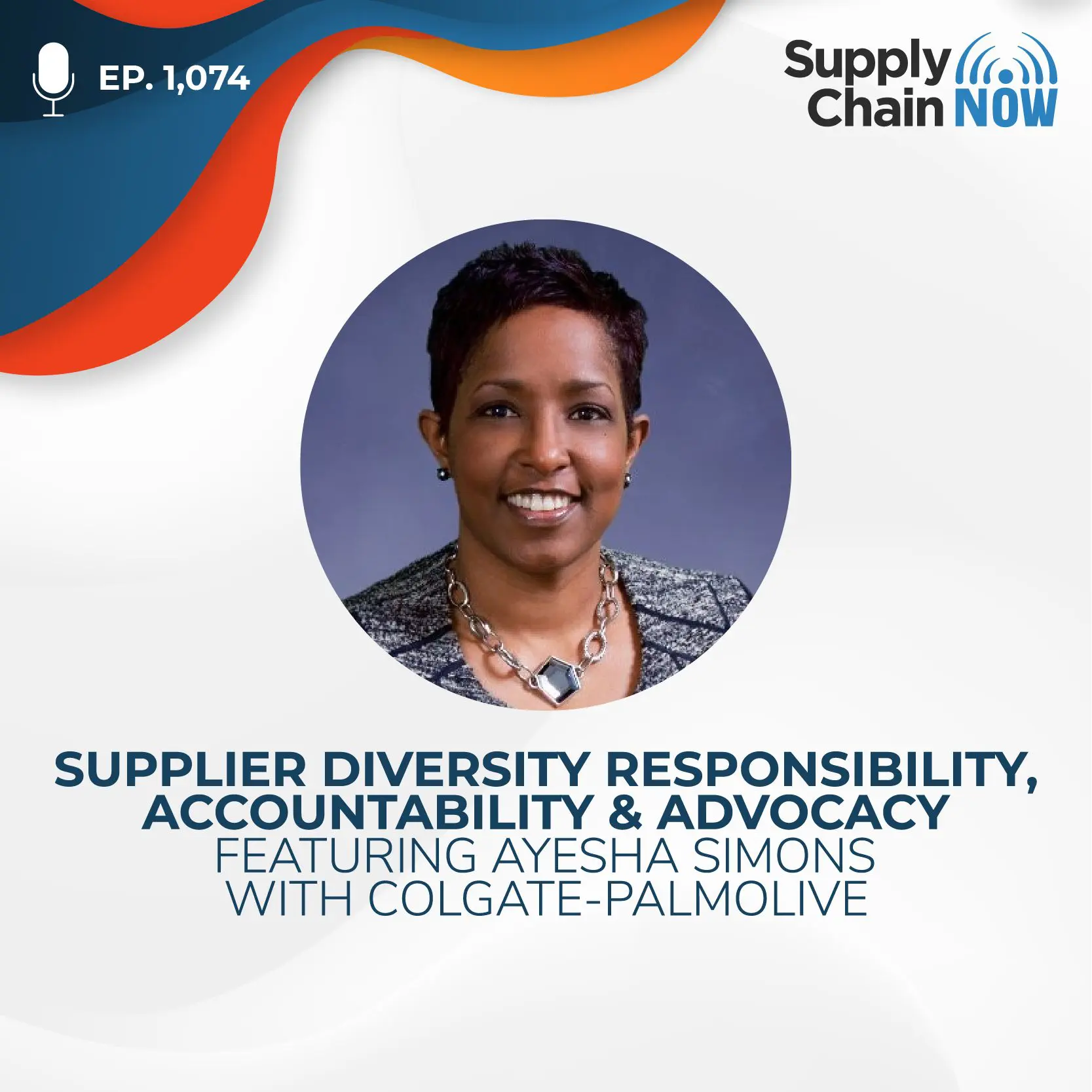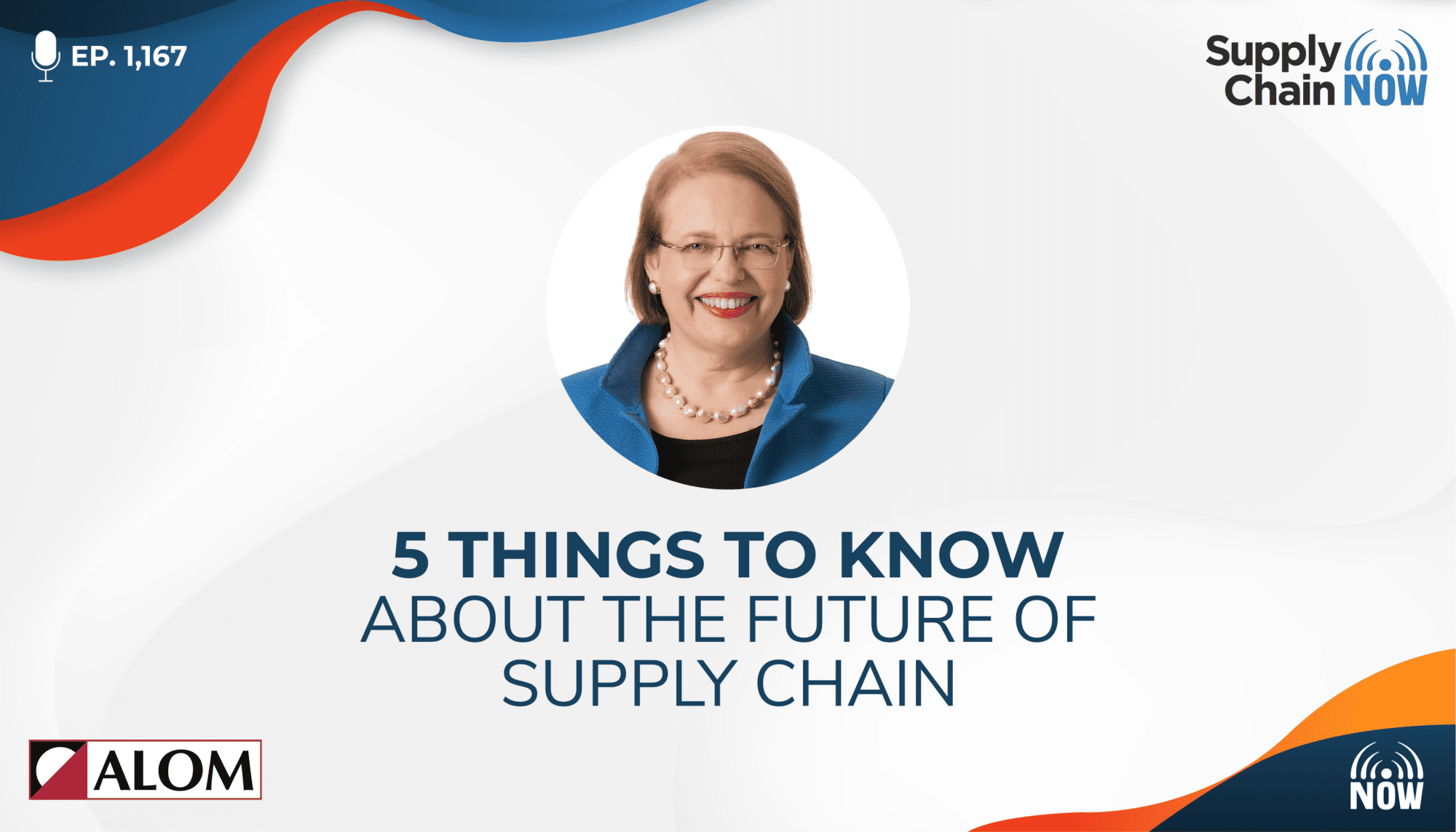
I believe ESG here to stay. I think supply chain has a responsibility to make sure people are treated right in our supply chains and of course that we are treating the planet right as well.
- Hannah Kain, President & CEO of ALOM
Episode Summary
As the world becomes more complex, global supply chains must keep pace. New complexities layer over old, and if the supply ecosystem is not carefully and strategically managed, it can become unstable to the point of collapse. For that reason, supply chain professionals should always be looking to the future, anticipating what is next and building a foundation strong enough to grow.
Hannah Kain is the President and CEO of ALOM, a global supply chain, contract packaging and fulfillment company. She is also a writer, speaker, and graduate level educator who has seen a lot of change during her time in supply chain, most especially the growing adversity to risk.
In this episode, Hannah returns to Supply Chain Now to join co-hosts Scott Luton and Greg White for a conversation about the future of supply chain:
– Why companies that plan to include nearsourcing need to start investing in local infrastructure well in advance of expecting to meet demand that way
– How supply chain technology has improved, and why it still has further to go
– The enormous impact that the supply chain profession can have around ESG and why that comes with a great responsibility
Episode Transcript
Intro/Outro (00:00:03):
Welcome to Supply Chain Now, the voice of global supply chain. Supply Chain Now focuses on the best in the business for our worldwide audience, the people, the technologies, the best practices, and today’s critical issues, the challenges and opportunities. Stay tuned to hear from those making global business happen right here on Supply Chain Now.
Scott Luton (00:00:33):
Hey, hey. Good morning, good afternoon, good evening, wherever you are. Scott Luton and Greg White here with you on Supply Chain Now. Welcome to today’s show. Gregory, how are we doing today?
Greg White (00:00:42):
Doing very well, Scott. Looking forward to this. We are, as you said earlier in the green room, we are coast to coast today, so.
Scott Luton (00:00:50):
I love that. Coast to coast. And we’re back with one of our faves as we’re going to be talking today with an inspiring business and supply chain leader. Doing big, big things out in the industry. In particular, Greg, we’re going back to the future. There’s no roads needed where we’re headed as we’re talking about five things you just got to know about the future of supply chain. Should be a good one, huh?
Greg White (00:01:13):
Yes, no question. Can’t wait. Can we say yet?
Scott Luton (00:01:16):
Please? Yes, I’ll give you the honor.
Greg White (00:01:18):
No, I want you to do it.
Scott Luton (00:01:20):
Well, as I mentioned, one of our faves, and one of our inspiring faves. If you all don’t leave here, folks, all of our listeners out there inspired and feeling good about where we’re going, where we’ve been, and a whole lot more, then you got to check your pulse. I want to introduce our featured guest here today, Hannah Kain, the one and only president and CEO, with ALOM.
Scott Luton (00:01:40):
Hannah, great to have you back. How you doing?
Hannah Kain (00:01:42):
Oh, I’m doing great. And it’s fantastic to be back with you Scott and Greg. And really looking forward to the discussion today. So, thank you for having me back and I really think we can make something fly here.
Scott Luton (00:01:56):
I agree, Greg. I agree. How about you?
Greg White (00:01:58):
Yes, well, we know what’s a little bit about what’s going on with supply chain on the East Coast. So, you’ll have to give us the remote West Coast report, Hannah. Report.
Hannah Kain (00:02:08):
You know, I’m global. I’m the one with all the frequent flyer miles. So, you know.
Greg White (00:02:14):
Every —
Scott Luton (00:02:14):
Right. Continent to continent. Coast to coast doesn’t cut it. Went to continent to continent —
Greg White (00:02:19):
Yes.
Scott Luton (00:02:19):
— with Hannah King.
Greg White (00:02:19):
That’s right.
Scott Luton (00:02:20):
OK. So, you know, it’s been a little while since you were with us last time. We really enjoyed, as I mentioned on the front end, I think you’ve been with us three or four times over the years, and it’s really cool. Really appreciate all that you do in the industry and beyond the cool things ALOM has been doing. You’re really a wonderful advocate for global supply chain.
Scott Luton (00:02:37):
So, I want to give the — our new listeners, since the last time you — you’ve been with us, Hannah, a chance to get to know you a little better, right? So hopefully folks can leave this knowing you almost as well as Greg and I do. Will there be a quiz maybe after today’s episode? But I want to start with, you know, Greg, we’ve got the two-decade rule around here, right?
Greg White (00:02:56):
Right. Never confess to more than two decades. It’s sufficient to say more than two decades, right?
Scott Luton (00:03:02):
Right, right. So, as I quantify this with Hannah, I’m going to say, hey, you’ve been in global supply chain and industry for quite some time. Highly technical term, quite some time. So, Hannah, when you reflect on that and we reflect on where we are now as an industry and a profession, and all the places we’ve been, and all we have overcome and broken through, what’s one thing that stands out to you as a lot different in terms of how we managed and lead supply chains now?
Hannah Kain (00:03:31):
Well, supply chain used to be all about putting the right product, the right place at the right time. And it still is, so, you know, to some extent that’s a constant. The difference is all the different — you could call it roadblocks or intricacies or challenges there is on the way to that. So, it used to be much, much simpler than it is now. We — and there’s a lot of reasons for that. You know, the demands signals are getting more geopolitics. And a lot of things I’m sure we will talk about later in the show.
Hannah Kain (00:04:04):
So, it’s much more complex. And one of the things that’s really fun is people now understand what supply chain is, right? Before the pandemic, nobody knew what supply chain was, right? And then you had the pandemic and you said you were in supply chain, and people would look at you and they would say, oh, it’s your fault that I can’t get whatever, right? And now people understand what supply chain is. And so that’s actually pretty fun. It makes it more fun to be in the business. And I’m very passionate about supply chain. So that’s been really fun to see that development.
Scott Luton (00:04:41):
You certainly are. And as we like to say with some of our handful of guests, man, if we could just connect you to the power infrastructure, we wouldn’t have to have — it would be lots of renewable energy. You could power cities by the day. But going back to what Hannah said there, Greg, I know we’re kindred spirits because you talk about that a lot. What’d you hear there, Greg, that resonates with you?
Greg White (00:05:03):
I mean, I think what we have to acknowledge is that supply chain didn’t — to Hannah’s point, it didn’t get more complex. We made it. Mostly, we consumers made it more complex by what we want because we want tomatoes out to season, or, you know — I mean, if you think about it, Europe, it started way back when they wanted spices from the far east and rum from the islands. And all of those things that have continually caused us to have to go overseas or to seek new sources or to have many, many handoffs in the supply chain that create that complexity.
Greg White (00:05:42):
And every one of those handoffs creates cost and risk, right? Because you could miss the handoff, and that either is going to cost you money or cost you your goods or, you know, or cost you time. So, I think that’s one of the things we have to acknowledge. Supply chains were really simple in, you know, at least in the Midwestern US when all you did was eat the cows you grew and the wheat that you grew and — right?
Greg White (00:06:09):
But in a lot of countries, other than the U.S., they have had had to go far afield for sources of not just unique goods but just general goods because the countries are small or they’re not — arid land is not good for farming. That sort of thing.
Hannah Kain (00:06:28):
So, what was it Ford said? They can have it any color as long as it’s black, right?
Scott Luton (00:06:33):
Right.
Greg White (00:06:33):
Right.
Hannah Kain (00:06:33):
Yes, yes.
Scott Luton (00:06:34):
Right, yes.
Greg White (00:06:34):
If only we could have held onto that, right?
Scott Luton (00:06:38):
Yes.
Hannah Kain (00:06:38):
No, I like the challenge. But you know, I want to latch onto another thing Greg said that was really interesting, and maybe that’s the main change the last couple of years is the risk adversity we are seeing, right? So many corporations and many people have gotten more risk averse after the pandemic. And I don’t know if there are probably some psychologists out there studying, you know, did we get more afraid of living and afraid of things?
Hannah Kain (00:07:08):
But I can see a big shift in the risk adversity. And I can see it in our legal contracts, right? You know, I mean, they’re two or three times longer than they used to be pre-pandemic, right? And so, we are all thinking much more about risk. And supply chain is — there’s a physical process, a technology process, and financial process. But’s especially in the physical process, there’s risk. I mean, we know it.
Hannah Kain (00:07:34):
You produce things, you move things, there’s risk. And there’s risk of things going really wrong, and there are things going a little bit wrong. And we cannot totally eliminate risk. And so, I think that’s one of the struggles we are having now in supply chain is this thing about minimizing and medicating risk. How do you do that?
Scott Luton (00:07:54):
Well, a little bit of risk is a good thing. It keeps the juices going, right? I would also add the — our — those longer and longer contracts, Greg and Hannah, are good for somebody. The attorneys out there, I think they had something to do with, I don’t know.
Scott Luton (00:08:06):
All right. I want to ask one quick follow-up question because you called it out, in terms of your passion. And of course, Greg and I have seen it in-person conversations with you, remote conversations, you name it. It’s just inherent to you, kind of like what risk is, inherent with supply chain. What is one thing you point — what — where’s that passion come from for how we do supply chain, Hannah? Where did that start for you?
Hannah Kain (00:08:29):
For me, there’s a fascination with physical products, clearly. But then there’s also a fascination with technology, right? So, I’m based in Silicon Valley and I’m here for a reason because of new thinking around how to use technology and that entire entrepreneurial spirit. And it was one of the things where when I started ALOM more than 26 years ago — oh, I was not supposed to say that. But I started a long time ago.
Scott Luton (00:08:56):
Yes.
Hannah Kain (00:08:57):
But can we combine technology with the physical world? And can we create that visibility? And can we make those two things mix? And that has been really fascinating for me to be able to go through all these many years of more tools and more abilities and being at the forefront of how do we use technology to make the supply chain hum. And how do we use the supply chain to make technology hum, right?
Hannah Kain (00:09:29):
There’s a dual, dual thing. And there were other things I envisioned back more than two decades ago, but we can talk about that later. But then I think that is really — it’s an intellectual challenge, but it’s also a tactical day-to-day challenge to work through that. And of course, we already started talking about complexity, and I think we’ll talk more about it, but really complexity is a key element that on some — that on the one hand gives me a little bit pause, but it also makes me excited because every time there’s complexity, there’s a simple solution to it.
Scott Luton (00:10:08):
That’s right. OK. So, I love how she said, Greg, I’ll get you to weigh in here before we get one of the personality aspect to Hannah Kain. She was talking about how supply chain makes technology hum and the vice versa. Technology makes — supply chain makes technology hum. So, our episode title “Rattling Hum” by the legendary U2 album from a couple decades ago. But, Greg, weigh in on what you heard there before we move forward.
Greg White (00:10:33):
Yes. Well, I mean, I think the two, sort of, feed one another. I mean, you know that I started as a practitioner, then a service provider, and a technology provider, and now I’m doing both, right? So, it — it’s a really interesting confluence of supply chain and technology. And one of the things I — that it makes me think about Hannah, is how laggard we have been in supply chain when so much of what we do is, as we’ve talked about already so complex. Virtually impossible for a single or even a group of collectively gold humans to figure out that’s gold with the same gold, not gold as an actual gold singer.
Greg White (00:11:20):
But I think that’s one of the things that I think we need to embrace as well, is we need to embrace. And we need to embrace it more quickly that the impact that technology can have, should have, and the benefit that it brings to not just supply chain practitioners, but to those who ultimately drive the supply chain, those who consume the goods that are produced and delivered, right? So, that may be an actual consumer or it might be a company or an individual on a project. It could be anything. But I think we need to make sure that we recognize that is our goal. One goal, supply chain, deliver to the end user, right?
Scott Luton (00:12:00):
That’s right. OK. Before we dive in. Man, you are chopping it a bit, are you? Laying down some golden brilliance. I want to ask one more quick question of Hannah. Hannah, as we’ve discussed previously, you love all things travel and culinary or food related. And I want to ask you before we move on and check out this five-part list of things you folks got to know about the future of supply chain, weigh in really quick, what’s one of your favorite cities to visit and eat in, Hannah?
Hannah Kain (00:12:29):
Oh, come on. There’s nothing quick when we talk about travel and food. So, listen, I of course love cooked meat, right? Because I’m from Denmark, and you know, it’s got the combination of being a true foodie town and of course having my sort of more traditional grown up with type food. So, that’s always fantastic. But, you know, there’s so many good places to get food.
Hannah Kain (00:12:59):
So, Paris, London, of course. But in the U.S., so-so. You know, I travelled for food and I love the variety. But Scott, I just traveled not for food. I was just in Africa and, you know, on Safari and that was fantastic. It was just a real time of a lifetime. So, it was — my husband’s and my first Safari. So, we’ve been three times before and we really have the Safari bond. So, highly recommended. We got great African food, but we didn’t go for the food, we went for the nature. So, highly recommended.
Scott Luton (00:13:35):
Oh, I love that.
Greg White (00:13:36):
Awesome.
Scott Luton (00:13:36):
OK. Greg, Copenhagen, Paris, London, Africa, to U.S. Out of that — out of the first, let’s call the Copenhagen, Paris, and London, your favorite Greg out of those three?
Greg White (00:13:48):
Paris. I love Copenhagen. My people are Danish also. So, I’m — I have a special place in my heart for Denmark. But man, how do you top Paris? There are so many types of food there, yes. What I was thinking about, Scott, I just spent the summer in Switzerland — a month in the — of the summer in Switzerland. And I went to two very good restaurants in Zurich. One was a two-star — two Michelin star restaurant.
Greg White (00:14:16):
It was outstanding. A great experience and great food called Vetter. And then I saved $2,600 on the next restaurant, this place called Didis Frieden, which was — the owner was an outdoorsman, a chef and owner was an outdoorsman. So, whatever he had gotten the day before was on the menu. And he had a menu of sprees every day. And that was unbelievable food, especially for the cost of it. It was — that was a really interesting experience.
Greg White (00:14:49):
You’d expect great food in one of the most expensive cities in the world, right? And, you know, full of bankers, although, you know, one of those banks was not doing that great right when I got there. So, there were a lot of people looking for other banking jobs but which left the restaurants open for just us common tourists. So, we’re able to experience stuff like free.
Scott Luton (00:15:08):
Love it. All right.
Greg White (00:15:09):
That was my Safari, Hannah.
Scott Luton (00:15:11):
Oh man.
Hannah Kain (00:15:12):
Fantastic.
Greg White (00:15:12):
I’m touring [phonetic] around Switzerland.
Hannah Kain (00:15:14):
Yes. And then I have got an Asia trip planned. So, lots of good food in Asia also. So, you know, so we’ll talk about that next time, Scott.
Scott Luton (00:15:23):
Yes, we will. With pictures, Hannah and Greg with pictures. OK. So, now that we’ve kind of had a brief departure, a little bit of an appetizer there. I want to get back into this — sorry. Get back into this list.
Hannah Kain (00:15:37):
The tasting menu.
Scott Luton (00:15:38):
Yes. A little tasting menu. Yes, Hannah. So, five things to know about the future of supply chain is going to be our center plate theme here today. We’re going to walk through these one by one. And Hannah, we’ve already touched on complexity a little bit, but expound on that. Why is that, in your view, one of the things that folks got to keep front and center when it comes to the future of supply chain?
Hannah Kain (00:16:01):
So, I think generally our world is getting more and more complex, right? And so, part of the problem with supply chain is it’s — there’s always been a certain level of complexity into it. Though again, back when things were done locally on the farmers grave pointed out before but was not — it was not nearly as complex. But today we are international, right? So, that’s I thing we built into the supply chains with that entire globalization.
Hannah Kain (00:16:31):
And then what came with that was, of course, the entirety of politics. And what we are seeing now is that is really pretty close to imploding, right? It’s really giving everybody in supply chain a lot of heartache. Starting with where do the raw materials come from? Concentrated in China for a large — to a large extent. And then you have the entire problem with, OK, what is the US trade relationship to China?
Hannah Kain (00:17:01):
And right where we right now are in a trade war. And it’s really should impact everybody’s thinking, right? We are still going through the Brexit, the Brexit is not said and done. Then we’ve got a war in Ukraine. We’ve got lots of unrest in Africa and in other piece — parts of the world, right? Including Latin America with a lot of instability. And so, when you map out where products and raw materials are coming from, you’ll see that the entire supply chain is global. And that geopolitics in itself creates a lot of complexity.
Hannah Kain (00:17:40):
And then you’ve got added regulations. So, if you think about that, and we can talk ESG, we are going to talk ESG in a moment, I’m sure. But when you look at that entire, regulatory burden that’s coming on, not just in the ESG space but also in and up of other spaces, it’s really creating quite a bit of complexity.
Hannah Kain (00:18:04):
And then you are looking at all the legal issues that are included in product compliance, but also in supply chain compliance, right? Because if you look at compliance, it used to be that you have a thing that you had produced and then you could say, oh, this thing is compliant to X or not. But today, we are saying, well, we want to understand how this was produced. Where was it produced? Well, under which circumstances? And that adds a lot of requirements so that you can trace every single thing in the supply chain. Very, very complex to do.
Hannah Kain (00:18:43):
So, I’m really torn because I hate the complexity in the sense that it really makes it much more difficult. And I love the complexity because you solve the complexity. You really solve big problems. And that’s what I love to do is solve big problems for our customers. So, I’m a little bit of a dual personality, but anybody who doesn’t pay attention to complexity is going to be cornered [phonetic].
Scott Luton (00:19:06):
Yes, Greg, we’ll get your weigh in here. But one of the things that came — come to my mind when Hannah was walking through that is yes, we have created tons of complexity on our own, you know, by our own hands. But a lot of things that Hannah has walked us through is complexity that is outside of our control. That supply chain leaders and practitioners still have to muscle through. Your thoughts so, Greg.
Greg White (00:19:27):
Yes, some of it is complexity, frankly, that we should have had decades or even centuries ago, right? A lot of the simplicity in supply chain and industry is nefarious, frankly. I mean, dumping waste into rivers and oceans rather than processing it properly, being wasteful with natural resources and byproducts and offcastings and all of that sort of thing. Those are all things that no — only regulation, which I happen to agree with, has brought the appropriate amount of complexity regarding those kinds of things when you think about ESG.
Greg White (00:20:05):
But, yes, there is plenty that is being mandated and some of it necessarily. So, I mean, you know, human slavery, trafficking, all of that sort of thing, those are things that never should have happened, right? We thought we eradicated that 160 years ago in America, right? And when it’s a very real and proximate problem for certain countries around the world, you know, those sorts of things are manifest and it’s, you know, it’s time for us to address them.
Greg White (00:20:41):
And the truth is, I think about ESG, Hannah, quite a bit. And I think about how it’s kind of a political football in America, but it’s not in Europe. So, the fact that it is now mandated that you not — or you verify, as you talked about, you verify that, you’re not using human slavery or that you are accountable for the carbon footprint of your entire supply chain. Those — your company and all of those companies that you do business with or that do business with you through and other company.
Greg White (00:21:15):
Whether we in America choose to embrace that and the regulations that the SEC has created, it’s immaterial at this point, because Europe is doing it. Germany is very, very well as Germany is, right? Germany is very, very dogmatic and — about these things. And Germany is the biggest trading center in Europe.
Hannah Kain (00:21:37):
Well, I think that there’s a much stronger driver than that, Greg. And that is public opinion, right? And so, I think that there are two drivers, right? So, we are many who run companies or working companies — and/or working companies, I should say, who feel strongly about these issues, right? And so, I think that’s a driver of itself. I think the — and I’m not saying it doesn’t exist, but you know the company owner standing with the pixie kind [phonetic] not caring about the environment, that’s a thing of the past, right?
Greg White (00:22:13):
Right.
Hannah Kain (00:22:13):
Overall, I mean, I’m not saying that they’re nobody out there. But you know, I think most people actually care quite a bit. And then there’s —
Greg White (00:22:22):
Agreed.
Hannah Kain (00:22:22):
— then there’s a public opinion, right? So, Germany is certainly driving it from a regulatory standpoint, but the pressure and the pressure from the boards and board members, and — it definitely people want to be compliant.
Scott Luton (00:22:37):
Yes. Speaking — OK. So, that’s a good — we’re going to move to our next one. And we’re also going to circle back to ESG in a second. But you said people want to be compliant there. Can — I would just argue that I bet the compliance departments are getting more calls than they’ve ever gotten. And then they’re — in this entire recent decades, you know, the cool kids all of a sudden because folks more and more are finally see seeing them for the critical resources that they are. And Greg, we — of course, we’ve had conversations with compliance pros on previous shows.
Scott Luton (00:23:08):
OK. So, that’s the first. So, complexity is one of the — so many different layers and levels is the first on a list of five things to know about the future of supply chain. Number two, Hannah and Greg, is near sourcing. What’s new is — what’s old, is new again, if I cannot botch that phrase. So, talk to us, Hannah, about near sourcing.
Hannah Kain (00:23:30):
Well, thank you for keeping us on track here because once Greg and I get started, we can talk about this.
Scott Luton (00:23:36):
Very true. very true.
Hannah Kain (00:23:38):
Yes. So, the new trade figures came out and you can really see the — that companies are moving away from China only manufacturing strategy. And I think there are two things going — many, many companies are going to a China plus where they’re going to another East Asian country, but many companies are also trying to near source and locate production and their distribution closer to the markets.
Hannah Kain (00:24:06):
And I think overall that’s a fantastic trend also because of the ESG impact of that, and putting the jobs and the focus of where the market is. So, doing business with the old market, right? And we are certainly seeing that trend growing. The trade figure support, that trend is growing. It’s a long haul, right? And so, as most companies really started this before Covid, before the pandemic, and then they got a big wakeup call during the pandemic, right? I think that it’s a trend.
Hannah Kain (00:24:44):
We are going to see this over the next five, 10 years. But it’s a long haul, right? Because you need to go back in the supply chain. You need to build the factories. You need — so, it’s a multi-year or decade. And we can talk again in 2023 — ’33, right?
Scott Luton (00:25:05):
Right.
Hannah Kain (00:25:05):
2033 about this, because it’s a long haul to get the — to switch — make those type of switches. But I think it’s a trend we all need to look at. We have between 70 and 80% of our suppliers within 20 — 20 miles of one of our facilities. And so, this is a decision we have made to try to near source as much as we can. So — and I think that many corporations are looking at near sourcing as a really important part of their supply chain strategy.
Scott Luton (00:25:39):
Agreed. Lots of winners. Vietnam, Mexico, India, of course, Apple’s making big strides there. All kinds of winners benefiting from near sourcing, you name it. Getting closer as you put it, Hannah, putting the jobs in the focus where the market is, getting closer to your customers, and taking some risk out of your global supply chain. Greg, when you think of these things and what Hannah touched on there, especially related to near sourcing your thoughts.
Greg White (00:26:04):
Yes. Well, diplomatically said, Hannah, as you should, as a prudent business person, I don’t have that constraint. I can shield Hannah from having to say this but China’s a bad actor. It’s one of the worst countries on the planet. Their government is corrupt and manipulative. And they’re friend to no one, basically. And Africa has realized that, by the way, and is rejecting the billions and billions, maybe trillions in loans that they have given. Many of those companies are giving that money back because they didn’t like the strings that came along with that.
Greg White (00:26:42):
But the truth is the supply chain goes through China right now. And when we talk about risk, forget about complexity, it’s very complex. But when we talk about risk, the most rogue nation running your supply chain through the most rogue nation on the planet is very dangerous.
Greg White (00:27:01):
We saw that they would happily and broadly manipulate the supply chain during Covid to put strains on other supply chains by not returning or not releasing containers, right, or not releasing shipments that were — or shipments of full containers. And they flex their muscles repeatedly every time and go back to ESG every time they are called out in a, gee, whatever meeting or a Davos meeting, something happens because of that. And the goods cut off to those people who have called them out suddenly can’t be had out of China.
Greg White (00:27:38):
So, there’s no way to deny that it’s time for us to face it and do something about it. The reality of it is that nearshoring is where we started, as you said, Scott, you sort of alluded to that before. And the main reason we went to China, and really other countries, was because of workforce and cost.
Greg White (00:27:59):
But I think at this point, the risk outweighs the cost. But at the same time, the consumer and the companies that choose to source outside of China are going to have to realize a couple of things. One, they may be cutting themselves off from selling into China by doing that, which is or will soon be the largest economy on the planet. And also the economics of that are irrefutable, right? There is not enough — there’s not enough manpower in the cumulative planet to replace the production capacity that China has because China not only has the largest population on the earth, but they’ve also got incredible automation.
Greg White (00:28:41):
So, we have to acknowledge that things will get more expensive. Personally, I think it’s worth it. So, I — you know, I think that we have to recognize that this is a big, big change near sourcing, but it’s a very, very necessary one. And it’s one of those things where, you know, much like we talked about with supply chain practices that have caused complexity, it’s one that we should pay for because it comes down to the ability to safely balance the power of the planet.
Hannah Kain (00:29:11):
So, I think one of the interesting things that Greg touched on here is the ethics that’s built into supply chain, right? Because — and I won’t comment on China government. But —
Greg White (00:29:23):
Please don’t. I’m trying to clear you from doing that.
Hannah Kain (00:29:24):
Thank you, Greg. But then again, I look around me and I’m like, OK, if we say company — nations need to be ethical, democratical, they need to not suppress population groups. They need to be aligned with our values, generally. It really narrows down who we can do business with, right?
Scott Luton (00:29:46):
Right.
Hannah Kain (00:29:46):
And this puts an ethical burden on us in supply chain that we need to think about. OK, so who do we do business with and who do we help or not help in that connection, right? So, we were talking about what has changed in supply chain? Those type of considerations are relatively new. I’m not saying that they are entirely didn’t exist a couple of decades ago, but they’re relatively knew where we are thinking more deeply about what — who do we support directly or indirectly?
Hannah Kain (00:30:22):
And so — I mean, most companies have cut Russia out of their supply chain, both on the demand and the supply side entirely, right? Now — so, there’s a lot of other countries where one could question whether it’s, ethical to do business. So, near sourcing is much easier.
Scott Luton (00:30:44):
It — thank you, Hannah. It sure is. But I really appreciate what both of you all shared there. And the frankness, unfortunately, we could be heading to a new chapter that makes the current chapter look like a walk through the lilies. And so, I do — and I’m speaking to the — what’s taking place in the Pacific and some of the alliances and some of the exerting of force and some of the spillover effect that could take place that would significantly impact global supply chains. And if we think it’s challenging now, goodness gracious, cooler heads have got to prevail.
Scott Luton (00:31:16):
But setting that aside, what’s far easier, Hannah, to your point. So, complexity was the first of the five things to know about the future of supply chain near sourcing, and so many different forms that you — both of you touched on is number two. Number three is going to also going to be a more — even more universal topic, and that’s technology. So Hannah, talk to us about technology in the future of supply chain.
Hannah Kain (00:31:38):
Yes, I think when we last talked on Supply Chain Now, Scott, we were talking about technology really improving in supply chain but still not really solving all the problems we need to solve in supply chain. And that’s still the case. One silver lining of the pandemic was everybody understood supply chain, it’s complex. And a lot of VC funding actually into supply chain technology companies.
Hannah Kain (00:32:08):
So, great, right? That’s going to help us five to 10 years from now, right? Because we in supply chain are a little bit conservative. We don’t put in the new crazy thing because we know we need to deliver tomorrow and if that technology goes down, it’s a bad pay, right? Toyota just had a factory outage in Japan. One day down, one day $600 million lost, right? So, we are conservative with which systems we put in.
Hannah Kain (00:32:37):
But what it boils down to is we need to be able to manage that complexity. And a lot of people are talking about A.I. and what is the role of A.I. can use in their industry. And I think that there’s a space for A.I. and supply chain with taking all that unstructured data that supply chain professionals have in their head and making it much more structured, right?
Hannah Kain (00:33:01):
I think A.I. can do two things for us. It can take all that unstructured data and make it structured and make it actionable. And it can also help us a lot on the demand side, right? So, because that’s one of the things that supply chain professionals are struggling with right now, is the demand side. So, technology is still — I mean, visibility is, of course, a key thing and everybody is focused on the visibility.
Hannah Kain (00:33:26):
But predictability is the real, you know, holy grail, right? Being able to say what will happen in the future or what will likely happen? How long time is it actually going to get it to my dock? How long time is it actually going to sell throughout in retail? Those type of things, right? And again, positioning things the correct way.
Hannah Kain (00:33:51):
So, I’m still very bullish [phonetic] on technology coming in and solving the problems that we, right now, are struggling with on a manual basis and on an exception basis and making that harm a lot. And taking all the — this unstructured data that we are not — right now is not in the system and all the variability in the data, right? And making that variability part of the decision making, right?
Hannah Kain (00:34:22):
So, I mean, my favorite example was variability of data. People say, what does that mean? It means, you have your ERP system. You put in, oh, my lead time on this item is 10 days. Well, you know, we learned during the pandemic it might be 10 days or it might be 10 months, right? And can you make that much more likely and day to day, right? So, it’s a post-strike, it’s a draft brought in the Panama Canal. And now it may be sitting there waiting to get through, and all those types of things that supply chain professionals figure out on a real-time basis based on reading the news and knowing what the route most likely is and stuff like that.
Scott Luton (00:35:07):
Yes. Having been there and done it. Greg, Hannah just covered a lot of ground there. I can’t wait to hear your take on what she shared and also how technology factors in as — and is building the future of supply chain.
Greg White (00:35:22):
Yes, well, — all of this doesn’t it seem like it all goes back to the complexity? It either contributes to the complexity or it’s necessary because of the complexity. And that is where technology plays. It is absolutely necessary because of the complexity.
Greg White (00:35:35):
And in your opening statement, Hannah, you talked about the difficulty of addressing demand, right? And then all of the complexity. Here’s my favorite term, Hannah, I hope you use this. It’s combinatorial analytics. Win what you have is not a chain at all, right? A supply chain is not a chain at all. It’s really an ecosystem. And you have the butterfly effect that could impact something over here. You have to be able to, and you can in a lot of cases, figure that out. You talked about unstructured data. Unstructured data can feed better demand signals. It can help assess risk profiles based on this action. A geopolitical impact in one country or a weather impact in a region or at a plant or at a port or at a store.
Greg White (00:36:24):
So, all of those things are relevant. And just imagine 140 million variables, just areas of variability in kind of the average supply chain, and then try to figure that out with a human brain. I love the idea of two things. One, the mundane, the dark, dirty, dangerous, and dull. Those jobs can and should and will in the future be done by technology. And that will be a relatively near future because people are staying away from those jobs in warehouses and fulfillment centers and factories in droves.
Greg White (00:36:59):
The next generations, X or Y and Z, they won’t even consider those jobs, the vast majority of them. So they’ll have to be automated. And then you’ve got their tech native or digital native nature where they expect computers to do computer things. And if a computer would be best to figure it out, have a computer figure it out. Let humans do those things that we do, as you mentioned, Hannah, exception management. Critical thinking under a significant lack of data at high stakes, right?
Greg White (00:37:33):
What we have is not a cost saving, or a speed generating, or even a reliability creating practice in supply chain. We have a risk balancing exercise wherein all of those things, ethics, as you mentioned, where ethics and speed and reliability and costs are all have to be balanced and are all impacted by literally 140 million different variables in the kind of average supply chain.
Greg White (00:38:02):
So, only technology can do that. And what technology frees us humans to do is this kind of stuff, higher thinking, having these discussions, having visionary moments to start to think about, hey, what if we did this? How could we change that? Or to address those crises or catastrophes or challenges or opportunities that are presented that don’t have enough data for technology to solve the problem.
Hannah Kain (00:38:30):
I love that.
Greg White (00:38:31):
It’s a great opportunity.
Hannah Kain (00:38:33):
I love that. And then there’s of course, as I mentioned earlier, this thing about how supply chain helps technology, right? Because we have technology in almost all, and the supply chain can really help customize and support that part of the entire demand where you get the product and it’s already configured. It’s already set up for you. It’s already customized for you. And it’s just plug and play, right?
Hannah Kain (00:38:59):
And, you know, that’s another thing I’m very excited about this entire IoT. We have some IoT customers that it’s really exciting, right? Where you can get data and help the consumers based on the data, but also in the medical world, right? So, medical is one of the segments we are working in. And so, you get the technology into the device and you can do a lot of things that you wouldn’t believe — have believed that two decades ago that we aren’t allowed to talk about, Scott, right, you know. So, that’s where I see supply chain can really shine in those areas. I mean, there certainly other areas, right? Like —
Scott Luton (00:39:39):
Absolutely.
Hannah Kain (00:39:39):
— food and stuff. But yes, technology is really big.
Scott Luton (00:39:43):
140 million variables.
Hannah Kain (00:39:45):
Yes.
Scott Luton (00:39:45):
Is that all? In some weeks it feels like it’s 140 billion, doesn’t it?
Greg White (00:39:48):
I mean, if you thought about it long enough, you might be able to come up with 141 million.
Scott Luton (00:39:55):
That’s a lot.
Greg White (00:39:56):
But I mean, think about it. When the wind shifts, that can change a supply chain, right?
Scott Luton (00:40:01):
Excellent point. Excellent point.
Greg White (00:40:03):
So, I mean, there are so many things that are impactful. There are only so many of them that you can predict. But you can predict a vast number of them and reduce your risk by substantial amount.
Scott Luton (00:40:15):
That’s right.
Hannah Kain (00:40:16):
And also use it to create less fragile supply chains, right?
Scott Luton (00:40:21):
Yes.
Hannah Kain (00:40:21):
Because it’s part of the problem with the complexity and on those type of things is we’ve created them so fragile that it doesn’t take anything before we need to interfere. So, understanding the supply chain. And people are working on that right now because they don’t have a decent supply chain map, right? They don’t understand where the raw materials are coming from and what does it do to them and stuff.
Scott Luton (00:40:46):
Excellent point. Lots of stuff in the blind spot. All right. So, we got to — for the sake of time, this might be a three parter [phonetic] if we don’t get going. Let’s see here. Complexity, near sourcing, technology, are three — one, two, three, on our top five list.
Scott Luton (00:40:59):
ESG, we’ve touched on this throughout, and this is a big common thread through a lot of themes that we’re talking about. Because Hannah, as you and Greg both mentioned, I believe, the public demands it. Investors demand it. Consumers demand it. Practitioners — your talent in an organization are demanding more and more that companies and business leaders do the right thing. So, Hannah, talk to us why is ESG a big part of the future of supply chain?
Hannah Kain (00:41:26):
Well, I think as supply chain practitioners, we have a big responsibility in the ESG area. We impact the — especially seeing from a sustainability standpoint, our impact is much bigger than people who do and lot of other functions in our society. And so, with that comes to responsibility. And what I see, not a lot, but I still see that people thinking this entire ESG thing is going to blow over, let me just hunker down.
Hannah Kain (00:41:58):
And the reason I’m putting ESG on one of the top five things to watch is I believe it’s here to stay, and I think it should be here to stay. I think we have a responsibility. We have a responsibility board team from a social standpoint. Making sure that people are treated right in our supply chain. And of course, also that we are treating the planet right. And we have a huge ability to impact that.
Hannah Kain (00:42:25):
And so, we have a very extensive ESG program, and we have our ESG report on our website in case you are interested in reading more about that. But part of the ESG commitment is, of course, sitting with our customers and seeing how we can improve their supply chain. And for every — every customer has opportunities to improve their supply chain.
Hannah Kain (00:42:52):
We have such a big physical impact on the world, right? So — and I think the most important thing is to eliminate waste, right? You know, not creating things that is not needed. If it’s needed, we need to create it and we need to get it out there. If it’s not needed, don’t create it, right? Get it out to the consumer in the most sustainable manner and, you know, eliminate packaging. And so, it’s — that entire thinking needs to permeate organizations. So, it’s part of our — one of our core values and we really work with our customers to live that.
Scott Luton (00:43:30):
Yes. And waste in all of its forms, because there’s so many different forms of waste. Greg, ESG, clearly Hannah is, as she put it, some folks are out there waiting for it to blow over and it’s not going to blow over. And Hannah says, it shouldn’t blow over. So, Greg, your thoughts about ESG?
Greg White (00:43:46):
It’s not going to blow over because you know what I said earlier, even if we try to sweep it under the rug in the States, it’s too late. The rest of the world — well, not the rest of the world, but Europe and Asia, right? Other than China are — they’re very active in compelling ESG compliance.
Greg White (00:44:06):
So, a company’s supply chain produces 90% of the carbon emissions of the enterprise, according to the U.S. EPA. 90%, right? So, it’s funny, I talk about this quite a bit, and I was talking to an executive high up at a CPG company, and they said, so you’re telling me that all that we did for our corporate office to make it have a smaller carbon footprint is wasted? All of that was wasted? I said, not all of it. Only 90% of it. You should be focusing on your supply chain.
Greg White (00:44:43):
But that — I mean, but — think about that. We’re talking about trucks and ships and factories and warehouses that run with the doors open most of the day. We’re talking about refrigeration and air conditioning. We’re talking about heat and electrical, all of those things. So, yes, of course, the supply chain contributes a ton to carbon emissions, right?
Greg White (00:45:06):
I mean, you could argue whether it’s 77 or 90, does it matter? It’s the vast, vast majority. I mean, you know, that — that’s only because there are other statistics out there besides the EPA, right? But it doesn’t matter. It’s a vast, vast majority of emissions are caused by that. Also, human slavery, trafficking, all of those things are heavily impacted by the supply chain.
Greg White (00:45:33):
Now, you know, in talking to others at some of these CPG companies and retail companies, they’re concerned about PCBs and all of those things. All the pollutants that are created from plastics and various and sundry. Other things that go into the products that we, we in the United States at least, use every day, right? Some of those things are illegal in other countries. But —
Hannah Kain (00:45:57):
Yes. So, I think where I get that is both what goes into it, but also what then comes out of it, right? So, we do —
Greg White (00:46:04):
Yes.
Hannah Kain (00:46:04):
— quite a bit of products that are used by kids, right? And I mean, you really need to — those products to be safe or in the medical, right? I mean, you don’t want to use things on your body or in your body that’s not safe. So, I think that entire thinking about how can we be more responsible, both with how we do things but also what we are doing?
Scott Luton (00:46:30):
Yes.
Greg White (00:46:30):
Yes. I would argue, it’s one of the pillars of supply chain. And I would also argue, Hannah, it is a myth that you can’t both optimize costs or have reasonable cause, let’s say, and attack the ESG issues. It’s — this hearkens back to the age-old issue in supply chain of you can’t have enough inventory and enough capital, right? Because you have to have so much inventory to be able to make the sales that gives you the capital. But if you’re efficient, and if you use technology in particular, if you’re efficient, you can have more sales with less inventory.
Greg White (00:47:11):
I made a living doing that, right? I had two companies that did that. We could reduce a company’s inventory by 50% while they were increasing their sales 19% a year at a 10% higher first pass fill rate than they had before. It is possible, and I believe that it’s possible, and you know I have unfinished business with the supply chain, Scott.
Hannah Kain (00:47:32):
Yes.
Greg White (00:47:33):
I believe that it is possible to both meet the ESG, the ethics part of supply chain, and the cost and risk mitigation goals of supply chain at the same time. I know it can be done.
Hannah Kain (00:47:45):
And you must —
Scott Luton (00:47:45):
I’m not going to argue with that.
Hannah Kain (00:47:46):
— and you must do that.
Scott Luton (00:47:47):
Yes. That’s right, Hannah. And I’m not going to argue.
Greg White (00:47:51):
Must is a really good word, Hannah, because must means not only, of course, we must do it for the good of humans and for the planet. But we must balance those costs with the goals of ESG in order for people to do it. Because as we’ve talked about — what did you call it? Popular opinion is that ESG is the right thing. But the truth is that consumers don’t bear that out when they buy things. 86% of consumers say they want to do business with highly ethical and carbon compliant companies. Only 14% actually live that in their daily life.
Greg White (00:48:28):
So, in a way, we’re going to have to force them to do it. And to force them to do it, the economics have to work. Always follow the money. So, it’s critical that we make ESG economically feasible and possible. Did I say possible? It is possible.
Scott Luton (00:48:47):
So, I’m not going to argue with either one of you. I appreciate both of your thoughts here around ESG and how it’s deeply shaping and impacting the — not just the future of supply chain, but where we are now as it should. And we — yes, we do — we must do the right thing and a lot more of the right thing.
Greg White (00:49:04):
Well, Scott, you and I are simple country boys, right?
Scott Luton (00:49:08):
Yes, I guess I’m —
Greg White (00:49:09):
I mean, we were brought up to turn off the water when you brush your teeth. Turn out the lights when you leave a room. Pack out what you pack in whenever you go somewhere. Don’t kill what you don’t intend to eat. All of those things are conservation, right? There is no reason for waste. There is no reason for this excess, and there is no harm in doing good
Scott Luton (00:49:28):
Right.
Greg White (00:49:29):
Right? I just believe that to my core.
Hannah Kain (00:49:31):
But again, back to technology when, you know, part of the waste and supply chain is precision and product where it’s not needed, then it becomes obsolete. You have to scramble, discard or whatever, right? And, I mean, it’s just a really bad side.
Greg White (00:49:47):
Preach it sister.
Hannah Kain (00:49:47):
Yes.
Greg White (00:49:49):
Preach it, yes.
Scott Luton (00:49:50):
All right.
Greg White (00:49:51):
Exactly, that efficiency will contribute heavily to it, of course, right, Hannah? I totally agree.
Scott Luton (00:49:57):
So — all right. So, we are approaching — we could easily have —
Greg White (00:50:01):
The witching hour?
Scott Luton (00:50:02):
Yes. We can have a long series. There’s a lot of passion expertise here. It’s tough to package it up in an hour or so conversation. But we have arrived now complexity, near sourcing, technology, ESG, to the fifth of the five things to know about the future of supply chain. This is perhaps my favorite. As much as I’ve enjoyed you all — what both of you all have shared around the previous four. The human element, number five. So, Hannah, let’s talk about the human element.
Hannah Kain (00:50:27):
Well, it’s all about humans, right? The consumers, suppliers, et cetera. It’s about the talent crisis we have in supply chain, right? And for decades, we have just recruited too few people to work in supply chain. And most of us are growing our own because that’s a — there’s still the good supply chain programs out there at the universities for sure, but not in the quantity we needed. And so, we are in a talent crisis. And I’m always a firm believer that the companies with the best talent win in the end because the best talent will use the best technology, et cetera, et cetera.
Hannah Kain (00:51:08):
So, you know — so I think it’s about the human element and attracting, retaining, but also engaging, everybody, right? And, you know, that’s why you — when we — when you’re passionate about what you’re doing, you have a different level of engagement. So, we are generally very passionate about supply chain and supporting our customers, and because of that, we have a very high level of engagement.
Hannah Kain (00:51:38):
One of the things that I am really concerned about is when you look at the Gallup numbers right now, only 31% of the U.S. employees are engaged in their work. Only 31, meaning 69% are not engaged, right? And so, having really talented top-class people engaged in the work, that’s really critical for supply chain professionals. And so, building that organization, if I had to sort of give advice to supply chain leaders out there, building the supply chain organization, attracting the best talent, and really building it and building also your own throughout the ranks, that’s got to be the most important work you can do.
Scott Luton (00:52:27):
Well said, Hannah. Greg.
Greg White (00:52:29):
I’m sorry, Scott. I was not engaged. Totally kidding.
Hannah Kain (00:52:32):
Hey, it’s 69%.
Greg White (00:52:36):
Yes. Totally kidding, of course. But you know, what it makes me think is, of course, we need — humans are key. No matter how much we automate, somebody has to decide what can be automated and what can’t be automated, or how or when to stop the automation and throw an alert for a human to get engaged.
Greg White (00:52:54):
We have to decide things like — to Hannah’s point, who needs to come back to the office and who can continue to work remote, if that’s part of what we deem to be something that creates engagement. Clearly creatives out of the office are less productive than, for instance, accounting people, right? Accounting people have an exceptional work ethic, they’re focused on things, they do the things. Creative people, we kind of just sit around and brainstorm or dream all day long if you’re undirected, right? So, I think we have to recognize those differences, and that’s where humans come in, is dealing with human issues particularly.
Greg White (00:53:35):
You can’t have automation do that. Even A.I. is not smart enough to do that. Might be, someday, but it’s not now. So, yes, of course this is still a human endeavor. As evidenced by the fact that what collapsed supply chains around the world and caused them to continue to be fragile for years after the initial seismic societal disruption of the shutdown of society over the course of a couple of weeks, is that labor was so clearly the issue, right? Labor was the root of all issues in supply chain, regardless of what was breaking down. Not enough throughput in the ports. Not enough labor. Not enough containers moving back and forth. Not enough labor. Not enough production in the factories. Not enough — whatever, right?
Greg White (00:54:25):
It all went back to labor. So — and that’s just natural in a business. A company’s — usually a company’s largest expenditure is on labor, right? Even if they’re not a physical industry or, you know, a hands-on industry, but still their largest expenditure is on labor. So, yes, of course, this is a human practice.
Hannah Kain (00:54:49):
And it’s about collaboration. And I think that — as you know, Scott, I believe supply chain is a collaborative sport, right?
Scott Luton (00:54:55):
That’s right.
Hannah Kain (00:54:56):
You don’t go. You don’t do supply chain alone. You — it’s a collaborative —
Greg White (00:54:59):
Right.
Scott Luton (00:54:59):
Yes.
Hannah Kain (00:55:00):
— it’s a collaborative sport. And the collaboration is also getting more important and more complex, right? So, what we see is, again, a couple of decades ago, we would have a customer and we would have some suppliers and they would be very simple. And now, we have a number of people in this ecosystem. And I think you said it correctly, Scott, it’s not a chain, it’s an ecosystem, right? And so, being collaborative and understanding the other players and how people interact is really critical.
Hannah Kain (00:55:34):
So, most of our supply chain, most of our customers have these complex supply chain systems. And of course, they have their own systems inside their companies. So, yes, being able to collaborate is really a key element of supply chain.
Scott Luton (00:55:51):
Agreed. And we got tackle these 140 million plus, plus, plus variables out there, right, Greg and Hannah?
Hannah Kain (00:55:59):
Yes.
Scott Luton (00:55:59):
Hey, we’ve touched on — I can’t believe how we haven’t taken a deep dive on A.I. today. It’s kind of refreshing, kind of a breath of fresh air. But I got to share this with both of you all, Greg and Hannah, as I was reaching out to a couple of chief supply chain officers in our network, Greg, I was asking, hey, what’s one thing that keeps you up at night? And one executive got back and said, Generative A.I. I know I’m supposed to be doing something with it, but I don’t know what the heck I’m supposed to be doing with it. I bet there’s a lot of folks thinking that out there. But we’ll save that —
Greg White (00:56:27):
I wish I could tell them to sleep easy, because Generative A.I. is a party trick.
Scott Luton (00:56:33):
We’ll save that for later. Oh, boy.
Greg White (00:56:36):
Yes.
Scott Luton (00:56:36):
All right. So, complexity, air sourcing, technology, ESG, and the human element. I appreciate how we really finished on the most important one, in my view at least, and that is the people that make global business happen.
Scott Luton (00:56:49):
OK. Hannah, a pleasure. And it’s always — I’m — we’re going to have to book more time on the schedule next time. There’s just too much expertise. Too many topics to talk about. Too much passion to fit it in into a standard episode. But tell us, you’ve touched on this throughout the conversation, ALOM. If you had to fill a nutshell with what ALOM does, what is that, Hannah?
Hannah Kain (00:57:10):
It’s outsourced global supply chain. So, we have warehouses and facilities throughout the world. We headquartered in Silicon Valley. We work with corporations within the technology, medical, automotive, and very regulated industries where we are doing everything from supply chain planning, to procurement, to warehousing. So, in our warehouses, production, kitting [phonetic], configuration, postponement, and then we are doing distribution.
Hannah Kain (00:57:44):
So, omni-channel distribution out of our facilities. We are managing the entire physical supply chain. We are also doing the digital supply chain, and the financial supply chain. So, we are really taking over and people can outsource to us. And then they don’t need to lose any sleep, as it breaks. You don’t need to lose sleep over anything.
Scott Luton (00:58:09):
Rest easy.
Hannah Kain (00:58:10):
Yes, yes.
Scott Luton (00:58:10):
I think, Greg said.
Hannah Kain (00:58:11):
And if you want to read more about us, you can of course go on the website www.alom, A-L-O-M, dot com, or you can certainly contact any of us at customerservice@alom.com, and we would be happy to speak with you.
Scott Luton (00:58:29):
Really happy. This is what they love to do. So much passion. All right. ALOM, A-L-O-M dot com, you can check out all of that. Greg, before I ask Hannah one last question — I think two last questions. I’m going to ask her about the Fresh Thinking Podcast in just a second. But I want to ask you, Greg, we’ve been fortunate to have a variety of conversations with Hannah. And you know, each one there’s some commonalities and some common themes. And then each of those, they — there’s some very unique wrinkles.
Scott Luton (00:58:59):
So, out of today’s — out to the last hour we spent with Hannah Kain, Greg, what is your favorite thing? One of the favorite things that she has shared that folks have got to keep front and center as they look to take action on the future of supply chain?
Greg White (00:59:17):
I think it’s the broad based view. It’s not about the tactical aspects of just the physical supply chain. So, sometimes when you’re a 3PL or a transportation company or whatever, you get really into that aspect of it, right? And get really ingrained. And if you’re in planning, you focus only on that. And if you’re, you know, if you’re in selling, right, or marketing or whatever, which I would argue is as much supply chain as it is anything else. If you’re in those areas, you can get very myopic.
Greg White (00:59:50):
And I think Hannah, what you do so well is you take this broader base view of recognizing what the bigger issues are, the bigger drivers, the foundational principles are in supply chain. And when more of us do that, even if our job is only a narrow niche, when more of us do that and recognize how we play in this vast ecosystem, it helps us to do what you encourage folks to do, Hannah, which is to collaborate. To even know who to collaborate with, right? To collaborate with them, and to share what you need and understand what they need in order to be more effective in the — in each other’s respective roles.
Greg White (01:00:29):
And when you do that, it inevitably improves the operation, the efficiency, the ethics, and the value, the cost of the supply chain. So, I just think just the recognition of complexity and some of these tactical things that are happening now near sourcing, but also of technology, the play of ethics in this thing. And of course, how humans contribute to this, I think that’s a really, really critical overview of how we should look at supply chain. And I just really appreciate that.
Scott Luton (01:01:01):
Well said, Greg. And Hannah, OK. So, the — I really appreciate the time here today. I want to ask you about one more thing though. For this Fresh Thinking Podcast, Jennifer Dwell [phonetic] is leading this. I’ve enjoyed checking it out. The evolution of the ROI in robotics, I think was a two-parter but I looked at and listened to. Really good stuff. What’s been one of your favorite episodes, Hannah?
Hannah Kain (01:01:25):
Yes, the Smart Supply Chain cast is one we started a couple of years ago and one of the things I wanted to send people to listen to is A.I. part. So, you know, again, if people are losing sleep over it, they should listen to ALOM’s chief Operating Officer and Chief Technology Officer Brandon Marugg, who has a session about A.I. and supply chain. And think that would put everybody — everybody’s mind to rest.
Hannah Kain (01:01:56):
And then our most recent one is about quality, right? And I know quality seems to be like two decades ago, right? You know, we talked about quality a lot. But you know, in the end it doesn’t matter that we are fast and very flexible and agile and give visibility if the quality is not there. And so, we have a very recent podcast about quality, and that’s still an area that’s near and dear to my heart.
Scott Luton (01:02:21):
I love that. So, Smart Supply Chain Podcast, you can get it where you get your podcast, especially Apple and Spotify. Good stuff there, Hannah Kain. All right. As much as I hate to wind this conversation down, I really enjoyed the discussion. Hannah, we always have a great time when you join me and Greg here at Supply Chain Now. I think you’ve already shared how folks can connect with you and the ALOM team. Anything else you want to add? I know you’re — you travel a good bit, do keynotes, and conferences, and — but at the end of the day, it’s about sitting down and talking shop with people and connecting with other humans and leaders trying to make change happen. Is that right, Hannah?
Hannah Kain (01:02:57):
That is absolutely right. And we are active on social media. So, LinkedIn seems to be the most popular these days. So, find us on LinkedIn and I’m personally on LinkedIn as well. So, we’d welcome you following us there. But otherwise, wwwalom.com and go and read our ESG report. We are very proud of that, so —
Scott Luton (01:03:19):
Good stuff.
Hannah Kain (01:03:19):
Yes.
Scott Luton (01:03:20):
Resource — a huge resource. Hannah Kain, president and CEO with ALOM, thanks for joining us. Greg had a heck of a time. I really have enjoyed — I’ll tell you, we need to take this thing on the road. Back up our convoy.
Greg White (01:03:33):
We just got rid of the van, Scott.
Scott Luton (01:03:34):
Oh, that’s right.
Greg White (01:03:35):
Why — we can’t go. How about a plane?
Scott Luton (01:03:38):
Next time.
Greg White (01:03:39):
A plane.
Scott Luton (01:03:39):
We’re upgrade.
Hannah Kain (01:03:40):
Yes. OK. Time for an electrical vehicle.
Scott Luton (01:03:43):
Yes, that’s right, Hanna.
Greg White (01:03:44):
There you go.
Scott Luton (01:03:46):
But, hey, thanks so much Hannah Kain with ALOM being here today. Really appreciate you stopping in.
Hannah Kain (01:03:52):
Oh, it was absolutely my pleasure. I’m always having fun with you two. So, thanks for having me.
Scott Luton (01:03:57):
You bet.
Greg White (01:03:58):
Thanks Hannah.
Scott Luton (01:03:58):
And Greg White, man, I love having these conversations with you. You brought it as you all — you and Hannah, both brought it as you always do today. Very actionable and thought-provoking episode I thought here today. So, Greg, thanks for joining us.
Greg White (01:04:11):
Yes. I — yes, likewise. I really appreciate when we have a great guest like you, Hannah. And really do prompt us to think as well as our audience. So, appreciate it.
Scott Luton (01:04:20):
That’s right. But as everyone knows here, thinking is not good enough, right? It is about taking action, right? Deeds not words, right? So, take something that Hannah or Greg shared here today, and put it in action. Put it in a headlock, put it in action. So, with that said, on behalf of the entire team here at Supply Chain Now, thanks for tuning in. Scott Luton, challenging you to do good, to give forward, and to be the change. And we’ll see you next time, right back here at Supply Chain Now. Thanks everybody.
Intro/Outro (01:04:51):
Thanks for being a part of our Supply Chain Now community. Check out all of our programming at supplychainnow.com and make sure you subscribe to Supply Chain Now anywhere you listen to podcasts. And follow us on Facebook, LinkedIn, Twitter, and Instagram. See you next time on Supply Chain Now.
Featured Guests
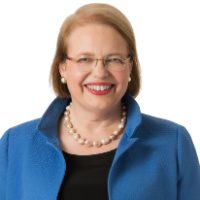
Hannah Kain is President and CEO of ALOM, a supply chain company she founded in 1997. ALOM operates out of 19 global locations to support its Fortune 500 customers in the technology, automotive, life sciences, and regulated industry sectors. Hannah was born in Denmark where – in addition to a business and political career – she taught at Copenhagen Business School. Hannah is a board member of the National Association of Manufacturers, WBEC-Pacific, the Women’s Business Enterprise National Council (WBENC) where she also serves as WBENC Forum 1st vice chair, board chair of How Women Lead–Silicon Valley, and is a member of the Committee of 200 for executive women. Hannah was named an SDCE 2023 Supply Chain Pro to Know and 2021 WE USA Top WBE CEO. In 2020 she was featured as a Business Insider Top 100 People Transforming Business, recognized as a Top 10 Women in Logistics by Global Trade Magazine, and won the SDCE Women Leaders in Supply Chain award. Connect with Hannah on LinkedIn.
Hosts
Additional Links & Resources
WEBINAR- Unlocking the Power of Diversification in Last Mile Delivery: A Game-Changing Webinar for Logistics Professionals
